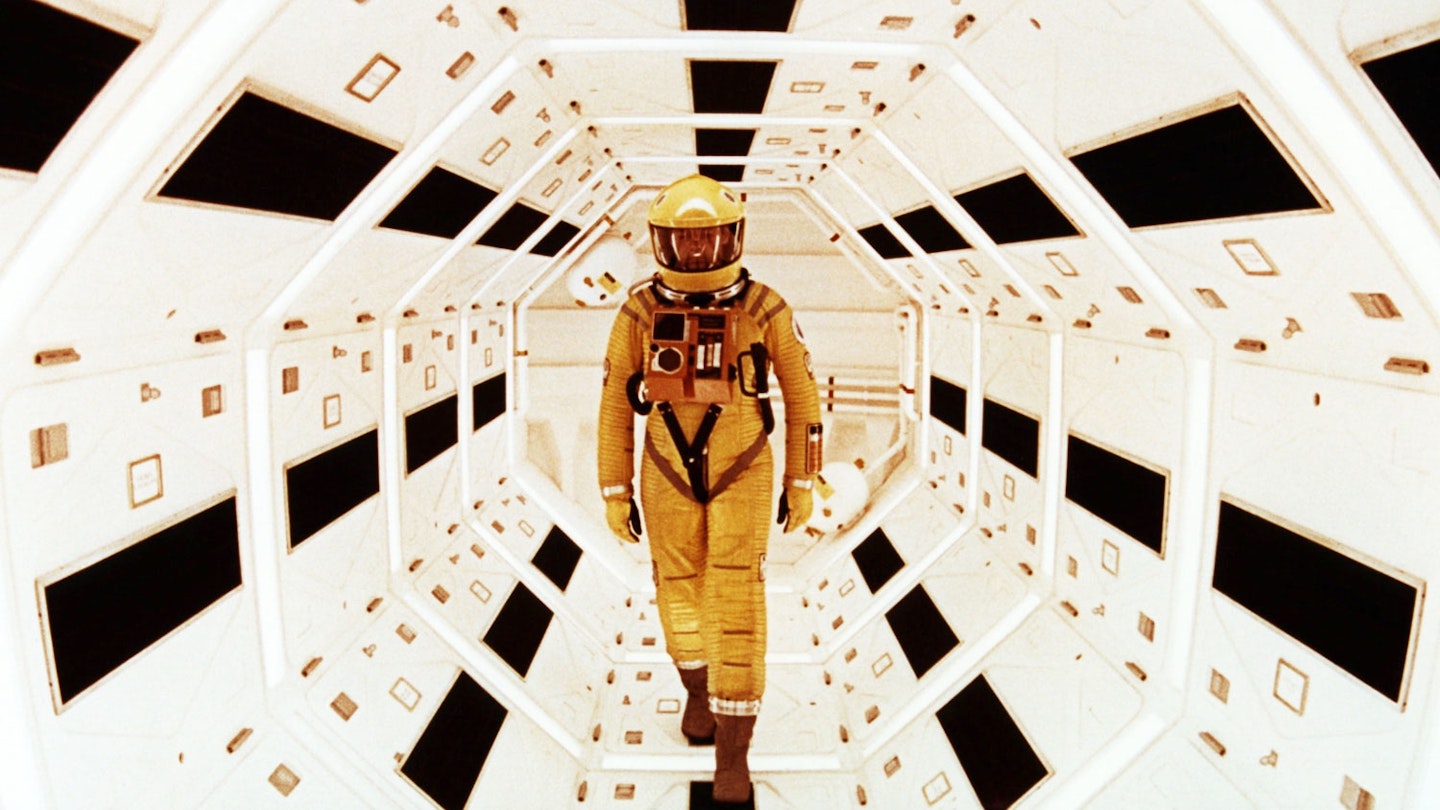Outer space. Inner space. New worlds. Tech frontiers. Artificial intelligence. The best science-fiction movies take us to places beyond our own imagination, dreaming up impossible futures that inevitably go on to shape our own technological advances. Great sci-fi delivers mind-bending visuals packed with mind-blowing ideas, probing everything from the human experience to the future of humanity. It’s a genre that contains multitudes – from fast, funny, colourful space adventures, to dark dystopian tragedies, set in the present, far future, or even a long time ago in a galaxy far, far away.
If you’re wanting a list of the best sci-fi movies of all time, you’re in the right place – the Team Empire hivemind has communed in the cloud to come up with a list of the most iconic sci-fi cinema, from modern masterpieces, to game-changing greats. From Spielberg to Scott, Kubrick to Carpenter, there’s something in this list of 50 for everyone. Read on and prosper.
READ MORE: The Best Sci-Fi Books
The 50 Greatest Sci-Fi Movies
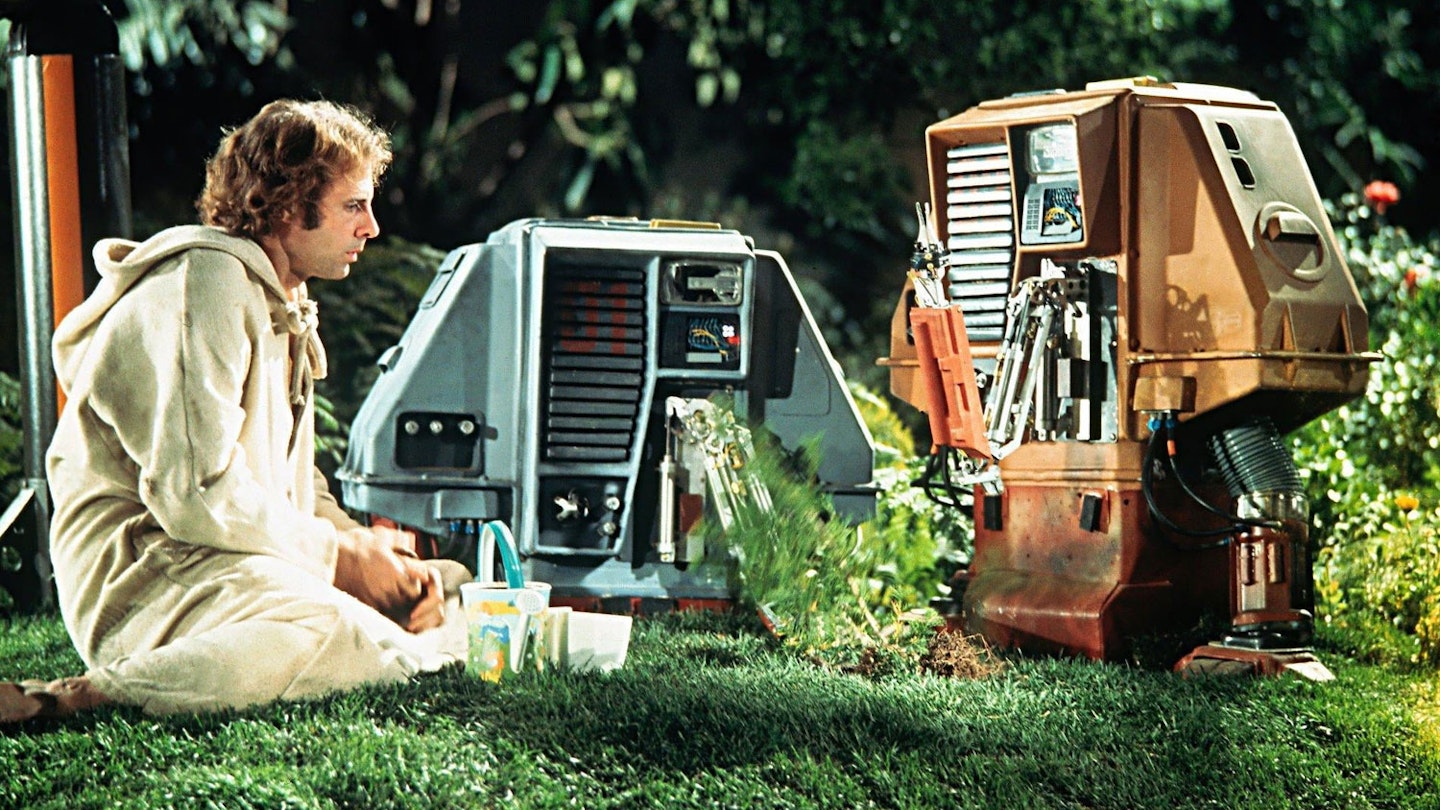 1 of 50
1 of 5050) Silent Running (1972)
Director: Douglas Trumbull Starring: Bruce Dern, Cliff Potts, Ron RifkinDouglas Trumbull had previously brought his VFX experience to film on such groundbreaking classics as 2001, but Silent Running – a sort of proto-Wall-E, with humanity facing the demise of its natural resources – let him loose as a director. Bruce Dern plays Freeman Lowell, one of several crew members on a greenhouse vessel that carries some of the few remaining plants from a ruined Earth. But when his ship is ordered to destroy the vegetation and return, Lowell mutinies and continues to tend his foliage with the help of three memorable robo-assistants. It's by turns dramatic, quiet, and reflective, an environmental warning that refrains from throwing its message in your face. Read the Empire review
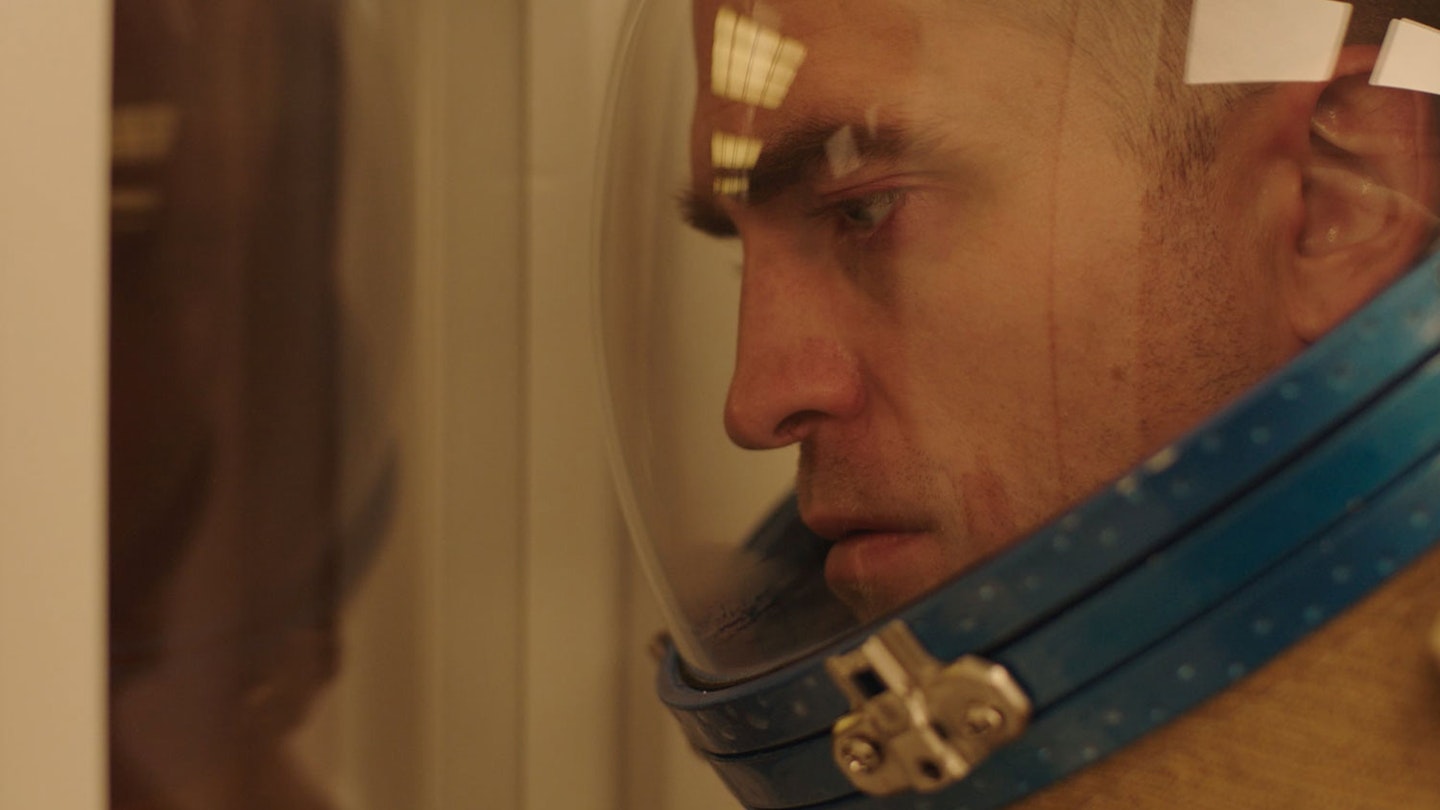 2 of 50
2 of 5049) High Life (2019)
Director: Claire Denis Starring: Robert Pattinson, Juliette Binoche, Mia GothIf its premise sounds like a lost Michael Bay movie – criminals on a spaceship are hurtling into a black hole! – Claire Denis' meditative science fiction movie is anything but, more in keeping with the sharp-edged existentialist sci-fi of the 1970s. Robert Pattinson's Monte is one of a group of prisoners who are effectively used as experimental subjects by Juliette Binoche's scientist. Dark, moody and occasionally very violent, it's a psychological trip into the void, drenched in palpable dread, with unsettling eroticism, nightmarish abstract imagery, and excellent, thoughtful performances, particularly the ever-great Pattinson. Deep, dark, grown-up sci-fi that eschews outer space action for intellectual and emotional challenge. Read the Empire review
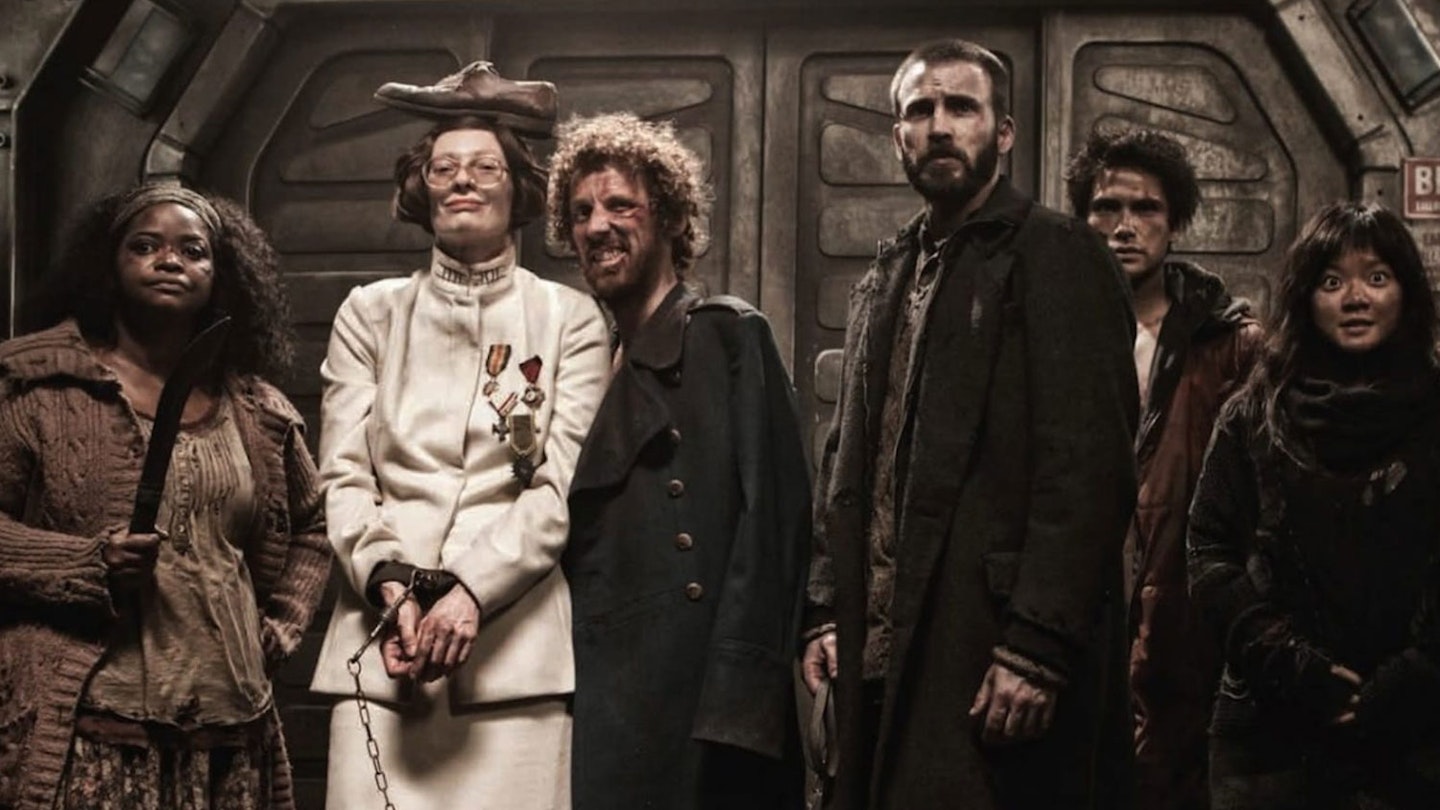 3 of 50
3 of 5048) Snowpiercer (2013)
Director: Bong Joon Ho Starring: Chris Evans, Tilda Swinton, Song Kang-HoBong Joon Ho's high-concept satire finally has the wide UK release it long deserved. Based on French post-apocalyptic graphic novel Le Transperceneige, Snowpiercer's unique futuristic satire finds the remnants of humanity crammed onto a train hurtling around the surface of a deep-frozen Earth, its carriages containing a stratified society of haves and have-nots. Chris Evans is Curtis, one of the poor schlubs in the tail section, ready to overthrow the system and fight back against the likes of Tilda Swinton's outrageous Thatcher-alike Mason. As ever with Director Bong's work, it's a real genre mash-up, with great action sequences and an idiosyncratic wit – but in addressing real-world class issues through a fanciful not-so-far-future vision, it's the Korean auteur at his most sci-fi. Just don't expect it to show up in a Mother And Baby screening any time soon.
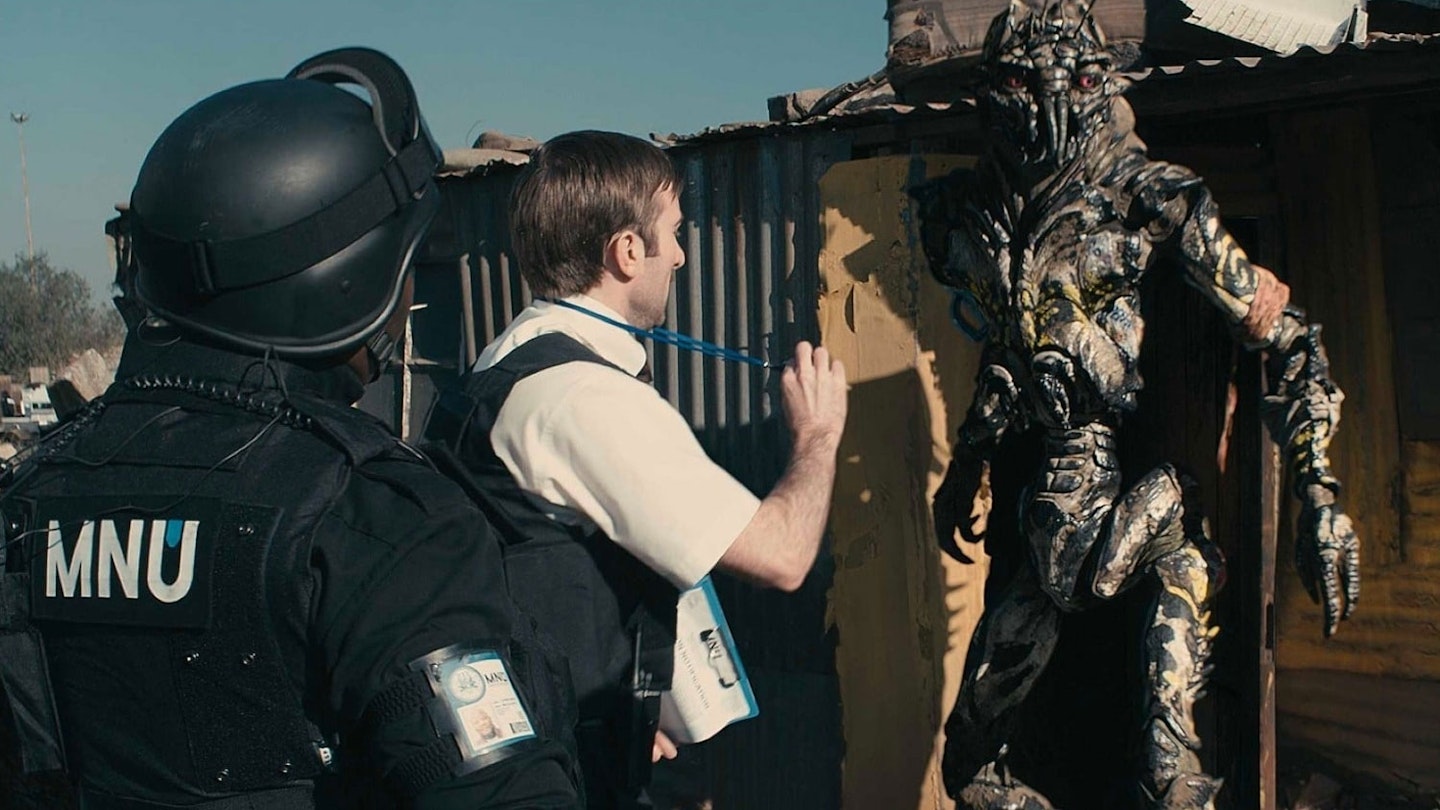 4 of 50
4 of 5047) District 9 (2009)
Director: Neill Blomkamp Starring: Sharlto Copley, David James. Giving a more literal interpretation to the phrase 'illegal aliens', the film that announced Neill Blomkamp is a bravura piece of sci-fi that balances serious ideas with mech-fuelled gravity-gun-firing action. Set in a world where extra-terrestrial 'prawns' arrived decades ago in giant ships, now stranded over the skies of Johannesburg, the film follows Sharlto Copley's cowardly bureaucrat Wikus Van De Merwe, assigned to help evict them from their ghetto. Once he's exposed to their families, and particularly their biotechnology, his point of view changes radically. It's frenetic and fun, with moments of gut-churning body-horror – but in its depiction of a segregated South Africa there's real meaning underscoring the chaos. Read the Empire review
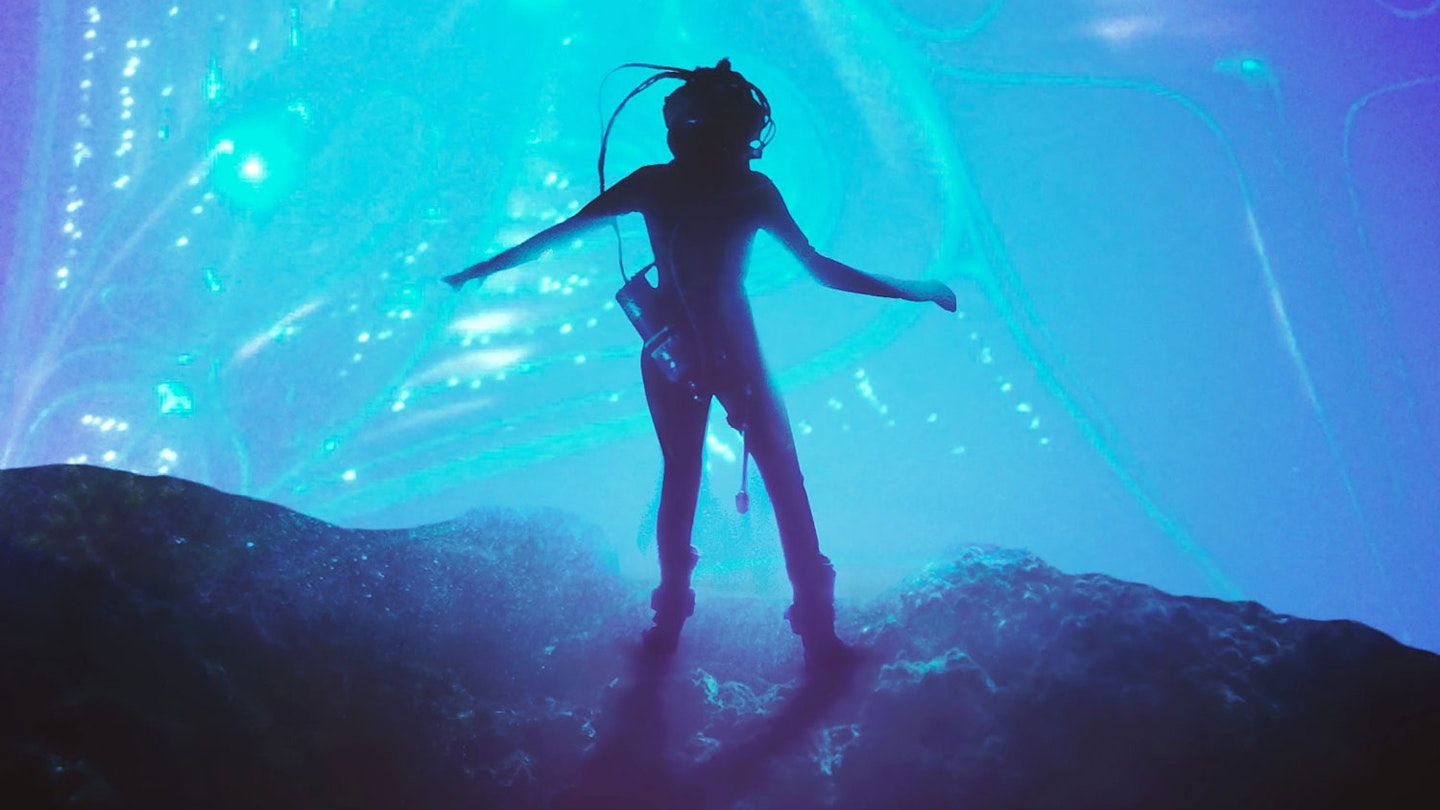 5 of 50
5 of 5046) The Abyss (1989)
Director: James Cameron Starring: Ed Harris, Mary Elizabeth Mastrantonio, Michael BiehnMost sci-fi films look to the cosmos for signs of new life. Trust James Cameron, then – long before Avatar – to look to the other inky-black instead, the mysterious ocean depths. With its sub-aquatic entities (rendered with then-cutting-edge VFX that still looks good today) and a Jules Verne-ian sense of deep-sea exploration, The Abyss feels distinct from the usual space-bound sci-fi. At the heart of it is a team of expert divers who are hired to look for a missing nuclear submarine and find something much more fascinating. Cameron's love of diving and his environmental side are on full display here, laying the groundwork for much of what he's gone on to since – from the waterworks of Titanic to Avatar's bioluminescent planet and the long-promised oceans of Pandora in the upcoming Avatar sequels. It didn't have the box office impact of Cameron's big-hitters, but it's still worth submerging yourself into. Read the Empire review
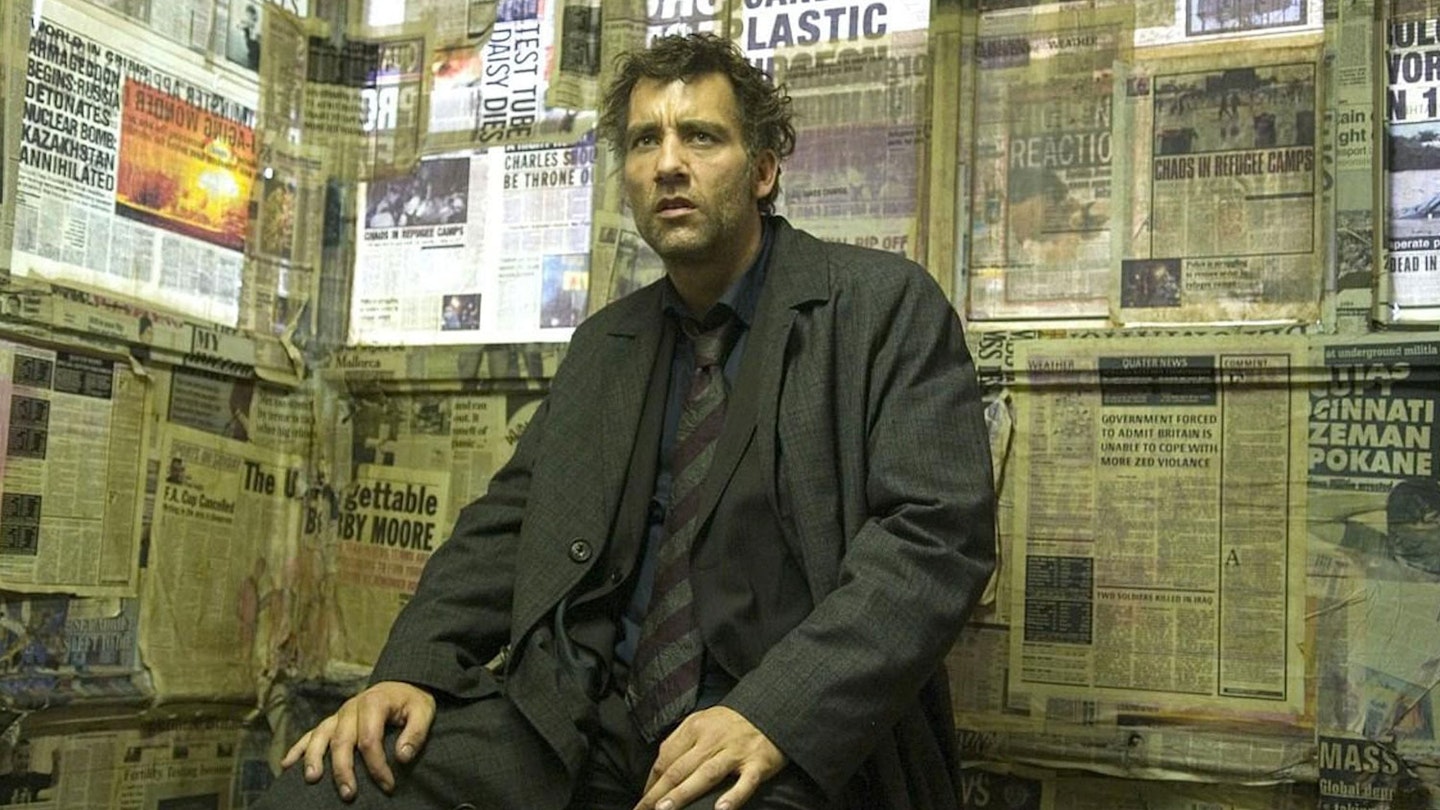 6 of 50
6 of 5045) Children Of Men (2006)
Director: Alfonso Cuaron Starring: Clive Owen, Julianne Moore, Clare-Hope Ashitey. How grounded can a science-fiction film feel while still ultimately remaining a genre work? Alfonso Cuaron's harrowing human dystopia goes right down to the wire – there are flourishes of future-tech in Children Of Men, but its world feels a stone's throw from our own. The year is 2027, and mankind has slowly become infertile. Cue world chaos and, in what might be the most outlandish concept in an otherwise prescient film, Britain is one of the sole bastions of calm. As immigration soars and the country becomes a police state, Clive Owen's bureaucrat is contacted by a group of suspected terrorists and asked to help a young woman (Clare-Hope Ashitey's Kee) reach a sanctuary that may not even exist. The reason? She's pregnant… Taking a sci-fi set-up and exploring it in a world that feels terrifyingly tangible – told with some astonishing immersive extended takes – Cuaron delivers a poignant, urgent story. Read the Empire review
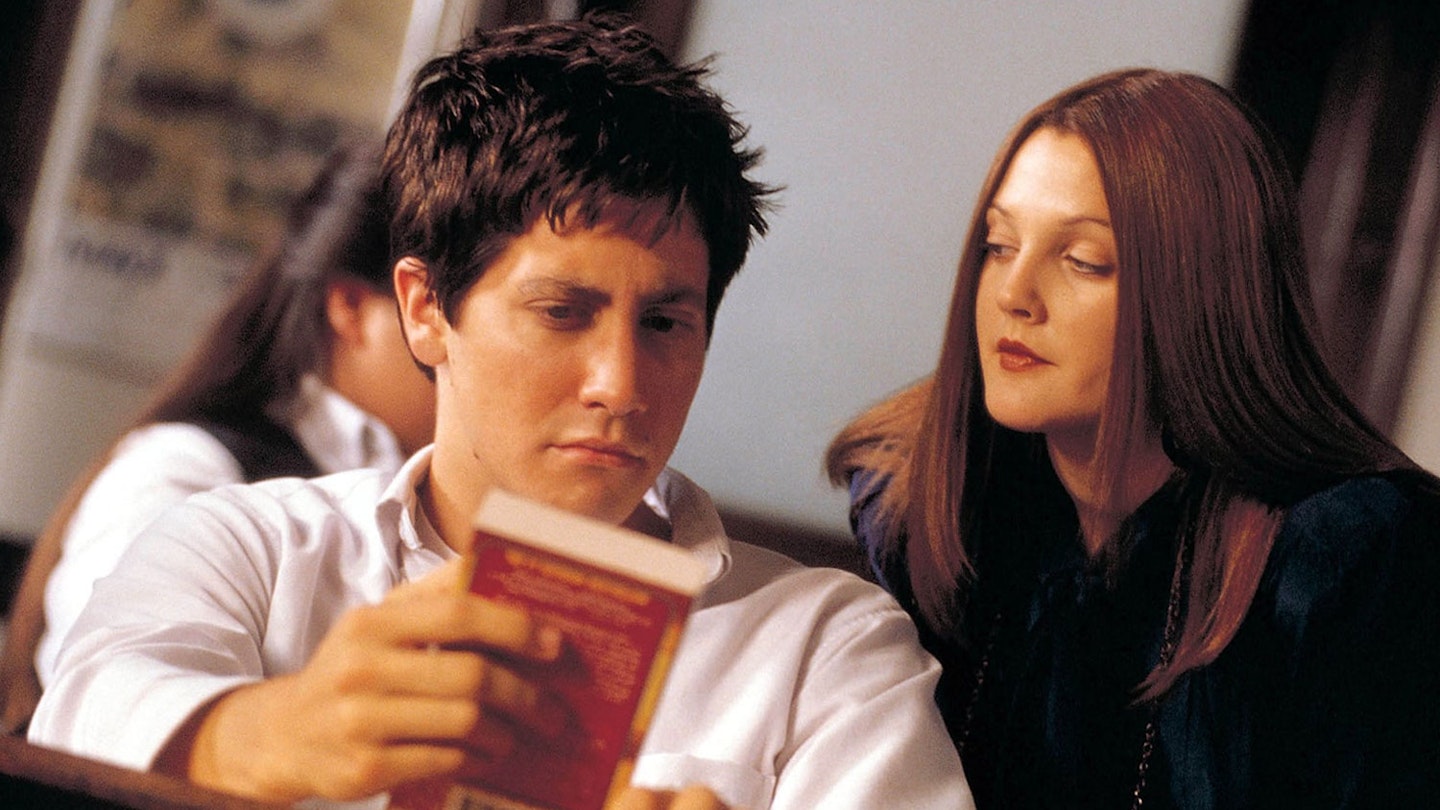 7 of 50
7 of 5044) Donnie Darko (2001)
Director: Richard Kelly Starring: Jake Gyllenhaal, Patrick Swayze. Proving that ideas-driven sci-fi could thrive without a blockbuster budget, Richard Kelly's distinctive indie debut plays with time and malleable reality as he puts Jake Gyllenhaal's depressed high schooler through the wringer. With its time-looping narrative, suburban wormhole, and apocalyptic visions of a glowy-eyed bunny-man, Kelly fuses none-more-sci-fi elements into a low-key character drama, with head-scratching talking points and a killer soundtrack that made it a total cult hit. Trippy, atmospheric, and boasting the impressive screen arrival of Gyllenhaal, Donnie Darko leaves you wanting more – just, don't go tracking down the odd non-Kelly sequel, S. Darko. Read the Empire review
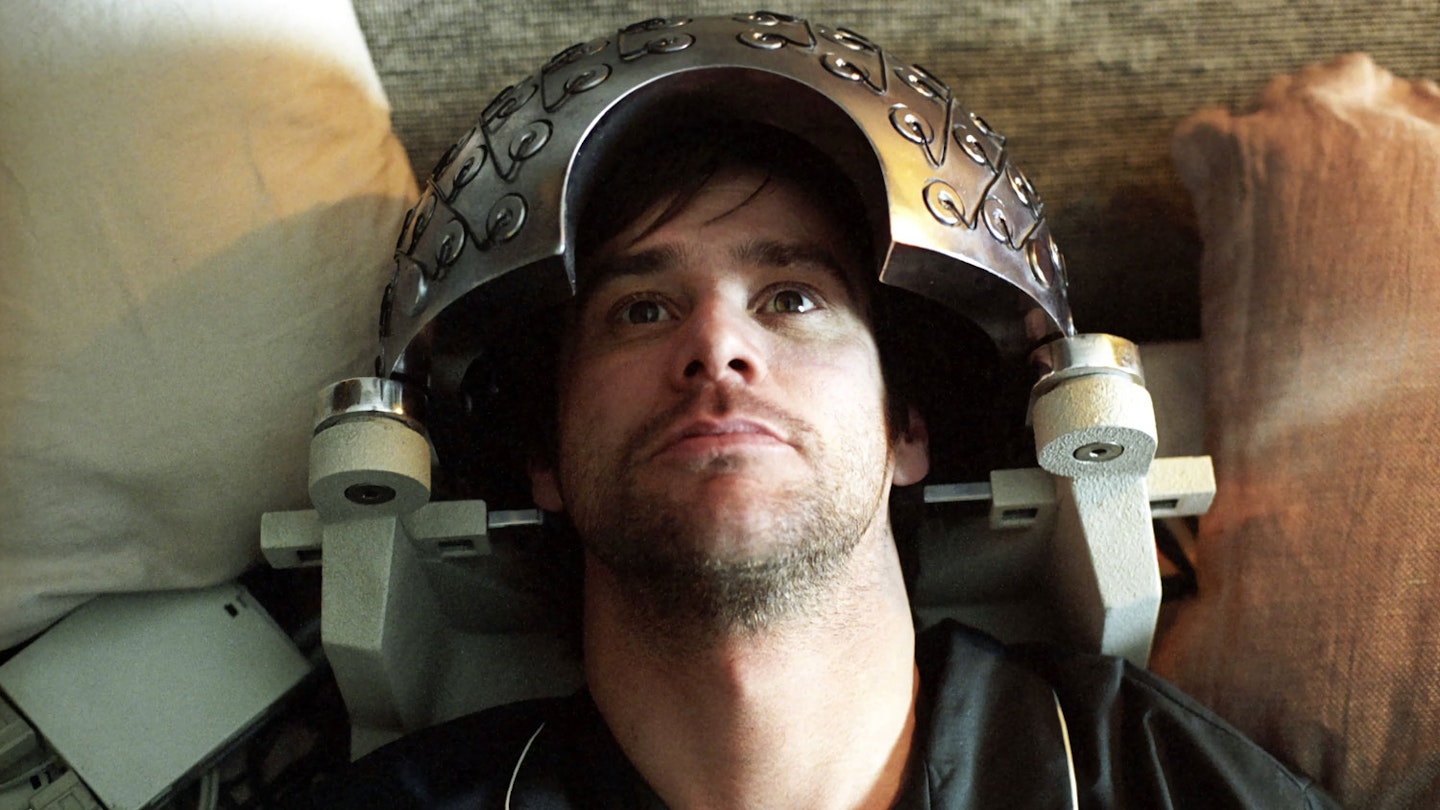 8 of 50
8 of 5043) Eternal Sunshine Of The Spotless Mind (2004)
Director: Michel Gondry Starring: Jim Carrey, Kate Winslet. Memory-tampering is a genre staple often reserved for amnesiac thrillers and mind-bending actioners. Not so with Eternal Sunshine, director Michel Gondry and writer Charlie Kaufman instead using it to explore the nature of the human condition – in particular heartbreak. What happens when love goes sour? And what if you could erase the memories —both bad and good — from your mind? Would you go through with that? After learning his ex, Clementine (Kate Winslet) already has, Jim Carrey's Joel decides he will too. But as he explores what made them meld together and then fall apart, he starts to realise that he still has feelings for her. If its tech is fictional, the emotions in Eternal Sunshine are completely real. Read the Empire review
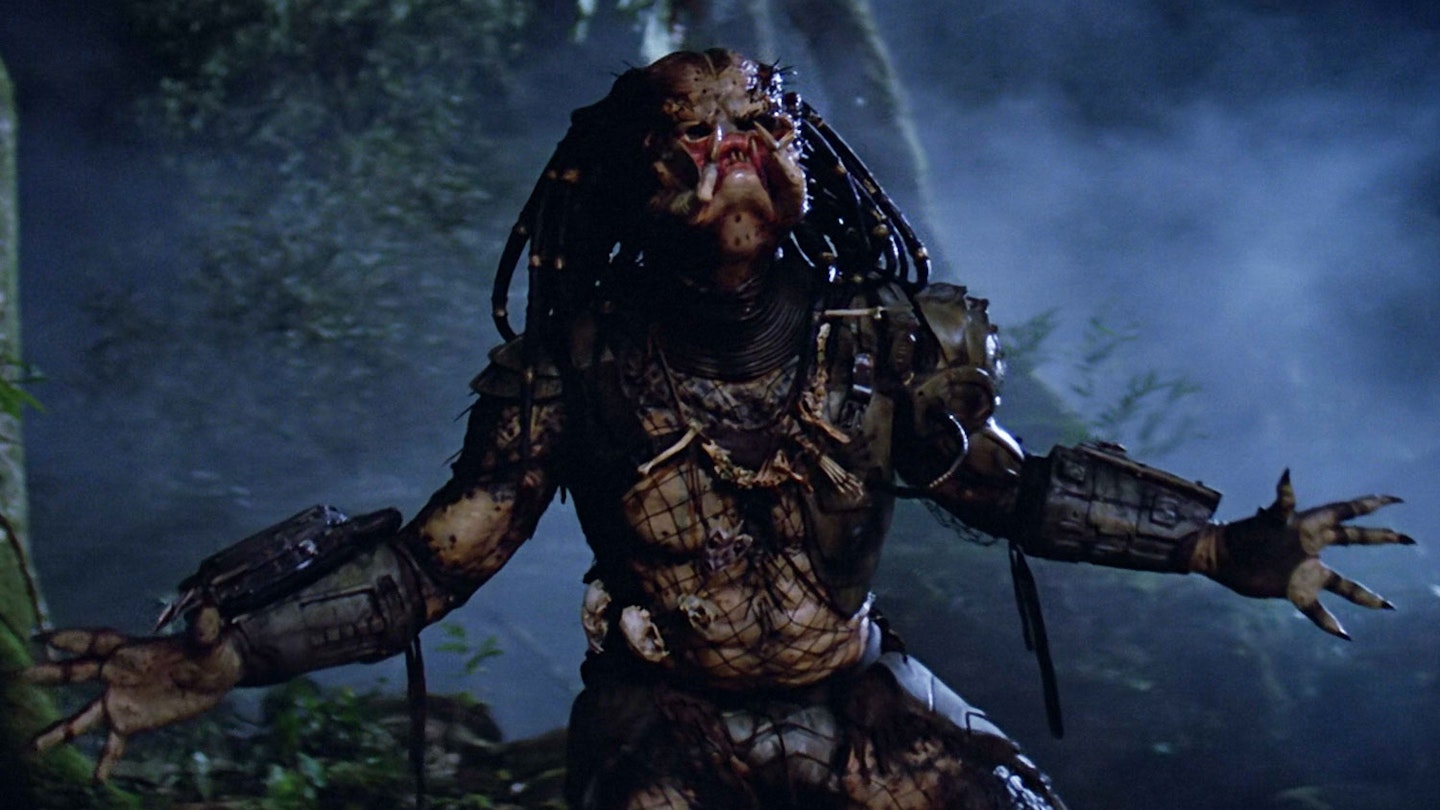 9 of 50
9 of 5042) Predator (1987)
Director: John McTiernan Starring: Arnold Schwarzenegger, Carl Weathers, Kevin Peter Hall. "If it bleeds... We can kill it". '80s machismo meets alien invasion tropes in John McTiernan's pumped-up actioner, with Arnold Schwarzenegger's tough commando Dutch and his military team facing an invisible enemy with advanced weaponry and heat-vision. With its sweltering jungle location and American soldiers falling to an unseen enemy, it's a thinly-veiled genre-fied Vietnam allegory – with a wish-fulfillment twist that ultimately sees military might overcome the enemy. This is Arnie's film, but the iconic Predator design – with its creepy mask, dreadlocks and snarling jaws – proved enough to fuel a bunch of sequels, reboots, and franchise crossovers without the man-mountain present. Predator went through a torturous development and a wild, location-shifting shoot, but in the end, John McTiernan's film speaks for itself – mostly in one-liners and soldier speak until things get spectacularly, spine-rippingly gory. Read the Empire review
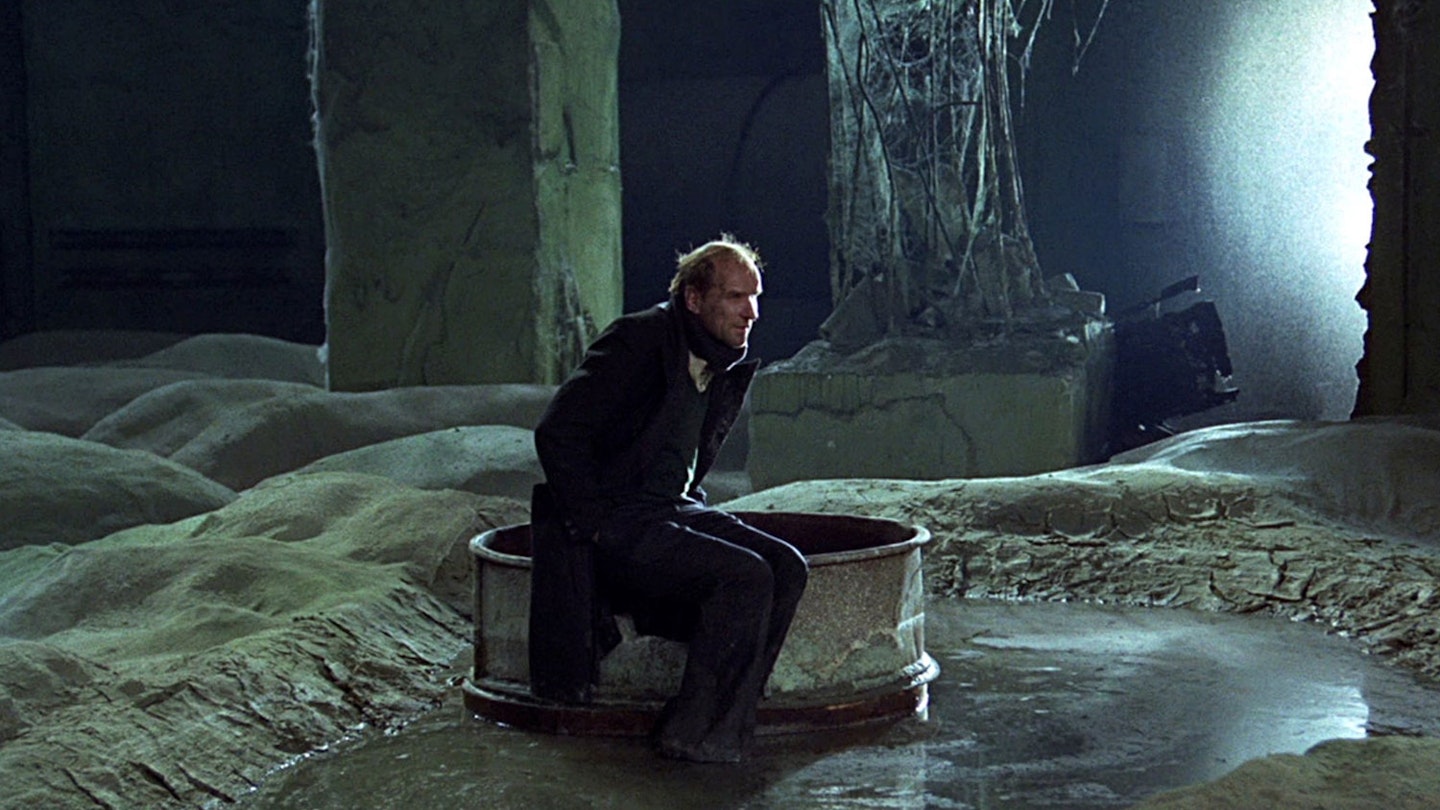 10 of 50
10 of 5041) Stalker (1979)
Director: Andrei Tarkovsky Starring: Aleksandr Kaydanovskiy, Anatoly Solonitsyn. Andrei Tarkovsky is not a man who generally deals in populist sci-fi; his work tends to venture straight into hard and heady territory. Stalker is a prime example of that, featuring three men — a writer, a science professor and the titular Stalker, who serves as their guard, venturing into a mysterious zone that has been compromised by apparent alien incursion. The story is an exploration of faith, science and art with woozy, stark visuals steeped in post-nuclear imagery. It's impenetrable if you're not in the right mood, but massively rewarding for those willing to go on the journey. And you can find the film's DNA in several films, most notably Alex Garland's adaptation of Jeff VanderMeer's Annihilation (which also appears on this list). Read the Empire review
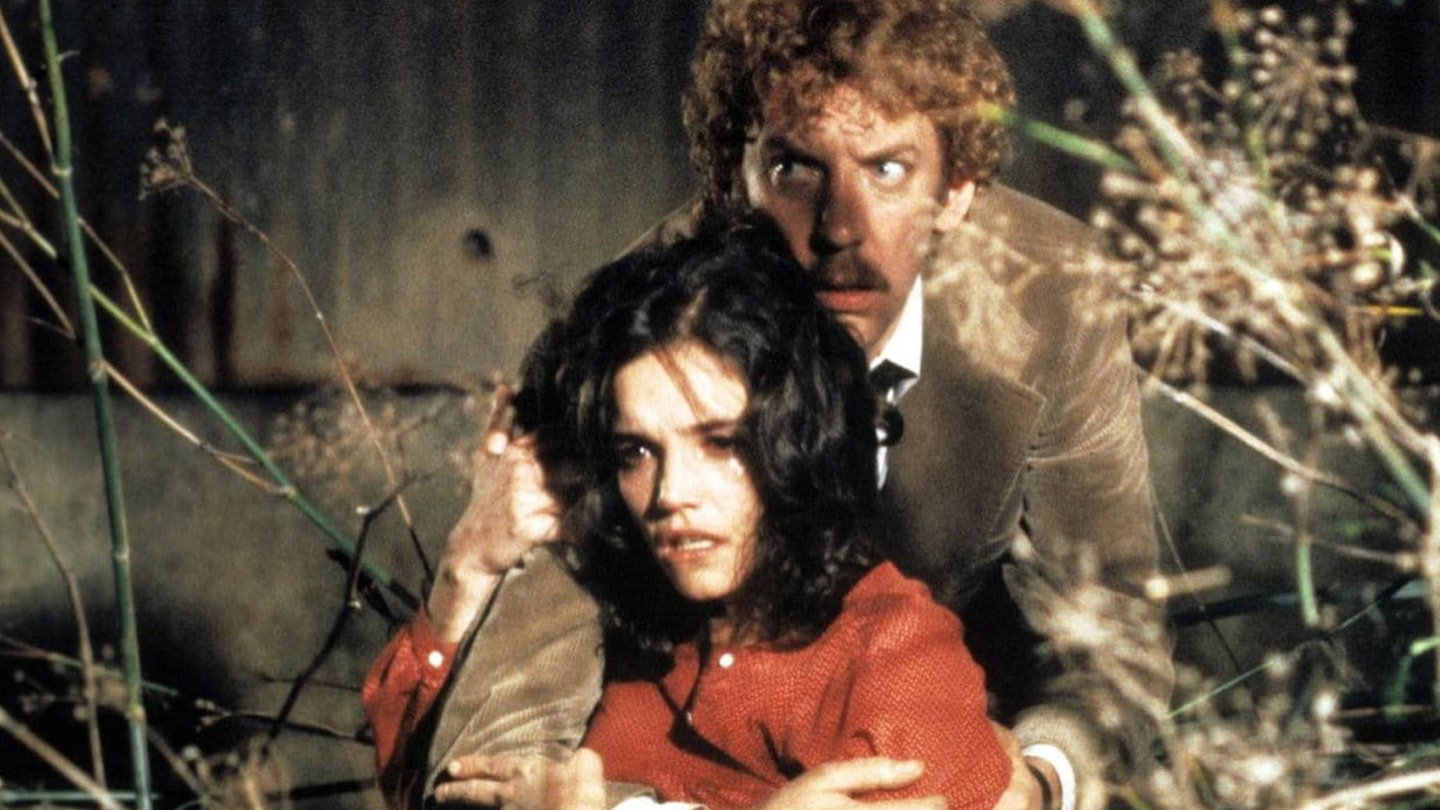 11 of 50
11 of 5040) Invasion Of The Body Snatchers (1978)
Director: Philip Kaufman Starring: Donald Sutherland, Brooke Adams. The concept of aliens replacing folk with pod-people is such a robust, re-usable one that has been the source of several films. Don Siegel's 1956 version cleverly spun into a satire of paranoia, particularly America's obsession with its politically opposite rivals, replacing the usual '50s tropes of blobs and giant bugs for dead-eyed loved ones that look just like you. It's Philip Kaufman's version that remains most watchable though, one of the rare great remakes – a prime slice of 1970s cinema boasting the star power of Donald Sutherland and Leonard Nimoy, striking alien effects, and portraying a post-Nixon sense of distrust and malaise in the comedown of the free-loving '60s. Plus its ending is an all-time chiller. Read the Empire review
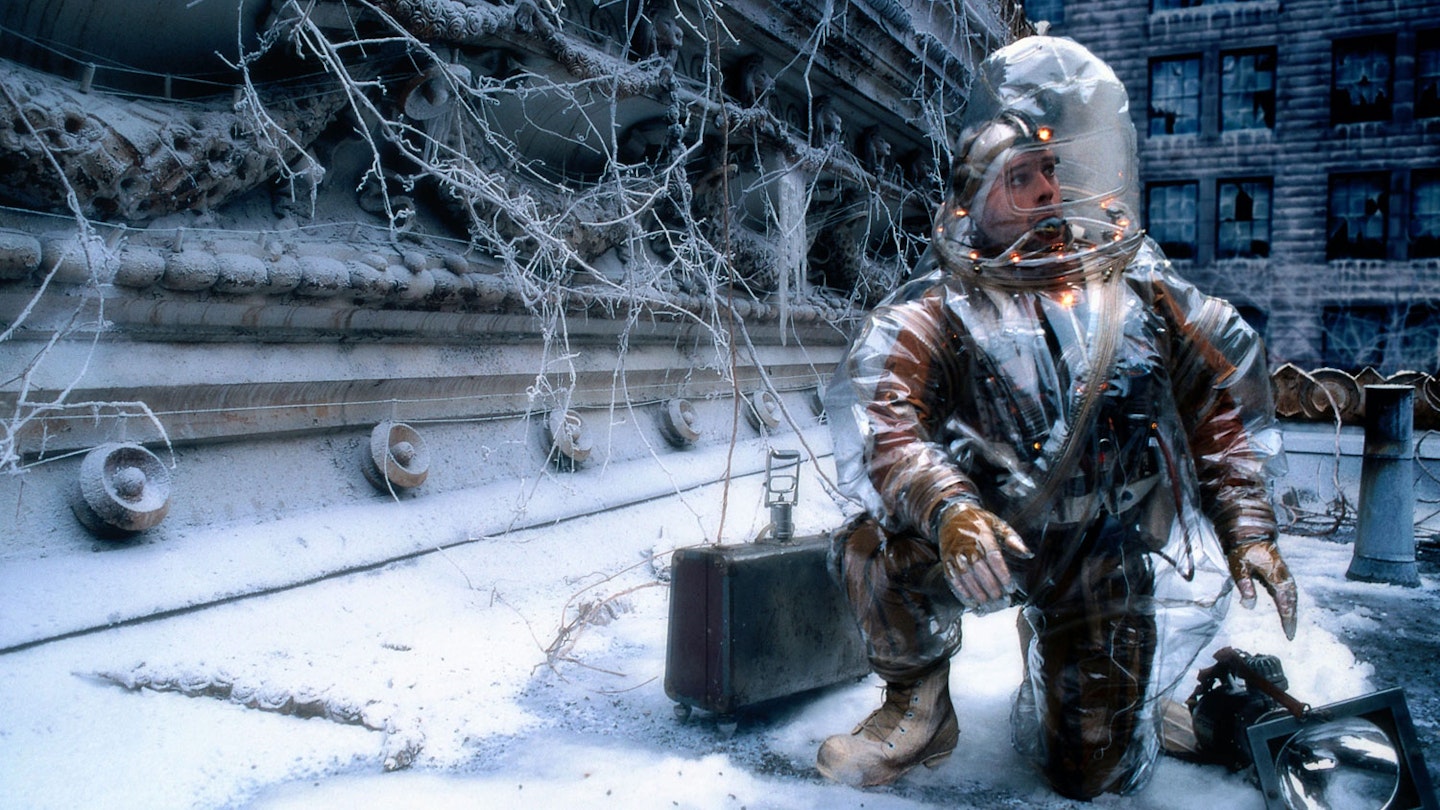 12 of 50
12 of 5039) 12 Monkeys (1995)
Director: Terry Gilliam Starring: Bruce Willis, Brad Pitt, Madeleine Stowe. Terry Gilliam's '90s classic combines time travel, an apocalyptic future, and the outbreak of a deadly virus – the latter making it perhaps not the most comforting film to rewatch in 2020. Bruce Willis delivers a great performance as convict James Cole, sent back in time to figure out how a man-made disease devastated the world – left in perpetual states of confusion and panic as he tries to hold onto where (and more importantly when) he is, tries to track down the origins of the Army Of The 12 Monkeys, and begins to believe the advice of a psychiatrist that it's all a delusion. Brad Pitt, too, shows a real quirk as Jeffrey Goines, who may or may not have been involved in the outbreak. Gilliam's unique style and eye for oddity is in full flow here, playing with reality and morality in a complex plot that, once unpicked, makes perfect sense. Read the Empire review
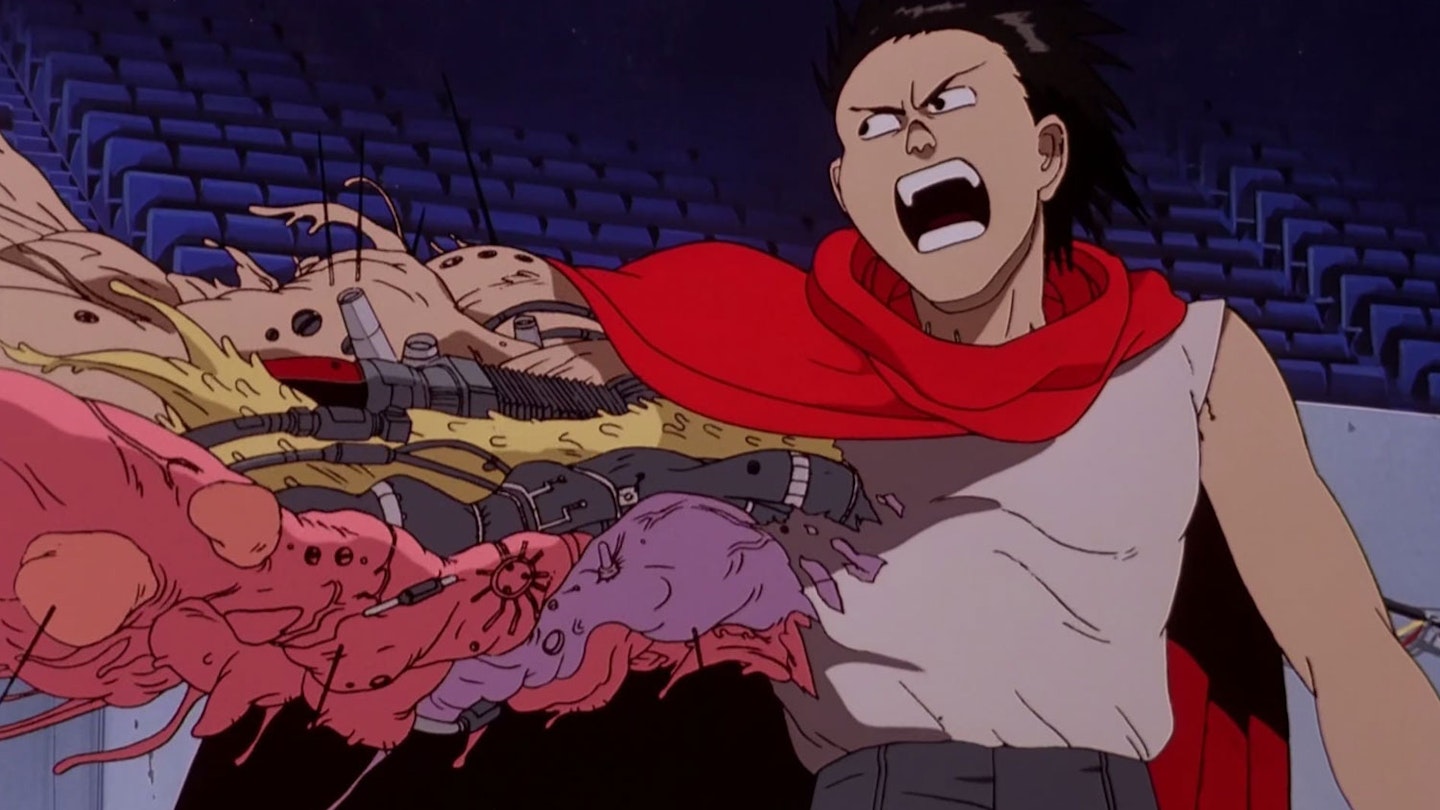 13 of 50
13 of 5038) Akira (1988)
Director: Katsuhiro Otomo Starring: Mitsuo Iwata, Nozomu Sasaki. Katsuhiro Otomo's explosive anime, along with the work of Miyazaki, helped to push Japanese animation fully into Western pop culture consciousness, and it's easy to see why. A compelling cocktail of violence, cyberpunks and mutants, it's a future epic that has tendrils of Japan's past wreathed around its fractured cities and altered bodies. Taking place in Neo-Tokyo, 30 years after an explosion destroyed the original city, the complex narrative takes in biker gangs, government conspiracies, and scientific experiments which turn one of the bikers into a psychic psychopath. Hollywood has been trying to remake this one for years (Taika Waititi is currently attached, though seemingly always busy), and you can only imagine the budget it would take to even approach the original, whose astonishing imagery changed the sci-fi genre forever.Read the Empire review
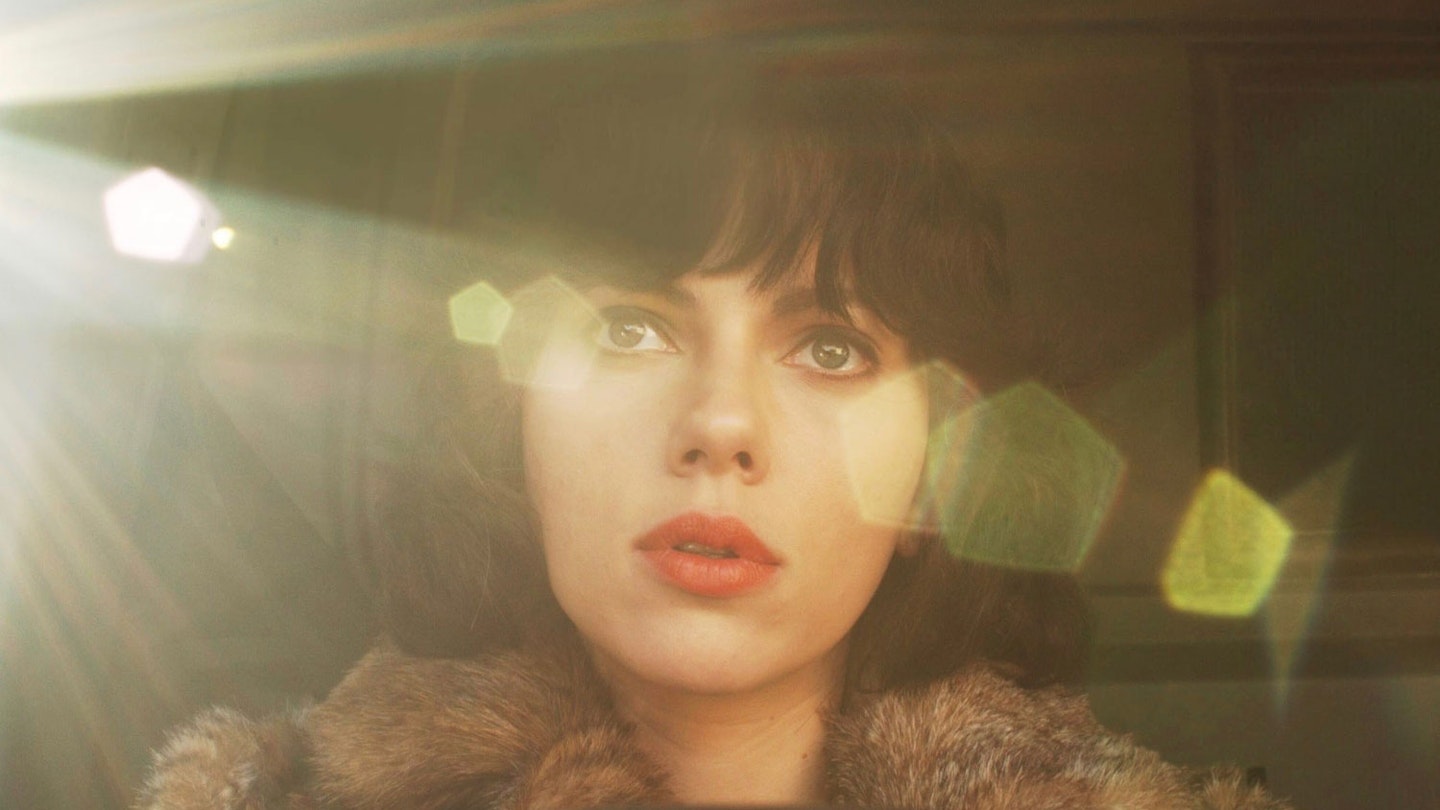 14 of 50
14 of 5037) Under The Skin (2013)
Director: Jonathan Glazer Starring: Scarlett Johansson. There have been tons of alien invasion films – but very few in which the alien assumes the form of Scarlett Johansson and drives around the streets of Glasgow in a van, picking up lonely men. Jonathan Glazer's confounding sci-fi horror swirls with unsettling, unknowable visuals, one of the most striking being Johansson herself, pale-faced with a messy black bob and a thick fur coat, delivering something very different from her usual blockbuster roles. As the central (unnamed) extraterrestrial figure, she remains on the very edge of humanity – are her interactions with the men she sacrifices giving her a deeper understanding of the human experience? Like other modern directors who have a stylistic and spiritual connection to the cinema of the 1970s, Jonathan Glazer understands that ideas are just as important as story. Under The Skin isn't a crowdpleaser, but a mood piece with things to say about male/female interactions and, er, the dangerous properties of weird black pools. Read the Empire review
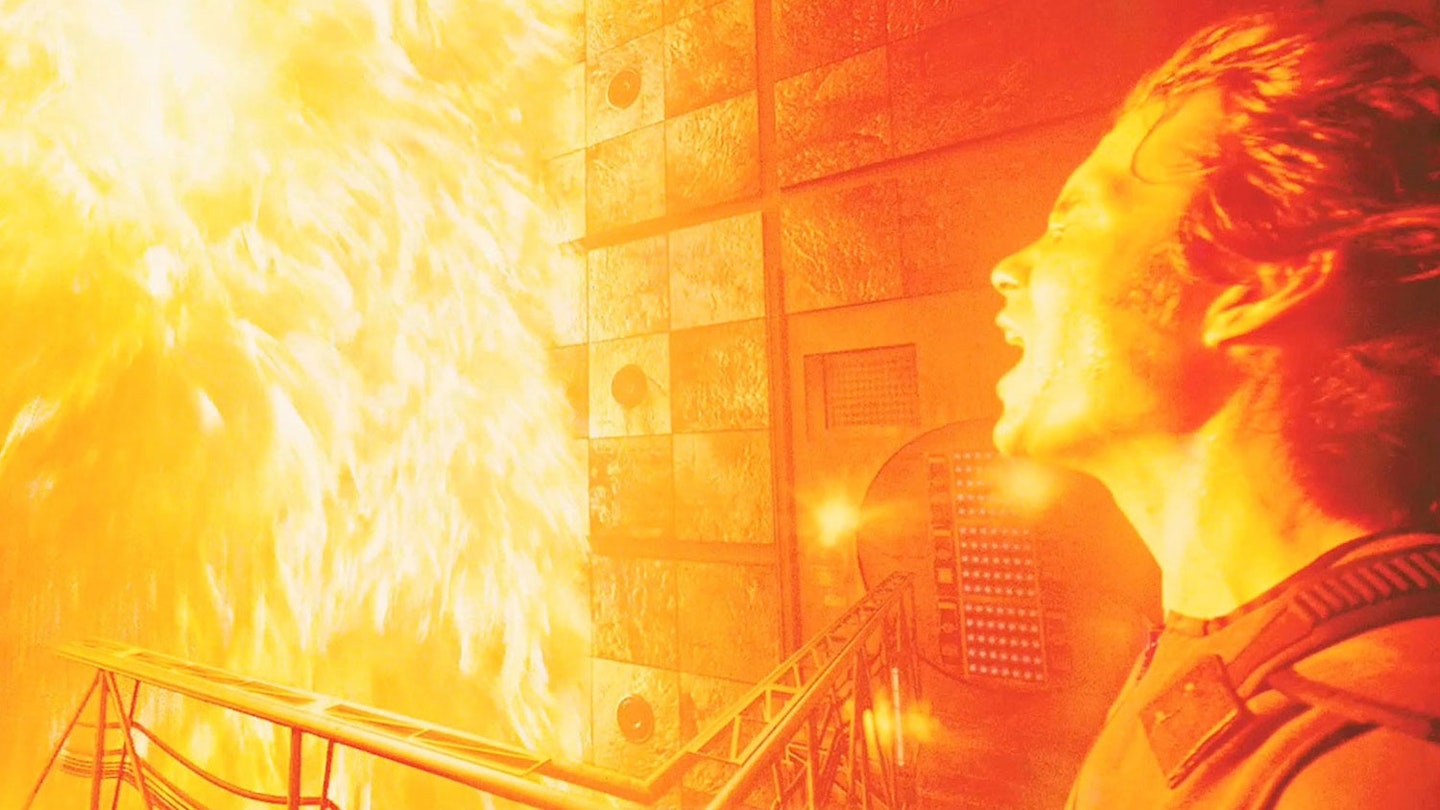 15 of 50
15 of 5036) Sunshine (2007)
Director: Danny Boyle Starring: Cillian Murphy, Rose Byrne, Chris Evans. Moving between genres has always been one of Danny Boyle's talents, and Sunshine saw him send a crew on a risky mission to reignite the dying sun. Chris Evans, Cliff Curtis, Cillian Murphy, Michelle Yeoh and more are aboard the good ship Icarus II, and things go about as well as you'd imagine, given its name. It's part disaster movie, part unexpected slasher (in its controversial third act), and full of existential explorations, as the Icarus crew soar closer and closer to the sun, or possibly the face of God – or both. Cinematographer Alwin Küchler offers up some stark visions of a light-drenched ship and the swirling solar surface, while Alex Garland's writing corrals both brain-food sci-fi and treacherous human instinct. Read the Empire review
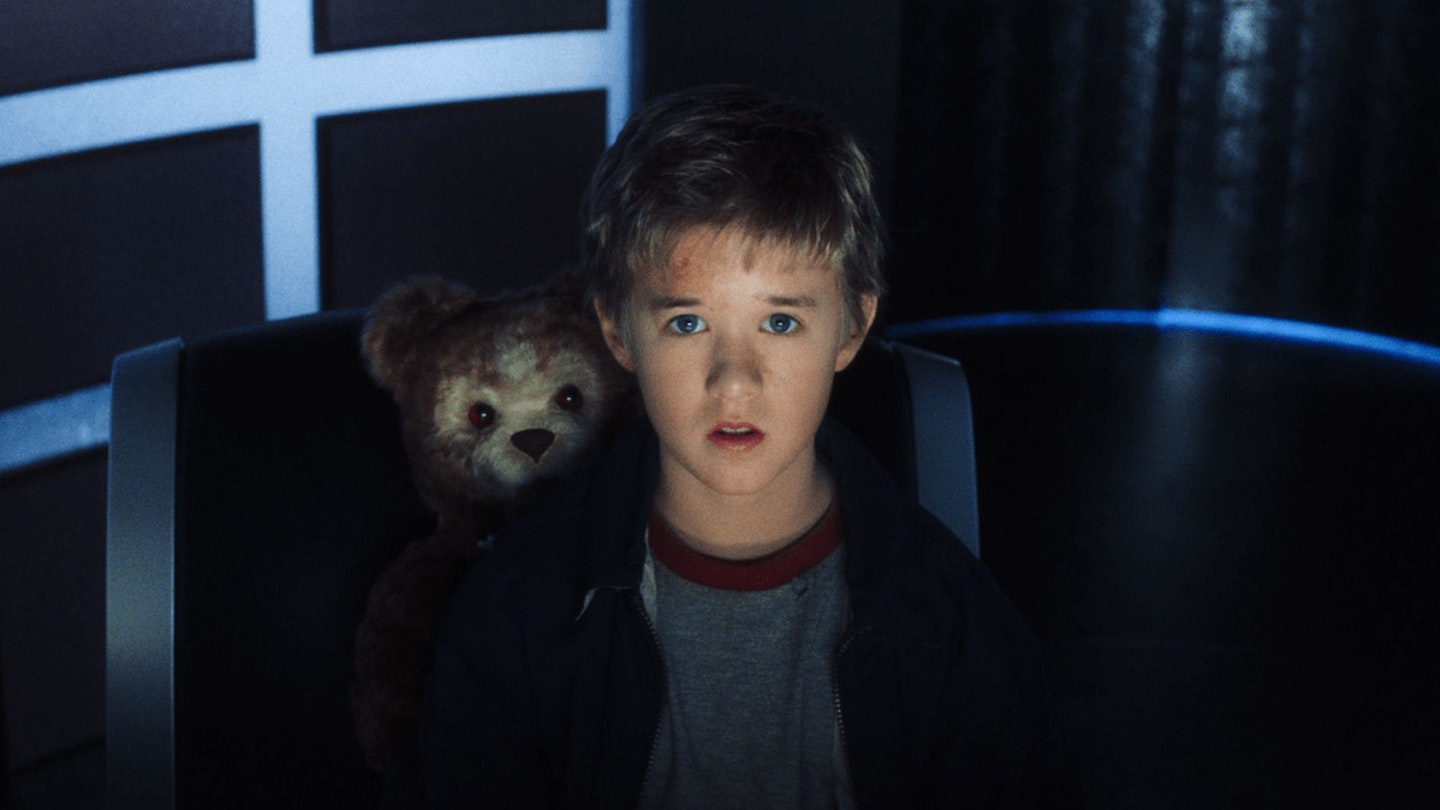 16 of 50
16 of 5035) A.I. Artificial Intelligence (2001)
Director: Steven Spielberg Starring: Haley Joel Osment, Jude Law. A.I.'s creation story saw it become a tantalising collaboration between two cinematic greats — it was a longtime project of Stanley Kubrick, who wanted to adapt Brian Aldiss' short story Supertoys Last All Summer Long, which was then passed to Steven Spielberg, who finally wrangled it on to screens after Kubrick's death and following years of frustrating development. Kubrick had never believed a child could honestly play artificial boy David, but Spielberg had a secret weapon in The Sixth Sense's Haley Joel Osment, who went from dead people to bot people. If the Pinocchio-influenced story of a robo-kid searching for real human connection sounds none more Spielbergian, it's a much colder and harsher film than his usual fare – flush with human cruelty, techno-torture, and a melancholic 'fairytale' ending. It's divisive, but remains a fascinating amalgam of the Speilbergian and the Kubrickian. Read the Empire review
34) Avatar (2009)
Director: James Cameron Starring: Sam Worthington, Zoe Saldana, Sigourney Weaver. Iconic sci-fi films conjure up distinctive new worlds — and few are as retina-dazzlingly vibrant as Pandora, Avatar's planet of bioluminescent flora, bright blue fauna, and giant floating rock formations. Taking the mech-suits from Aliens, the colourful creatures of The Abyss, the epic scope (and central love story) of Titanic, and the groundbreaking technological leaps of, well, everything he's ever done, James Cameron's record-breaker is none-more-JC. There's a knowing B-movie quality to the cheesy dialogue and Dances With Wolves-inspired plot, but everything else is A-movie blockbuster, in a tale where humans are the alien invaders, consciousness is transferable, and science and nature are equal and opposite forces. It's rare to see an entire cinematic world so fully realised – and while the Avatar backlash continues in some corners, it would be foolish to bet against Cameron's slew of upcoming sequels. Read the Empire review
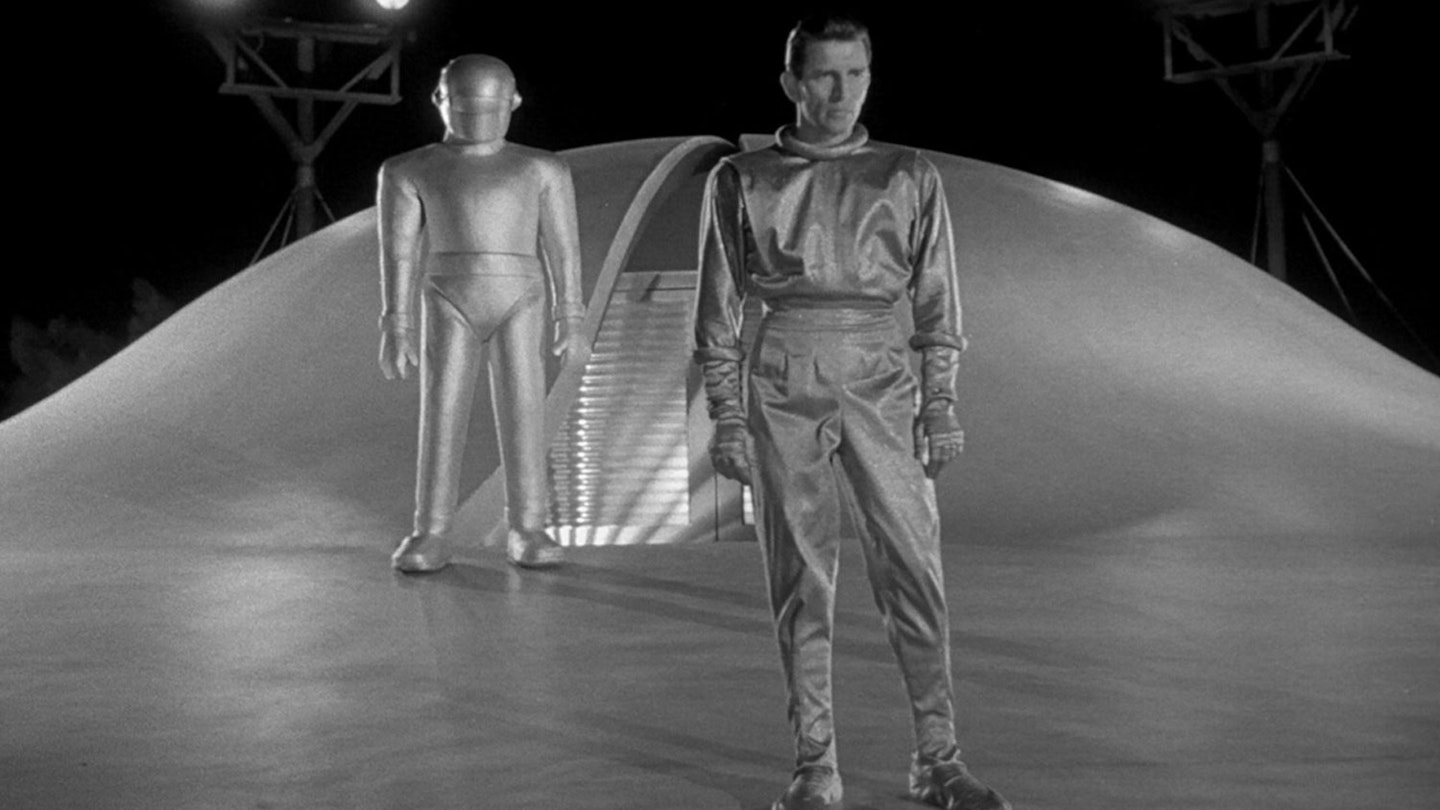 18 of 50
18 of 5033) The Day The Earth Stood Still (1951)
Director: Robert Wise Starring: Michael Rennie, Patricia Neal. Usually, an extraterrestrial visitor comes to Earth in the movies to blow things up. In Robert Wise's 1951 classic, Michael Rennie's Klaatu and his hulking robot companion Gort (that's Lock Martin in the metal suit) touch down on terra firma to tell humanity to wind its neck in. If we Earthlings don't change our destructive warlike ways, the intergalactic community will have no choice but to reduce us to atoms. With its cosmic message of peace and unity told in the aftermath of World War II and against the backdrop of atomic bombing, The Day The Earth Stood Still remains subversive, deeply influential in its imagery, and with a phrase that permeated into pop culture at large: "Klaatu barada nikto." Read the Empire review
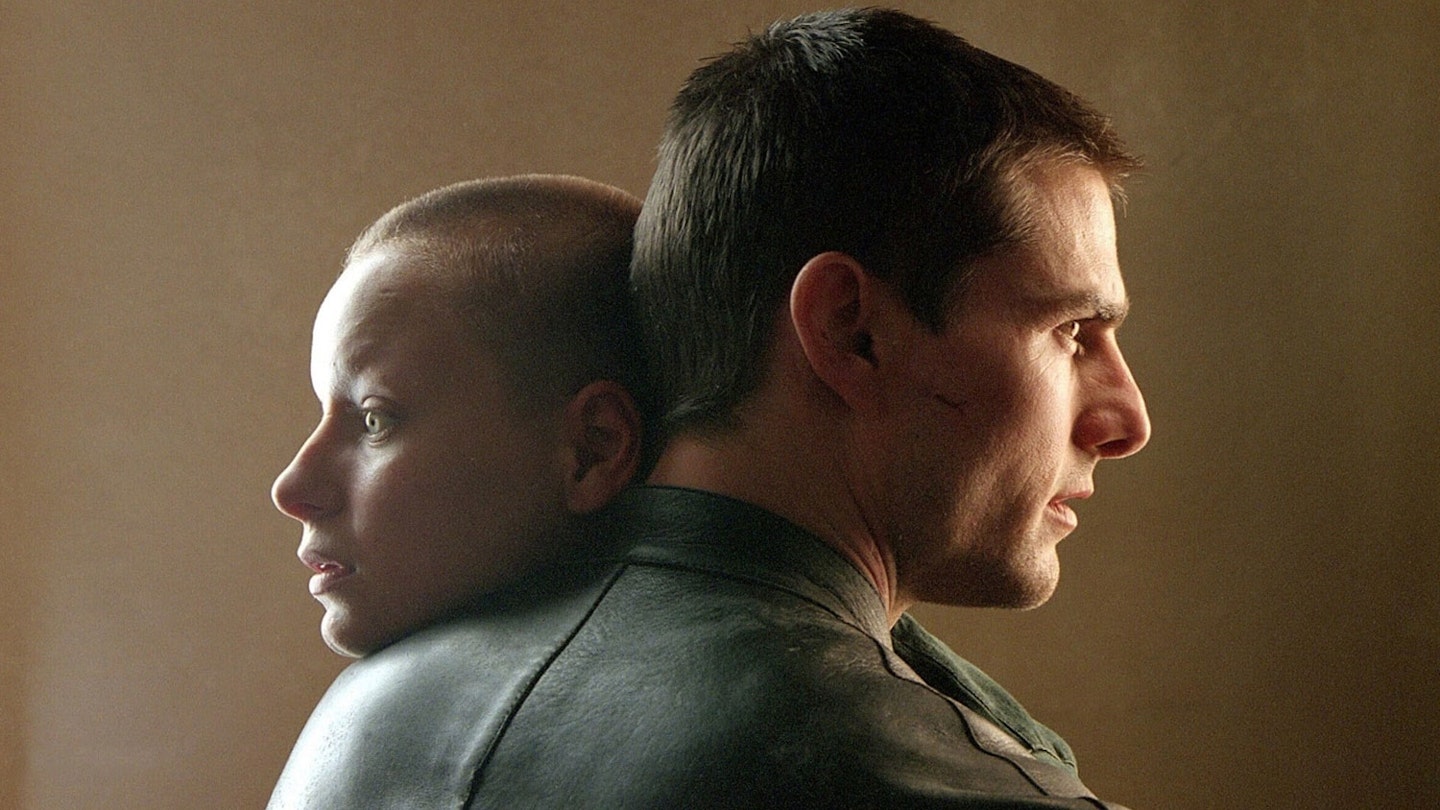 19 of 50
19 of 5032) Minority Report (2002)
Director: Steven Spielberg Starring: Tom Cruise, Samantha Morton, Colin Farrell. Philip K. Dick's cerebral sci-fi sometimes proves a challenge to adapt, but Steven Spielberg brought one of his most cinematic works to the screen without worrying about being totally faithful. Tom Cruise is future cop John Anderton, part of the pre-crime unit in which psychics can predict crimes before they occur – until they predict Anderton himself committing a murder. Spielberg paints a vision of the future where intrusive ads follow us around (not really science fiction anymore), self-driving cars abound (increasingly plausible), and police officers zoom around on jetpacks (probably a few decades off yet). Full of action and smarts in equal measure, it's a thought-provoking blockbuster – and it basically invented gesture-control touch screens. Nifty. Read the Empire review
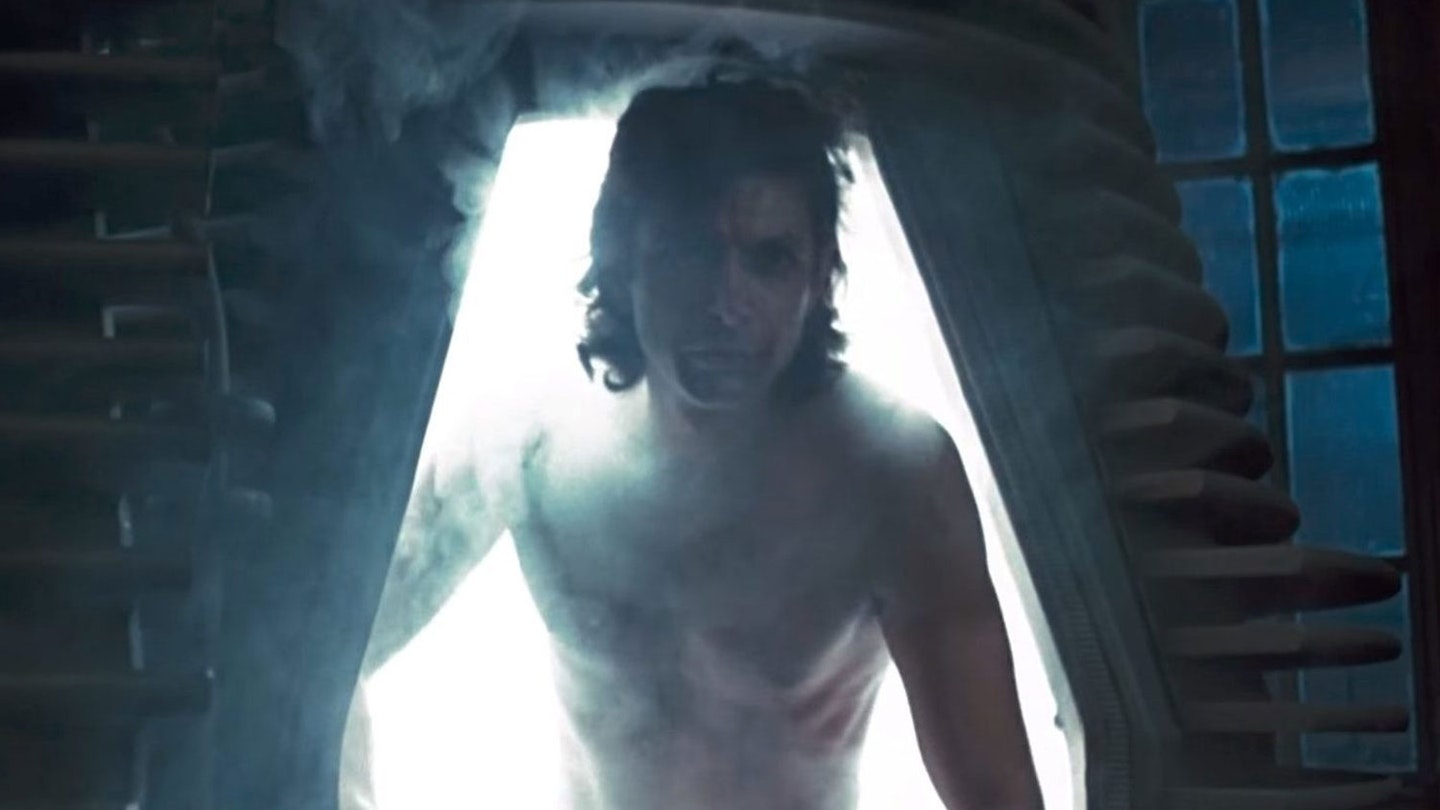 20 of 50
20 of 5031) The Fly (1986)
Director: David Cronenberg Starring: Jeff Goldblum, Geena Davis. Evolving from a '50s B-movie premise, David Cronenberg's stomach-churning body-horror is a classic 'man meddles with nature' sci-fi parable. Jeff Goldblum is Seth Brundle, the swarthy scientist who invents a pair of teleportation pods – and accidentally fuses himself with a housefly unknowingly trapped in the second pod while testing them out. Cue a dramatic transformation as Brundle quickly degenerates into Brundlefly – a putrid, acid-spewing monster on the outside that remains deeply, tragically human at his core. If it's the genuinely horrifying creature effects that linger long in the memory, the film stays true to its thematic roots – the destructive hubris that comes as a result of playing God. Read the Empire review
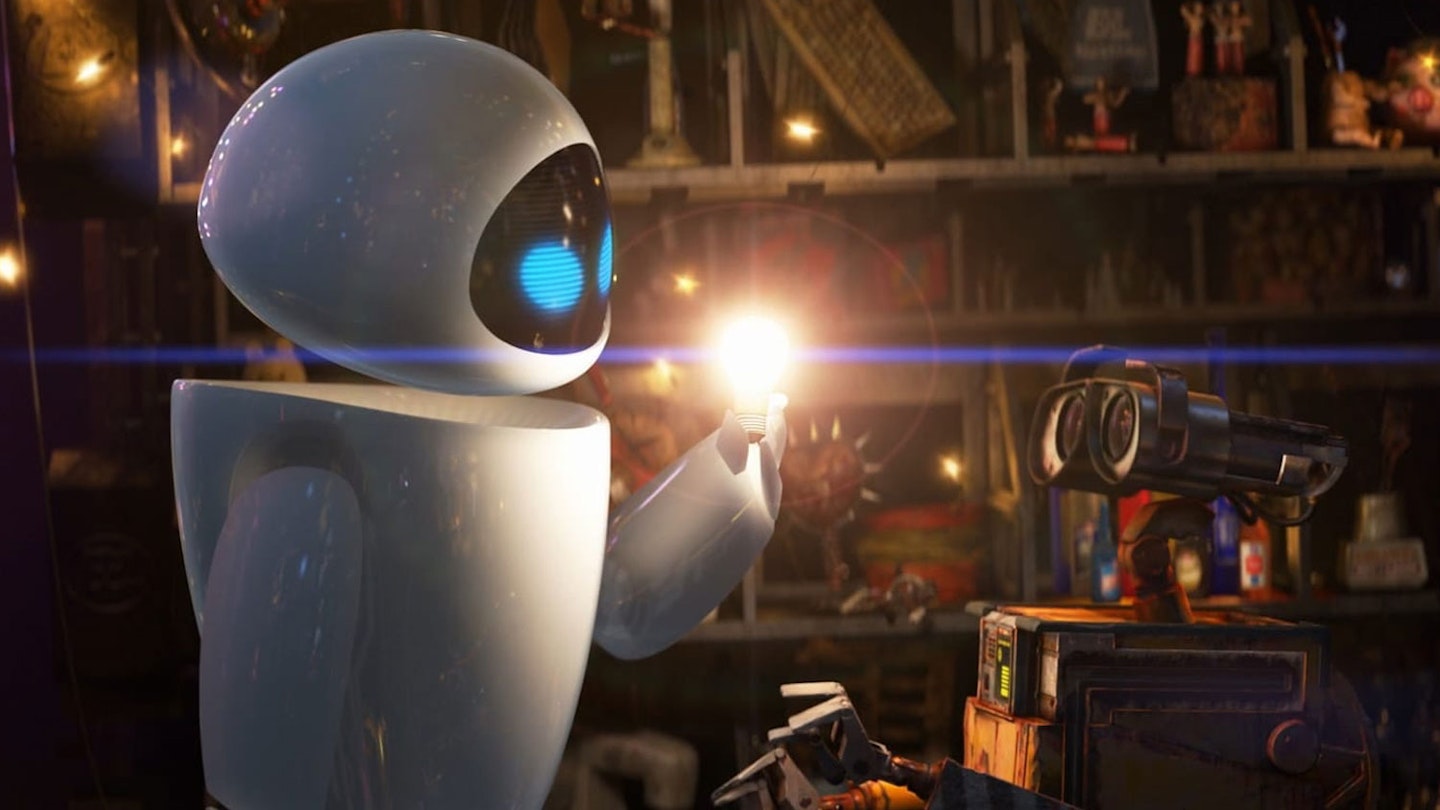 21 of 50
21 of 5030) Wall-E (2008)
Director: Andrew Stanton Starring: Ben Burtt, Elissa Knight. Team Pixar was already on a golden streak, and then Wall-E arrived – the brainchild of veteran creative type Andrew Stanton, a futuristic satire about how we treat the planet and each other, but, you know, for kids. It was a risk that paid off beautifully, beginning as a near-silent film on the bleak, trash-filled remains of Earth before blasting into an intergalactic adventure to save the last remaining piece of viable plant life. Wall-E's stark opening astonishes, and it doesn't pull its punches when it comes to dire eco-warnings, and skewering humanity's recklessly consumptive consumerist ways. Wall-E's story goes straight for the heartstrings too with a swooning robo-romance, musical sequences and a still-pertinent message for all of us, delivered in digestible form. Read the Empire review
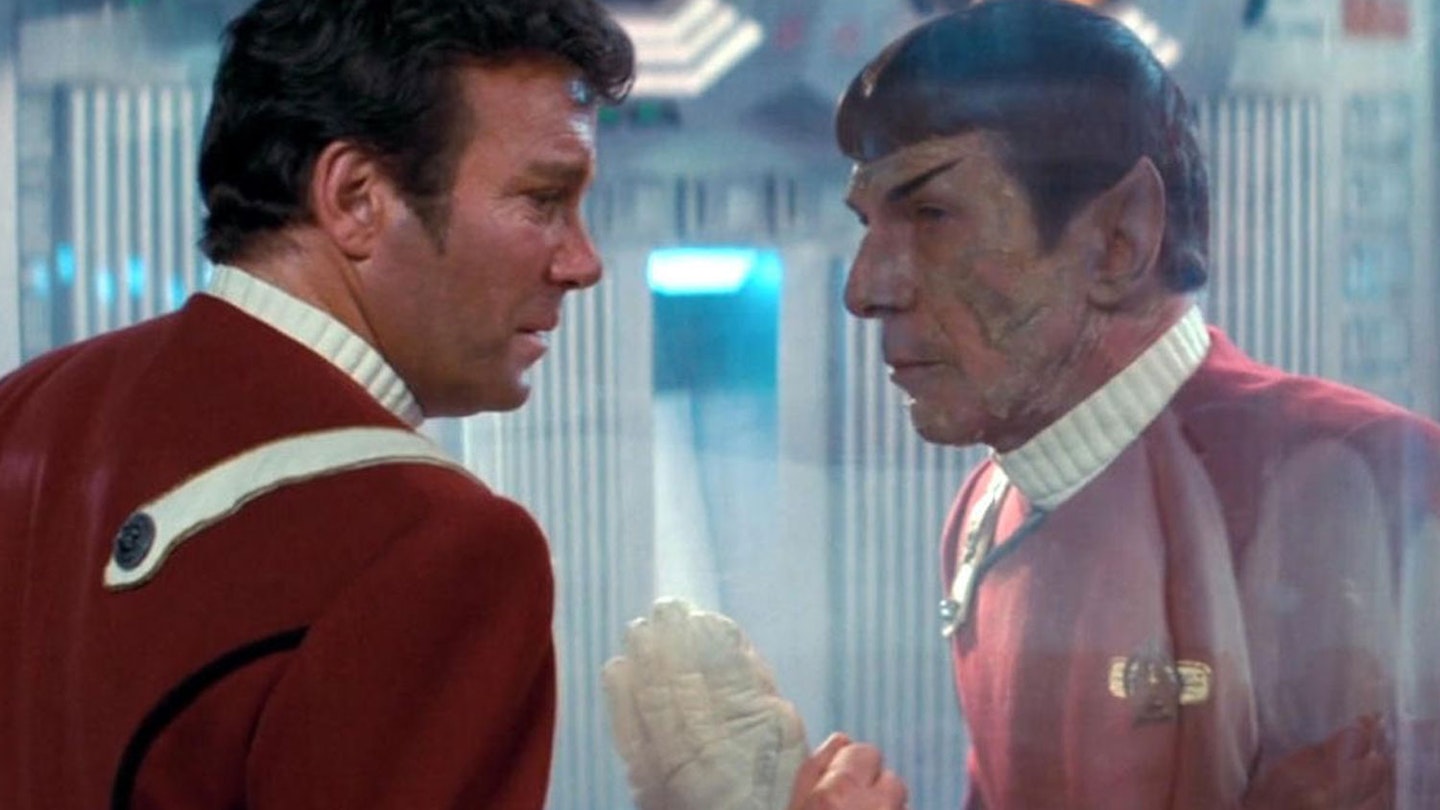 22 of 50
22 of 5029) Star Trek II: The Wrath Of Khan (1982)
Director: Nicholas Meyer Starring: William Shatner, Leonard Nimoy, Ricardo Montalban. Shaking off the shackles of its chilly sci-fi start on the big screen, Star Trek found the fun by remembering to make it more about the characters. And what a story — digging back into the series' past, Nicholas Meyer brings a tense, personal tale of revenge to the screen as Ricardo Montalban's crusading, enhanced ego Khan Noonien Singh seeks to punish William Shatner's James T. Kirk for their troubled history. It might not quite be the santised, perfect utopia that Gene Roddenberry envisioned, but that rarely leaves room for great drama, which Khan has in spades. It's everything Star Trek can be while never forgetting what it was. And the main clash happens without the main pair ever sharing the same room. Now that's an impressive trick...Read the Empire review
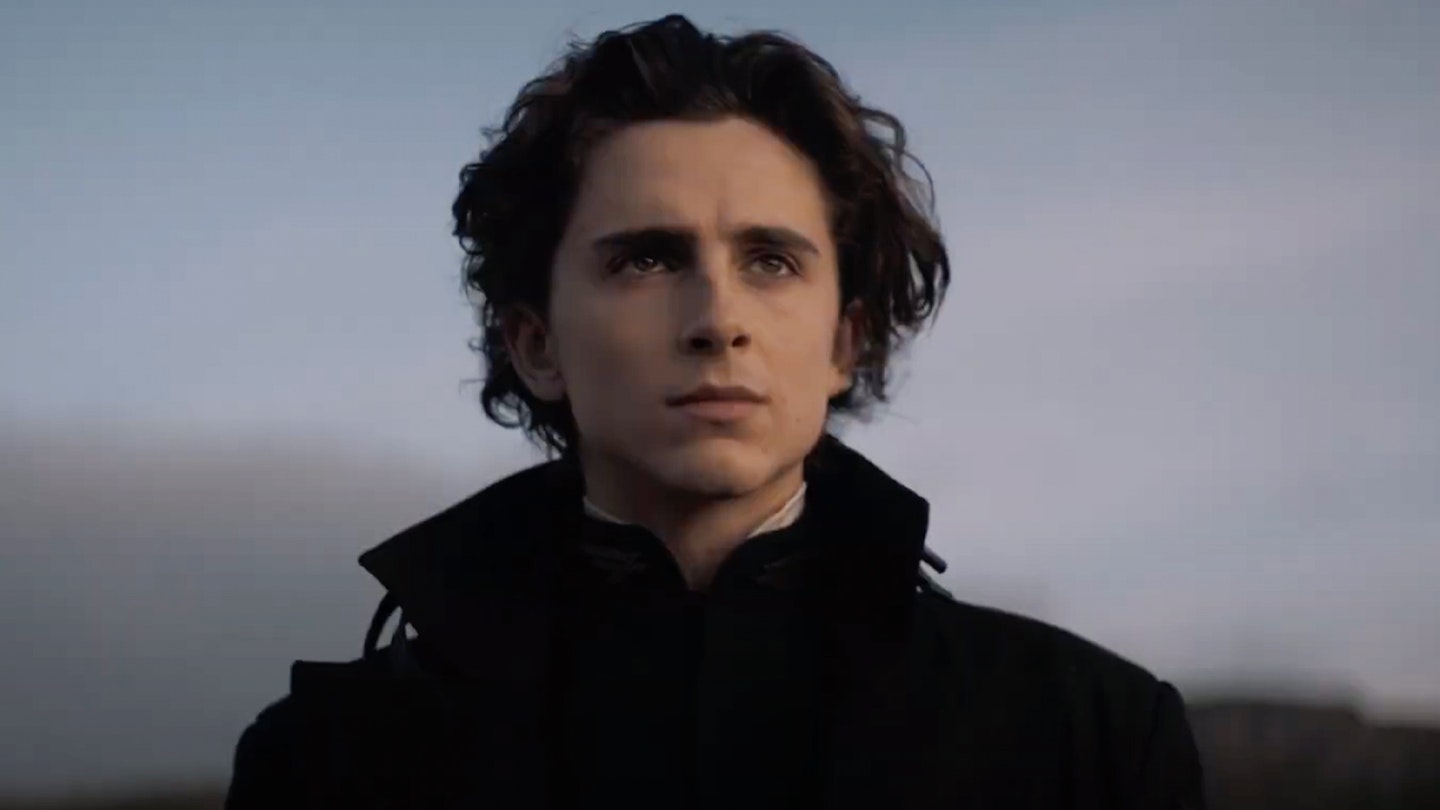 23 of 50
23 of 5028) Dune (2021)
Director: Denis Villeneuve Starring: Oscar Isaac, Timothée Chalamet, Rebecca Ferguson. Denis Villeneuve is no stranger to science fiction, nor to movies that would appear to be insurmountable challenges. Don't believe us? See Blade Runner 2049. With Dune, he took on Frank Herbert's sprawling, layered space opera and succeeded where David Lynch stumbled. Sure, Lynch's effort has its fans, but in the hands of Villeneuve, Dune soars, grounding the camper elements and projecting a vision of a vast, alien desert world that has become the focal point of a far-future galaxy. Cannily (and riskily) choosing to split the behemoth story into two so as to serve its needs, the movie keeps what was needed and jettisons what isn't. Plus, you have a cast that boasts Oscar Isaac, Rebecca Ferguson, Stellan Skarsgard, Timothée Chalamet, Zendaya, Josh Brolin, Jason Momoa, and so many more. Thank goodness, then, that the gamble paid off – the second part is due in a couple of years.
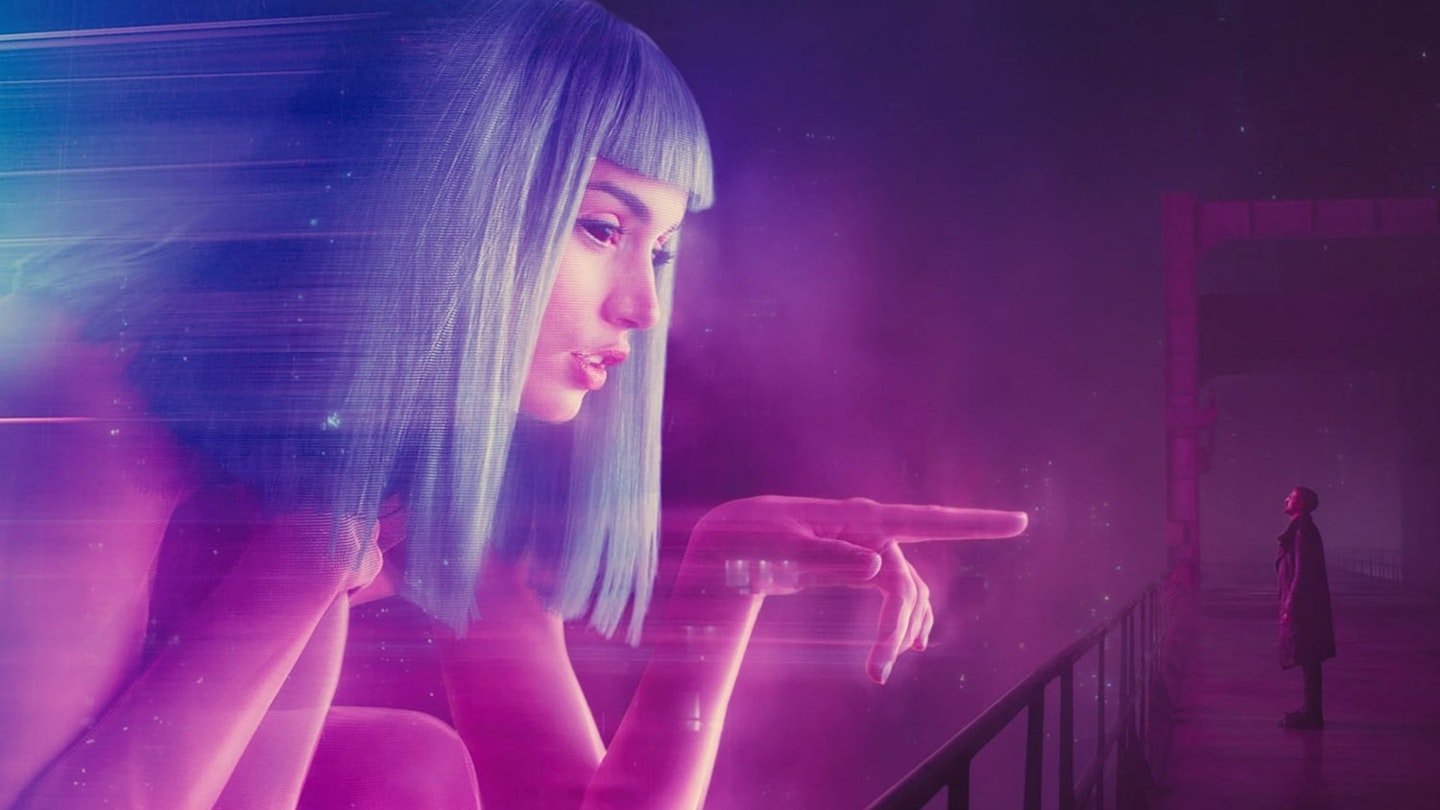 24 of 50
24 of 5027) Blade Runner 2049 (2017)
Director: Denis Villeneuve Starring: Ryan Gosling, Harrison Ford, Ana De Armas. If trying to sequelise Ridley Scott's all-time science-fiction classic about advanced 'Replicants' being hunted down in a future LA seemed foolhardy, that didn't stop Denis Villeneuve – and in a cinematic miracle, he pulled off a follow-up that somehow lives up to the original. That's partly thanks to cinematographer Roger Deakins, in charge of framing some of the most stirring sci-fi imagery of the last several decades – the image of Ryan Gosling's Replicant blade runner K confronted by a giant pink projection of Ana de Armas' wish fulfilment android Joi is an all-timer. But elsewhere, Villenueve continues to delve into what makes us human in a narrative that expands the original story without contradicting or disrespecting it, all while providing a subversive spin on the usual 'chosen one' narrative. 2049's greatest triumph is that it invokes the inimitable spirit of the original while becoming its own fully realised work. Bravo, Villenueve. Read the Empire review
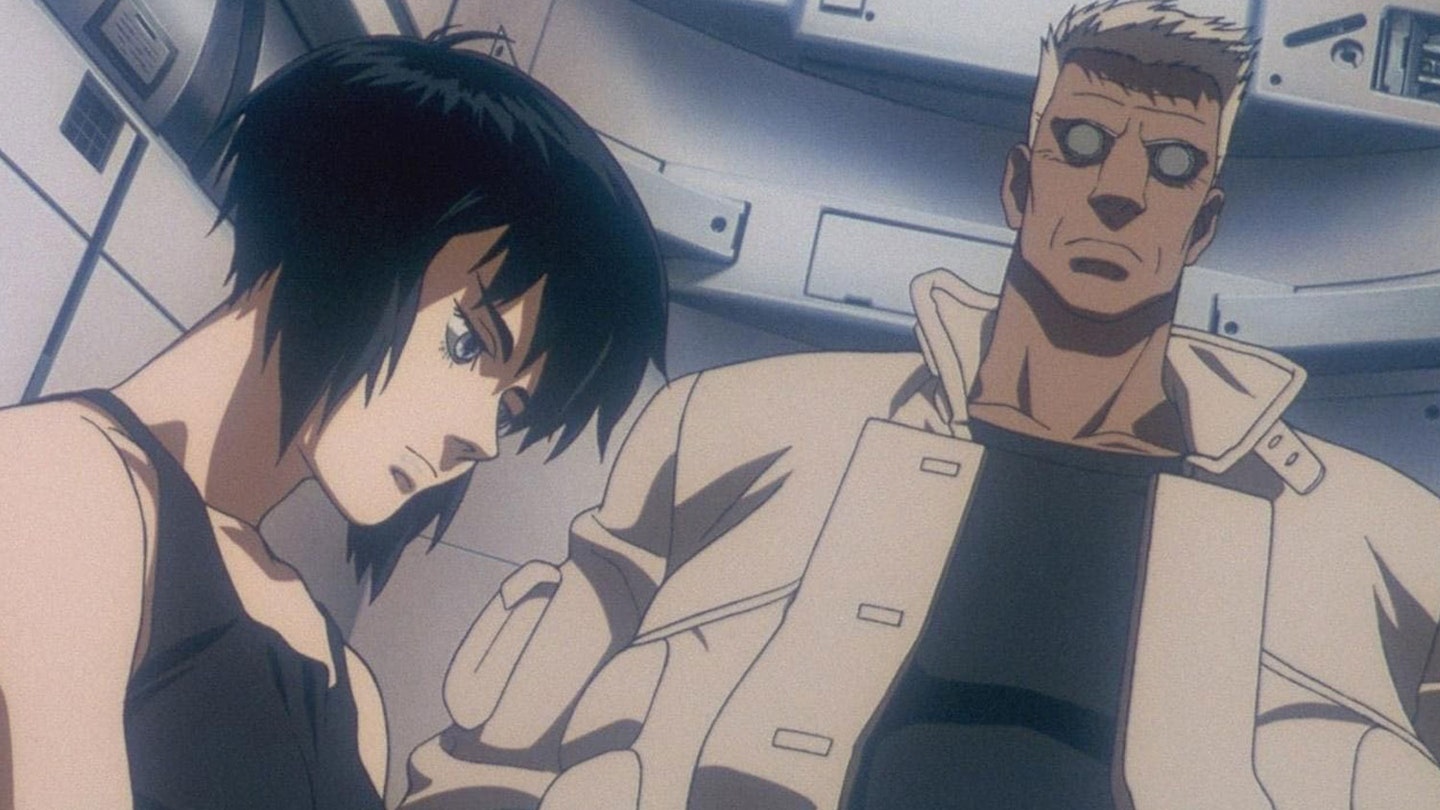 25 of 50
25 of 5026) Ghost In The Shell (1995)
Director: Mamoru Oshii Starring: Atsuko Tanaka, Akio Otsuka. Beyond Akira, Japanese anime's greatest contribution to the sci-fi genre is Mamoru Oshii's hugely influential cyberpunk classic – a cyborg saga whose DNA was re-encoded into everything from The Matrix and A.I., to Avatar and Ex_Machina. Set in a future Japan, the film centres around Motoko (aka the Major), a cyborg cop tracking down the 'Puppet Master' hacker and their mysterious origins. In the early days of the internet, Ghost In The Shell dialled deep into the potential of the information age, advances in robotics, and subsequent philosophical questions about 'ghosts' (or, consciousnesses) and the 'shells' they inhabit. All that and its visual depiction of cyber-technology and futuristic urban environments were incredibly prescient. Read the Empire review
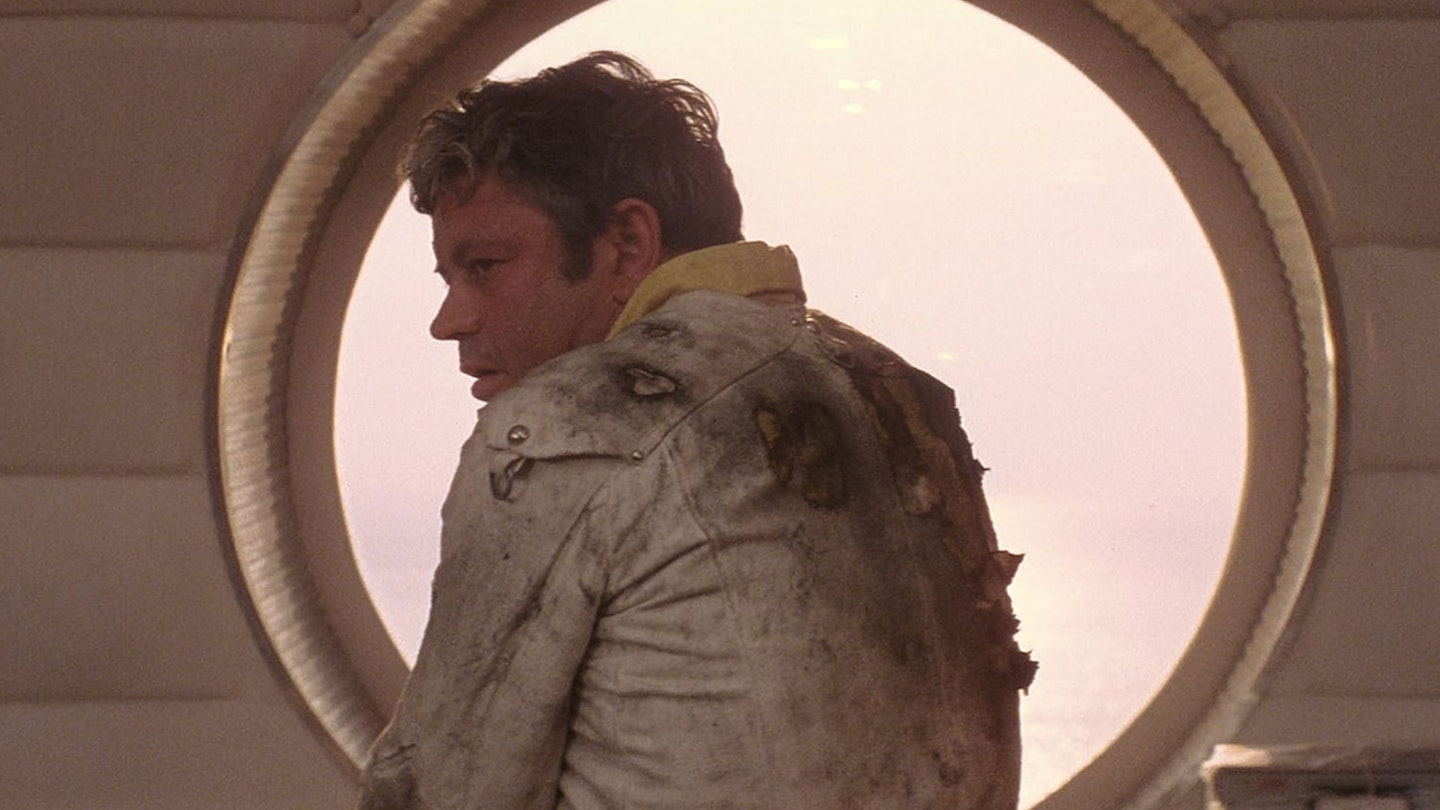 26 of 50
26 of 5025) Solaris (1972)
Director: Andrei Tarkovsky Starring: Donatas Banionis, Natalya Bondarchuk. Sorry Steven Soderbergh and George Clooney, in this case, we're going for Andrei Tarkovsky's 1970s original. Which, if anything is even colder and more opaque, with the director's typically meditative approach to science fiction. But there's a lot to be found if you're willing to dig. Psychologist Kris Kelvin (Donatas Banionis) is sent to a space station orbiting a distant planet where all but three of the occupants are now dead. It's his job to figure out why, but things get a whole stranger once he arrives. It'll make you ponder the nature of the film's reality, and perhaps your own, and if that sort of drama is on your wavelength, this will burn itself into your brain. Read the Empire review
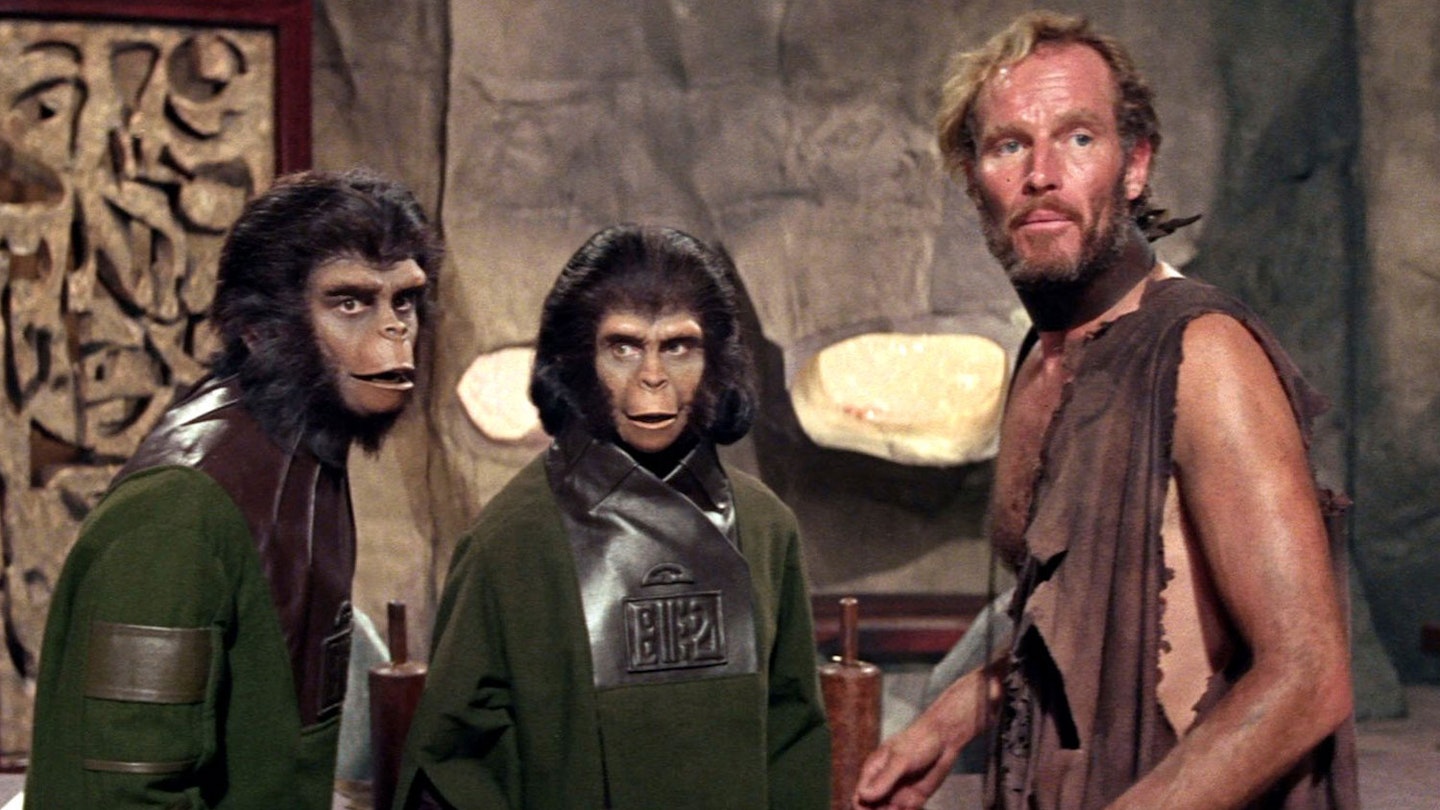 27 of 50
27 of 5024) Planet Of The Apes (1968)
Director: Franklin J. Schaffner Starring: Charlton Heston, Roddy McDowall, Kim Hunter. Long before Rupert Wyatt and Matt Reeves happened along to explore how the world got to the point of simian domination, Planet Of The Apes introduced audiences to the concept of a planet (spoiler: it's Earth!) taken over by our hairy brethren. Adapted from Pierre Boulle's novel by Michael Wilson and, tellingly, The Twilight Zone's Rod Serling, it's a little campy in places, but features some prime Charlton Heston gruffness as he battles those damn dirty apes. The idea of another species taking over has always haunted us, and this was impactful enough to impress audiences and launch a franchise (of varying quality) And, of course, it has one of the most memorable final twists in cinema history. All together now: "You maniacs!" Read the Empire review
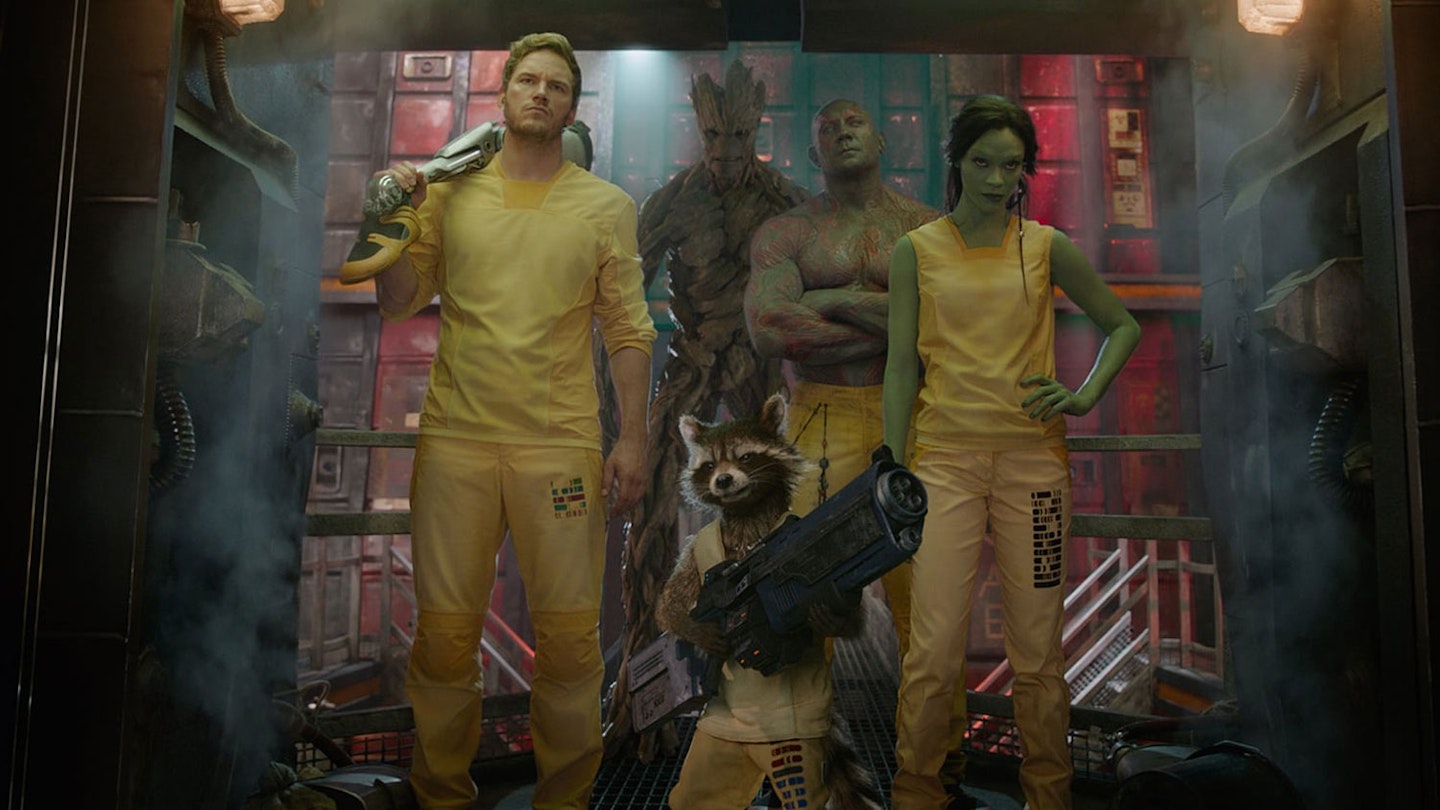 28 of 50
28 of 5023) Guardians Of The Galaxy (2014)
Director: James Gunn Starring: Chris Pratt, Zoe Saldana, Dave Bautista. The MCU has always made a virtue of using characters that hadn't conquered the mainstream, but eyebrows were raised even further when Marvel announced that a music-loving space slacker, a green assassin, a hulking warrior, a talking tree and a raccoon (who isn't a raccoon) would enter the fray. And with James Gunn, best known for his Troma background, horror scripts, Scooby Doo films and odd movies such as Slither? Turns out it was a fantastic decision, Gunn's sensibility breathing comic life into the cosmic characters. The tone works perfectly, there's an emotional gut punch at the end, and it smoothly births a franchise, with the Guardians an integral part of future movies, both their own and others. Sci-fi is rarely this much fun, or downright colourful, and we can't wait to see Vol. 3 whenever Gunn can make it. Read the Empire review
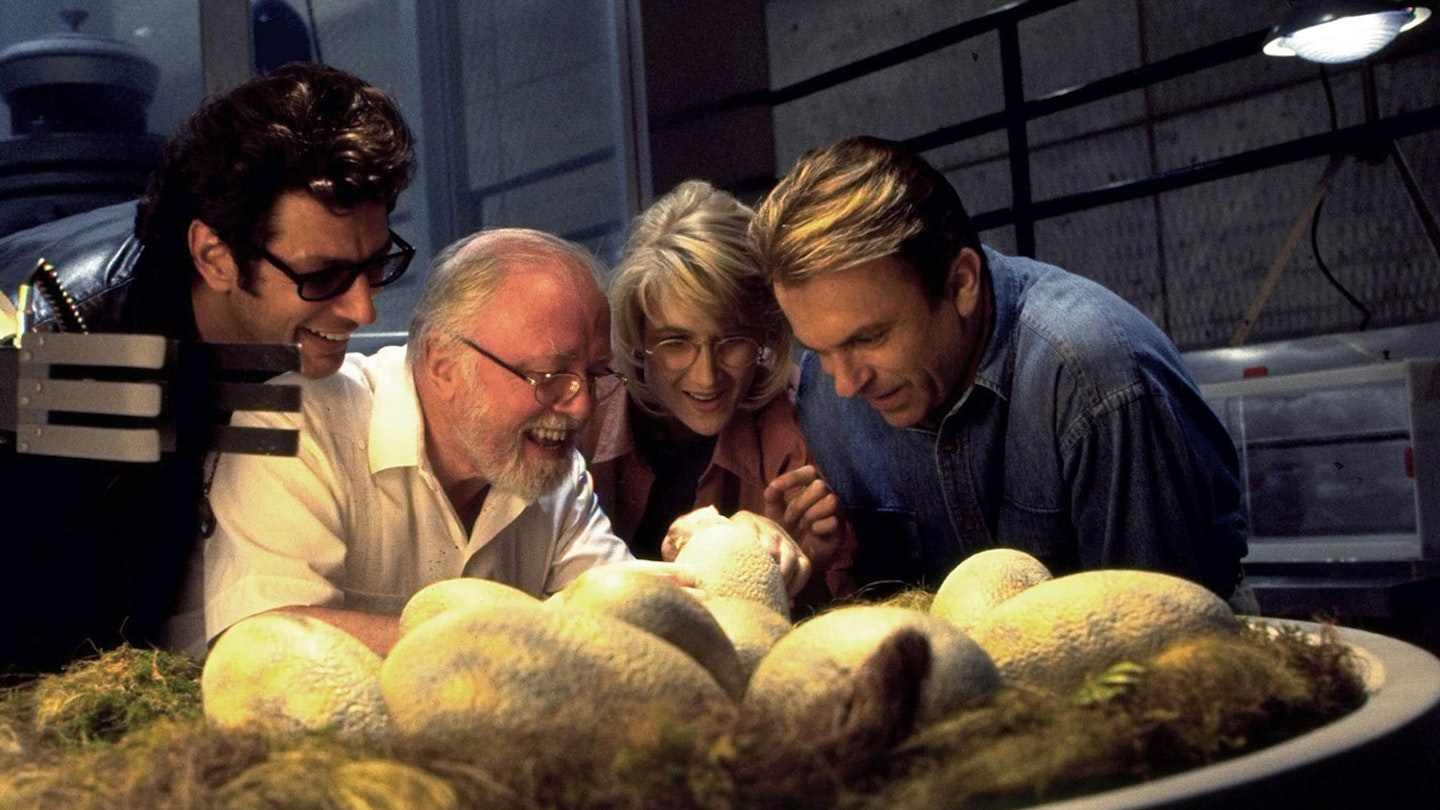 29 of 50
29 of 5022) Jurassic Park (1993)
Director: Steven Spielberg Starring: Sam Neill, Laura Dern, Jeff Goldblum. By the '90s, the prospect of animal and human cloning seemed so passé. How about... dinosaur cloning? Adapting Michael Crichton's novel into a game-changing, groundbreaking blockbuster about a prehistoric theme park gone wrong, Steven Spielberg delivers dino-spectacle while keeping the story's sci-fi credentials – man messes with forces of nature and reaps the unpredictable ramifications of chaos theory – intact. The result is an endlessly thrilling adventure movie that springs from some surprisingly plausible cod-science, with Spielberg himself the master creator at the heart of it all, somehow conjuring big-screen beasts that still look and feel incredibly real. Clever guy. Read the Empire review
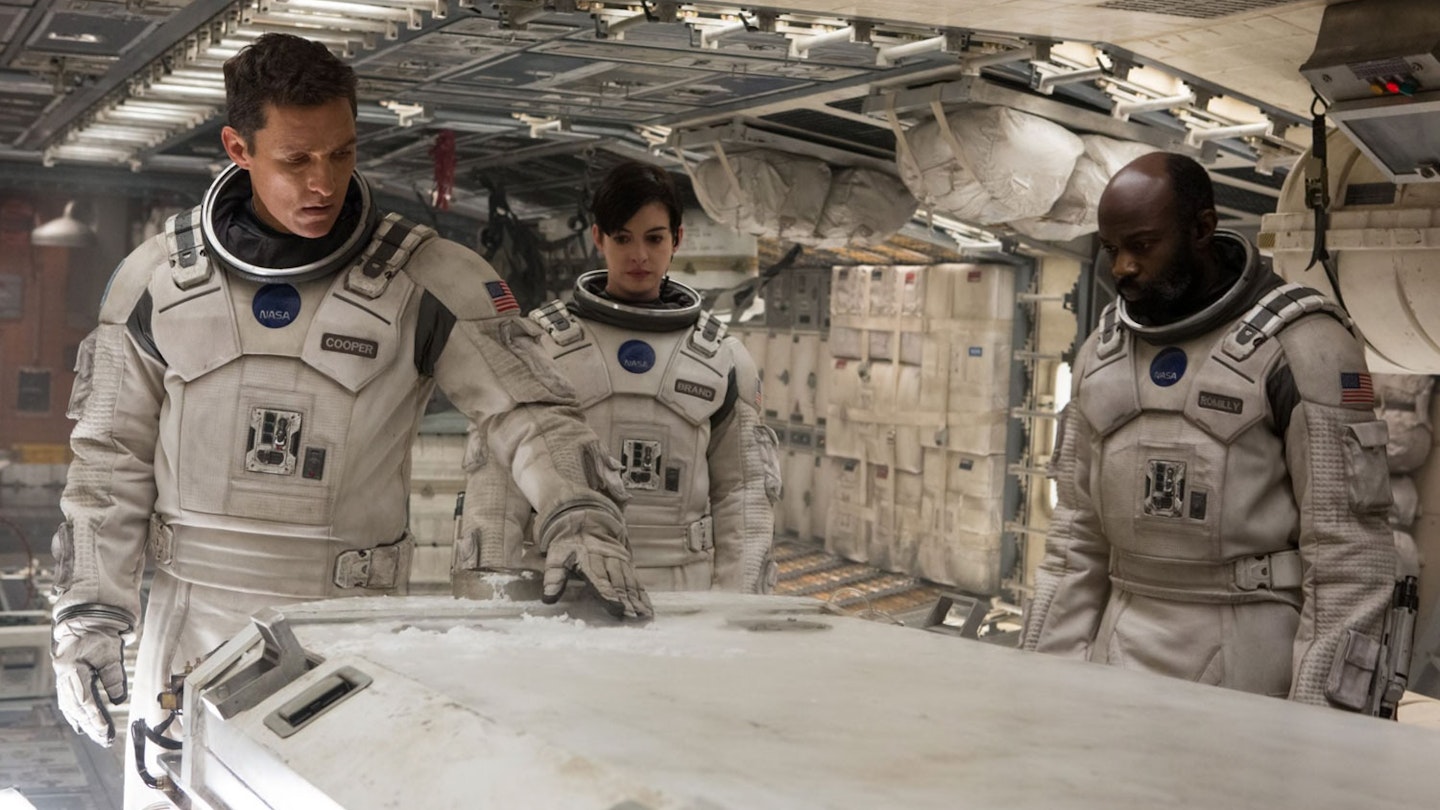 30 of 50
30 of 5021) Interstellar (2014)
Director: Christopher Nolan Starring: Matthew McConaughey, Anne Hathaway, Jessica Chastain. Having finished off his Bat-trilogy, Christoper Nolan got back to his own, original work. Interstellar reads to some as another cold Nolan experience, more concerned with the intellectual exploration of space travel and the mysteries of wormholes, but it's so much more. Hard science (or at least as hard as you can go with experimental physics, as advised by Kip Thorne) doesn't mean hard hearted – this is Nolan's love letter to love itself, particularly between fathers and daughters. Matthew McConaughey's emotional reaction to the message from his grown daughter, his Joe Cooper caught up in a mission where time passes differently for him than it does on Earth – is a key part of that. Nolan stitches it all together into a cohesive whole, and elicits excellent work from his cast, which also includes Anne Hathaway and Jessica Chastain. Read the Empire review
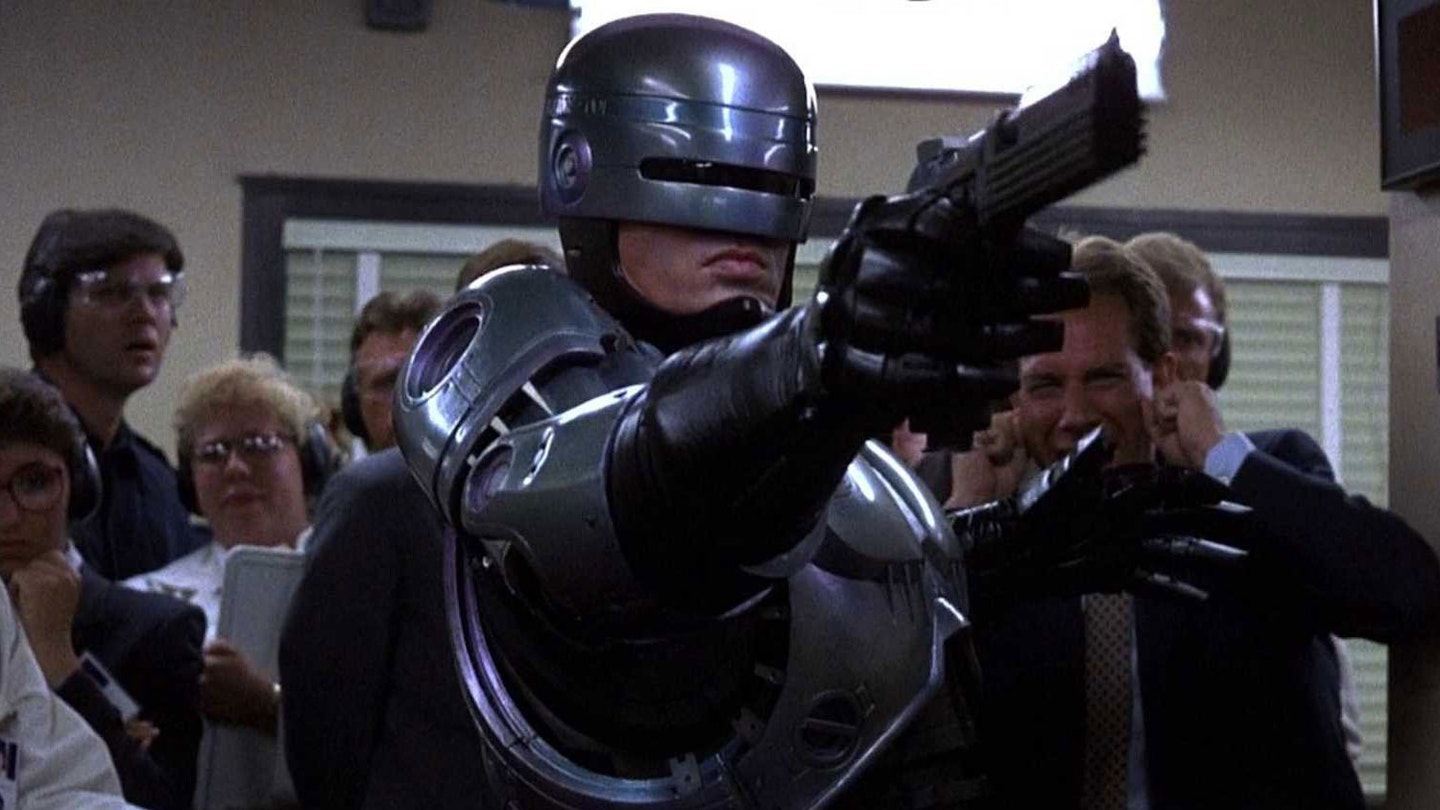 31 of 50
31 of 5020) RoboCop (1987)
Director: Paul Verhoeven Starring: Peter Weller, Nancy Allen, Dan O'Herlihy. Paul Verhoeven arrived in America with a European aesthetic and kicked the doors down with this satirical sci-fi that, with its vision of a corporation effectively owning a city, comes scarily close to reality. But it's also the story of a cop slain in the line of duty who is brought back as a cybernetic officer tortured by visions of a past life his owners tried to wipe from him. There's real horror to be found in the feeling of man becoming product, but it never becomes po-faced. There is blood and brutality, humour and humanity, all brought together by a slick visual style that belies its 1980s origins. Read the Empire review
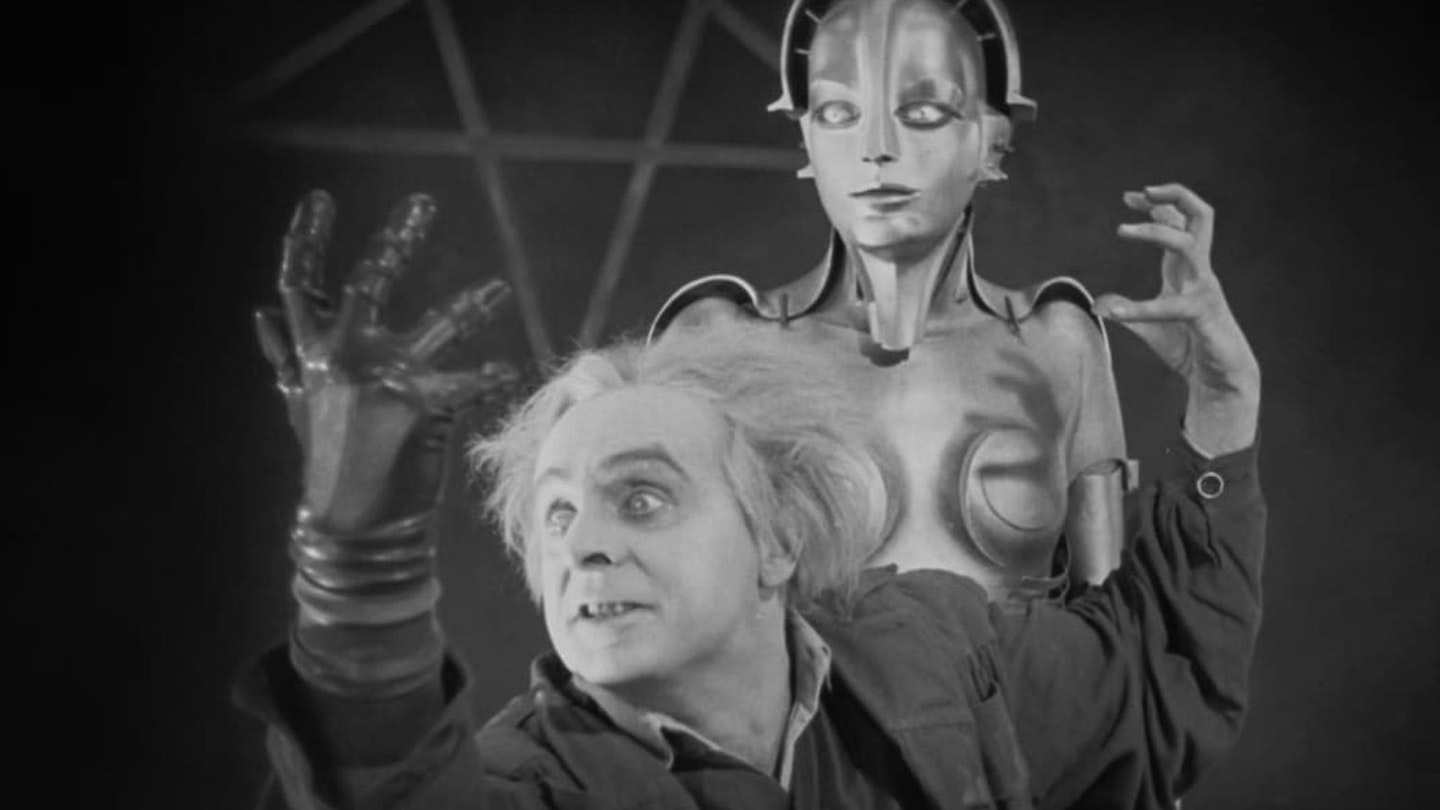 32 of 50
32 of 5019) Metropolis (1927)
Director: Fritz Lang Starring: Alfred Abel, Gustav Fröhlich. It's considered the first science fiction film, and it certainly retains an air of real power. Fritz Lang's masterpiece set the template for so many movies to come, any number of which owe it a debt in terms of design aesthetics. A meditation on industrialism and the crushing difference in classes, it was famously as tough for the actors and extras Lang hired to work on the film as for the characters they play. Real flames when you're being burned at the stake? That's commitment, and would definitely be frowned upon today.Read the Empire review
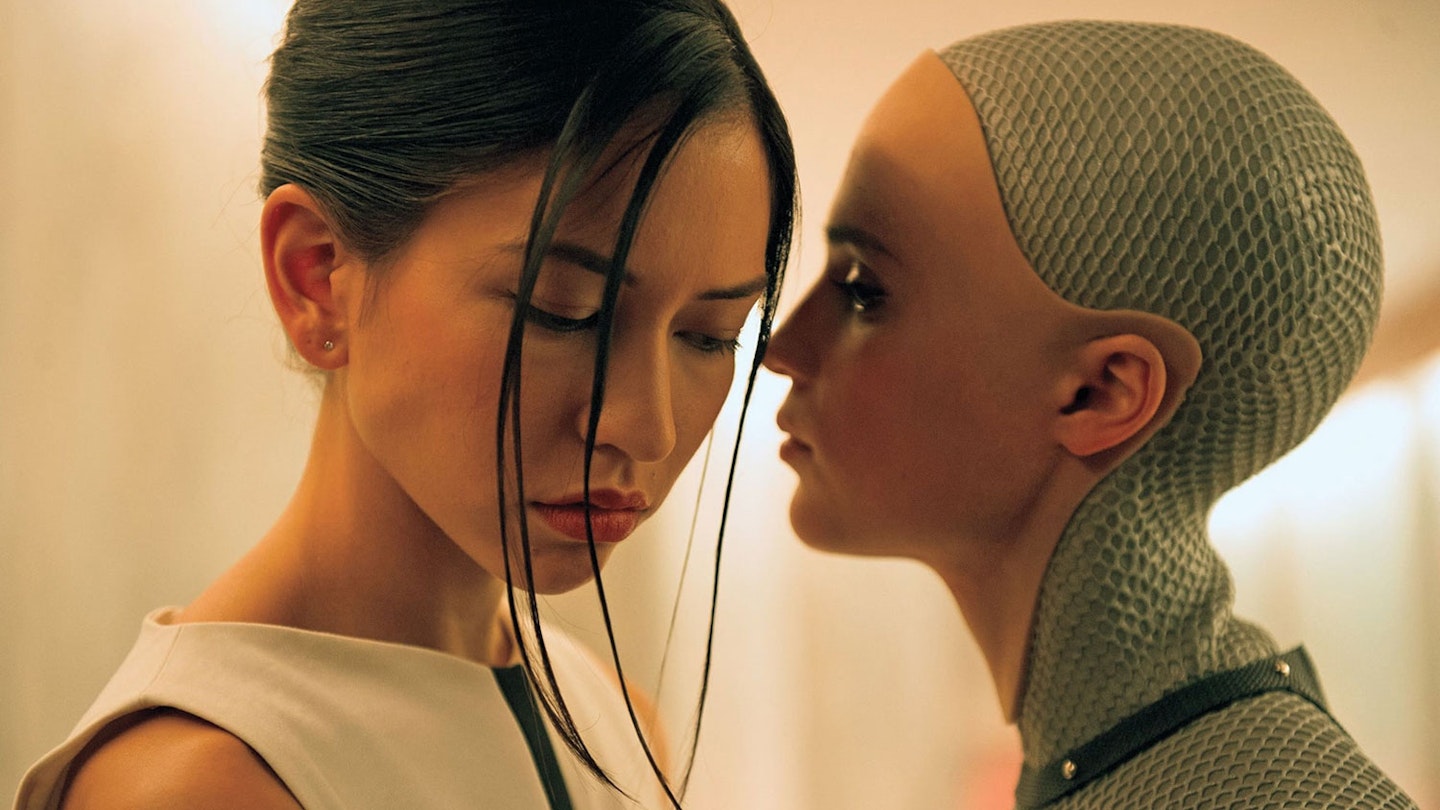 33 of 50
33 of 5018) Ex_Machina (2015)
Director: Alex Garland Starring: Domhnall Gleeson, Oscar Isaac, Alicia Vikander. After spending time as a writer for other directors' projects, Alex Garland got the chance to show what he could do with this twisty, and occasionally twisted, story of A.I. and antagonism. Caleb (Domhnall Gleeson) thinks he's won the opportunity of a lifetime when he gets to spend time with the reclusive, mysterious boss of the tech company he works for. Yet it turns out that said boss (Oscar Isaac's driven Nathan) actually wants him to test a new artificial intelligence, built in the shape of the beautiful Ava (Alicia Vikander) – and neither man gets quite what they expected. Taking a hard look at man's inhumanity to what many believe could be the next step in evolutionary intelligence, Ex_Machina is a masterful first film, with a well-deserved Oscar in its trophy cabinet for its visual effects. Read the Empire review
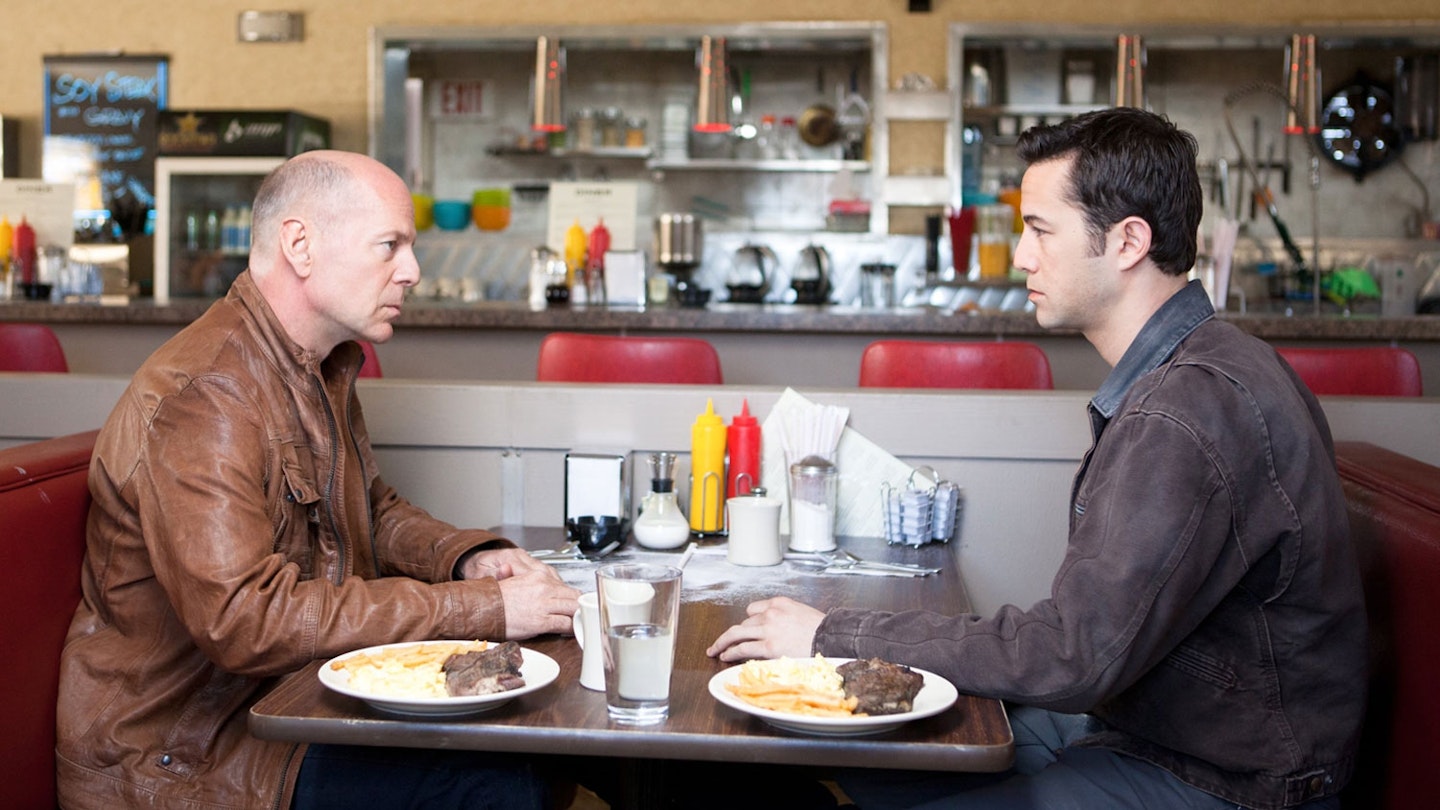 34 of 50
34 of 5017) Looper (2012)
Director: Rian Johnson Starring: Bruce Willis, Joseph Gordon-Levitt, Emily Blunt. Following high school noir Brick and sibling conmen story The Brothers Bloom, Rian Johnson surprised with this time-crossing assassin story. Joseph Gordon-Levitt's titular "Looper" is a hired killer for the mob, who kills victims sent back in time so they can disappear from 39 years in the future. But when Joe's next target is his own older self — closing the loop is the fate of all Loopers, who are paid well for their trouble — he's thrown off his game and future Joe (Bruce Willis) escapes. The ensuing cat and mouse chase takes further twists, but Johnson keeps it all juggled like a pro. The choice to make Gordon-Levitt (in prosthetics) and Willis play the same character is a risky one, but it works, and Johnson injects the movie with plenty of invention. Read the Empire review
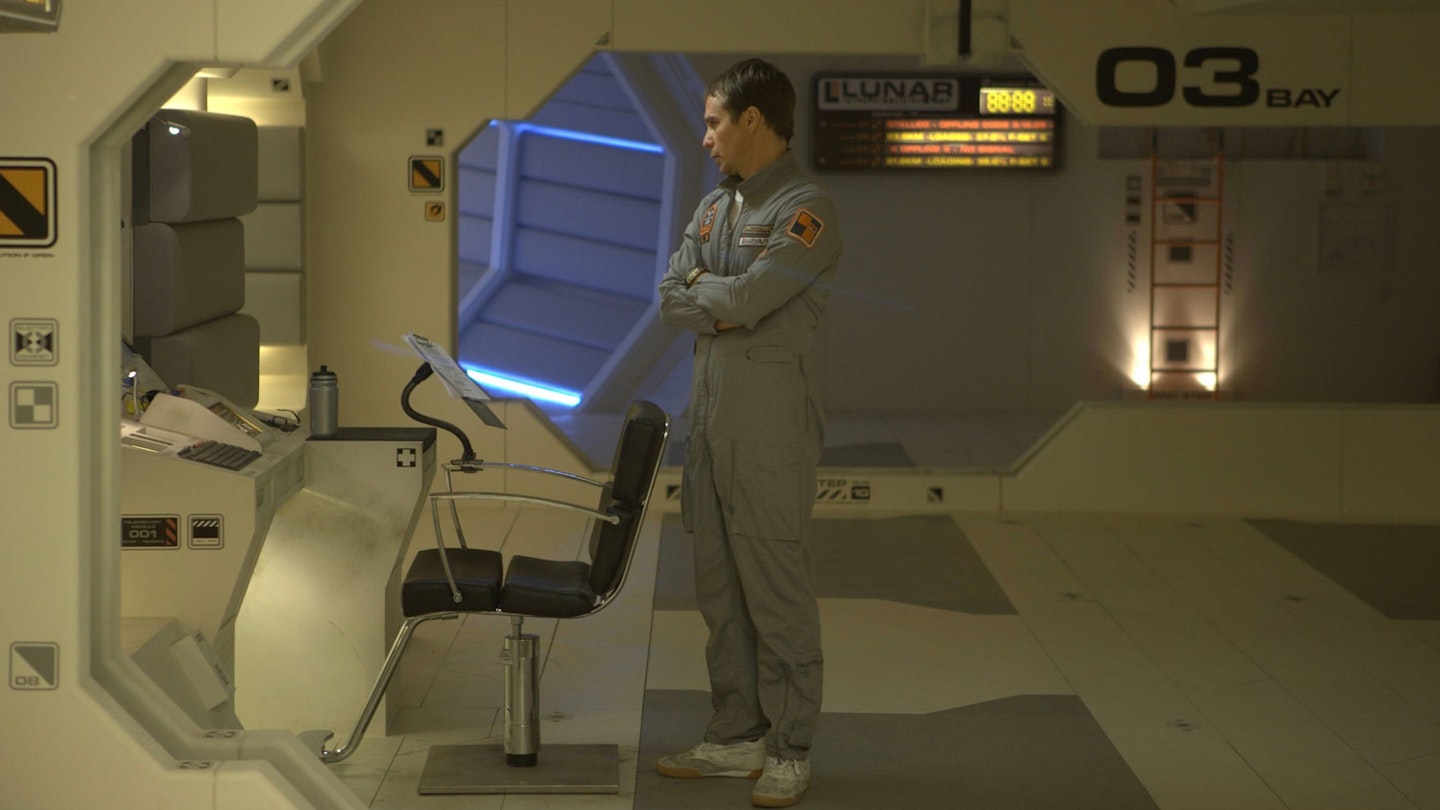 35 of 50
35 of 5016) Moon (2009)
Director: Duncan Jones Starring: Sam Rockwell. It might not have been the first film he initially planned to make, but Moon serves as an audacious full-length debut for director Duncan Jones. Sam Rockwell shines as Sam Bell, spending an isolated three-year-long stint working on a lunar mining outpost. Going a little crazy from lack of human contact, Sam makes a shocking discovery that changes his view of both his job and his own identity. Jones and writer Nathan Parker cook up a compelling story and their production team makes the most of a limited budget, creating a palpable, claustrophobic setting. Spoiler alert: the sci-fi chestnut of cloning is key here, but featured in a way that makes the consequences resonate on a human level. Read the Empire review
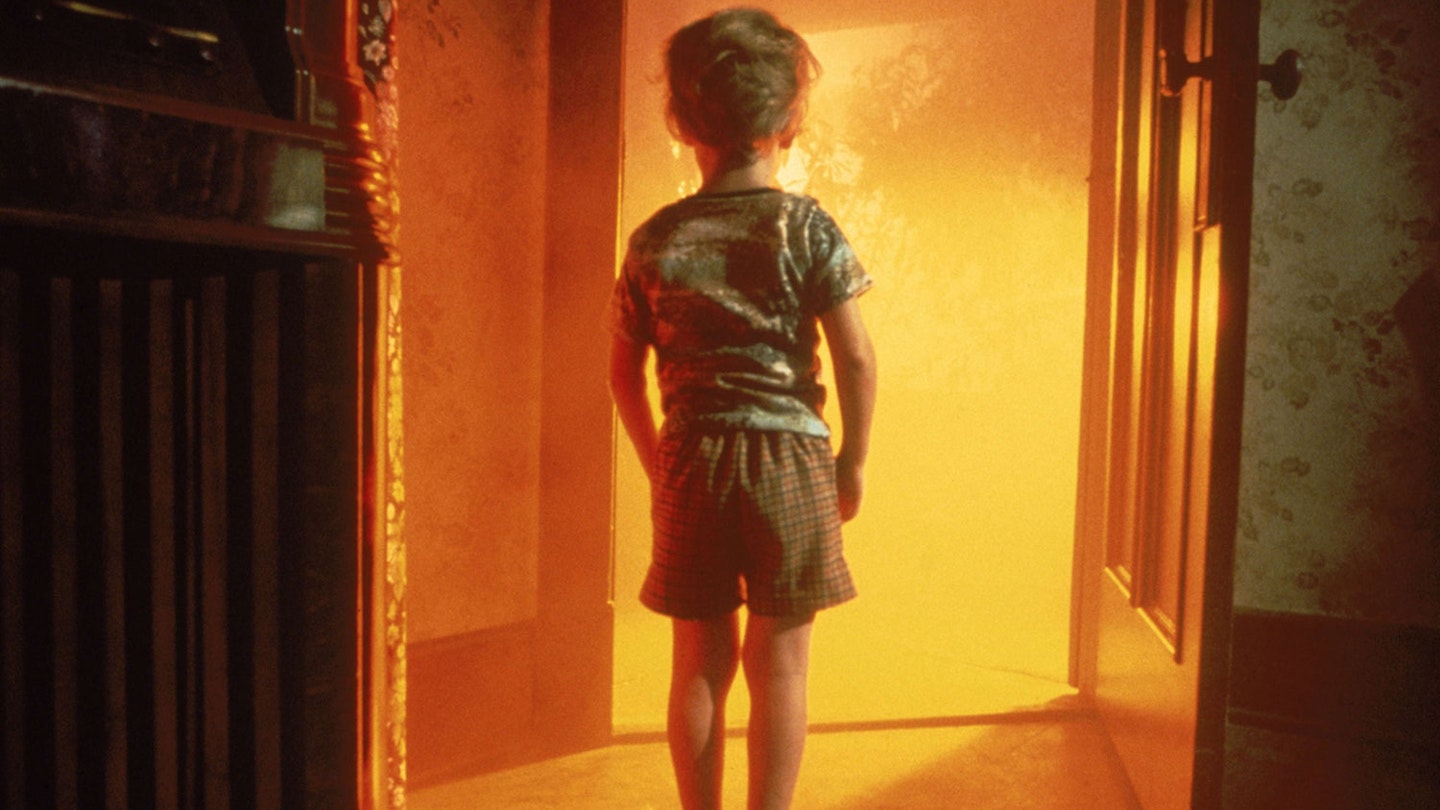 36 of 50
36 of 5015) Close Encounters Of The Third Kind (1977)
Director: Steven Spielberg Starring: Richard Dreyfuss, François Truffaut, Teri Garr. It's not all that surprising that Steven Spielberg's name appears several times on this list (more when you consider the movies he produced); he's been a leading light in the genre for the last 40 years. And this seminal, memorable film channels one of his earliest obsessions: alien encounters. Close Encounters stands the test of all that time, an emotional story of Roy Neary (Richard Dreyfuss) who becomes wrapped up in an event he can't quite comprehend, but which changes his life forever. You know it for the mash mountain, and for those musical tones – but the film is so much more than that. Read the Empire review
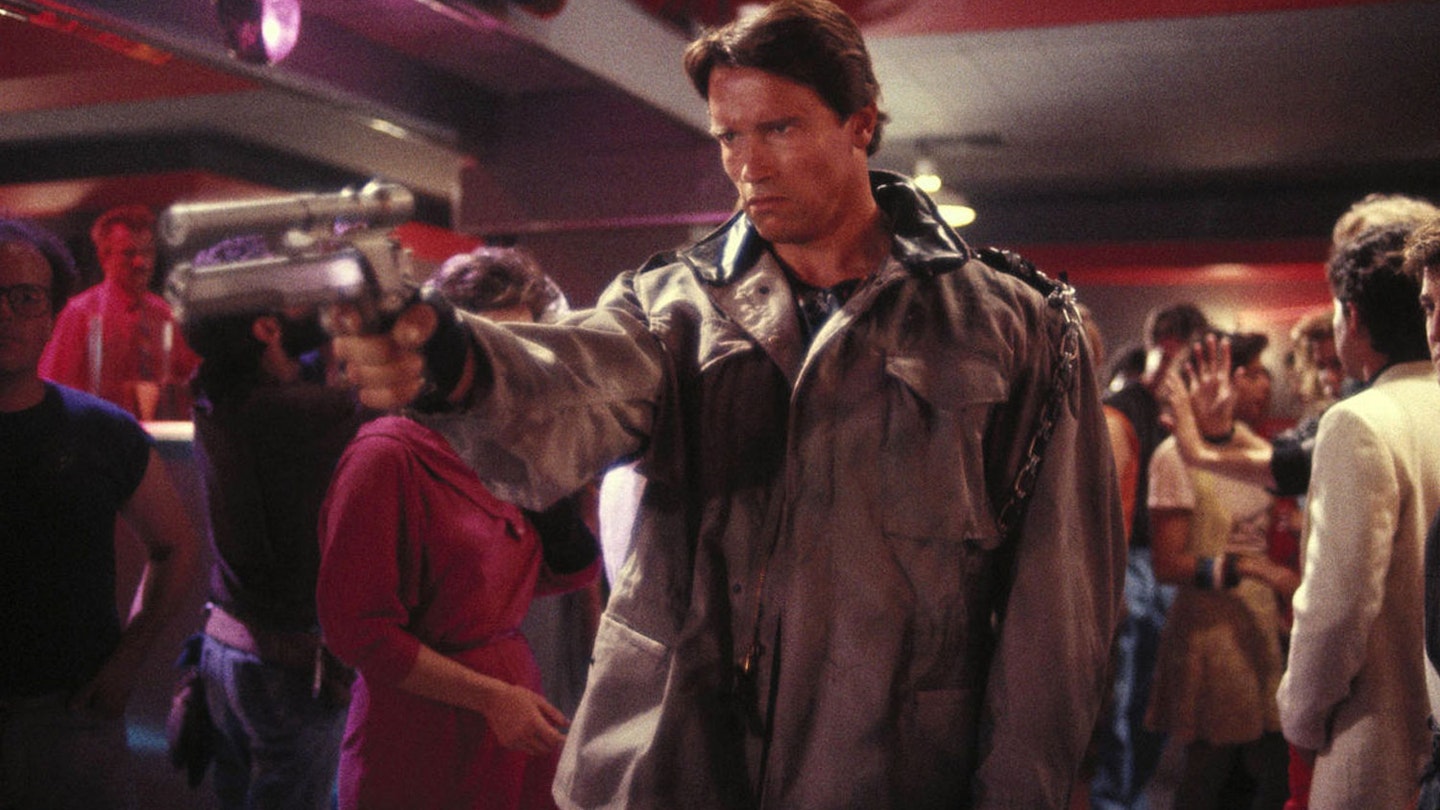 37 of 50
37 of 5014) The Terminator (1984)
Director: James Cameron Starring: Linda Hamilton, Michael Biehn, Arnold SchwarzeneggerEclipsed only slightly by its sequel (read on for more on that), James Cameron's breakout killer cyborg thriller announced his intention to rock the genre with a relatively — by today's standards, at least — low budget and some real invention, even layering in a complicated rumination on time and how the future can be altered for good and ill, which is not the usual subject you expect for such action fare. Arnold Schwarzenegger's man-mountain presence is the threat, but Michael Biehn's future soldier and Linda Hamilton's harassed Sarah Connor are the heart of the story. Cameron keeps the story taught and the action inventive, and there's a pulsing score from Brad Fiedel that has long since entered our collective brains. Read the Empire review
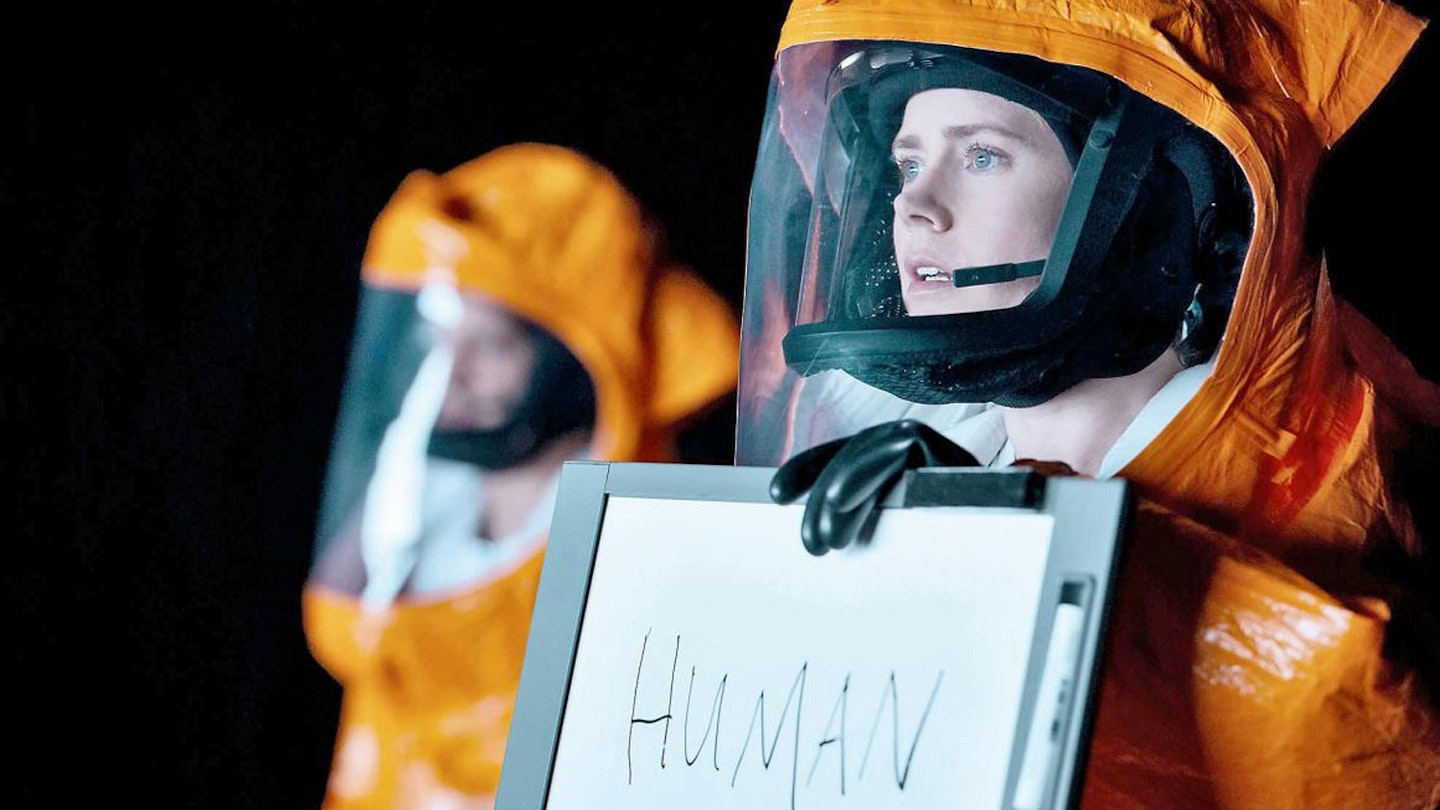 38 of 50
38 of 5013) Arrival (2016)
Director: Denis Villeneuve Starring: Amy Adams, Jeremy Renner. A time-twisting short story by Ted Chiang. A script from Eric Heisserer. Denis Villeneuve in the director's chair. It's a combination, allied to top work from Jeremy Renner and Amy Adams that delivers the knockout punch that offers both brainfood and a heart-breaking through-line. Aliens arrive in giant ships and humans must figure out how to communicate with the strange creatures, expanding on the first contact idea that has fascinated humanity for years, but with extra layers. Time becomes flexible and you'll want to revisit it more than once to steep in both the atmosphere and the story. Read the Empire review
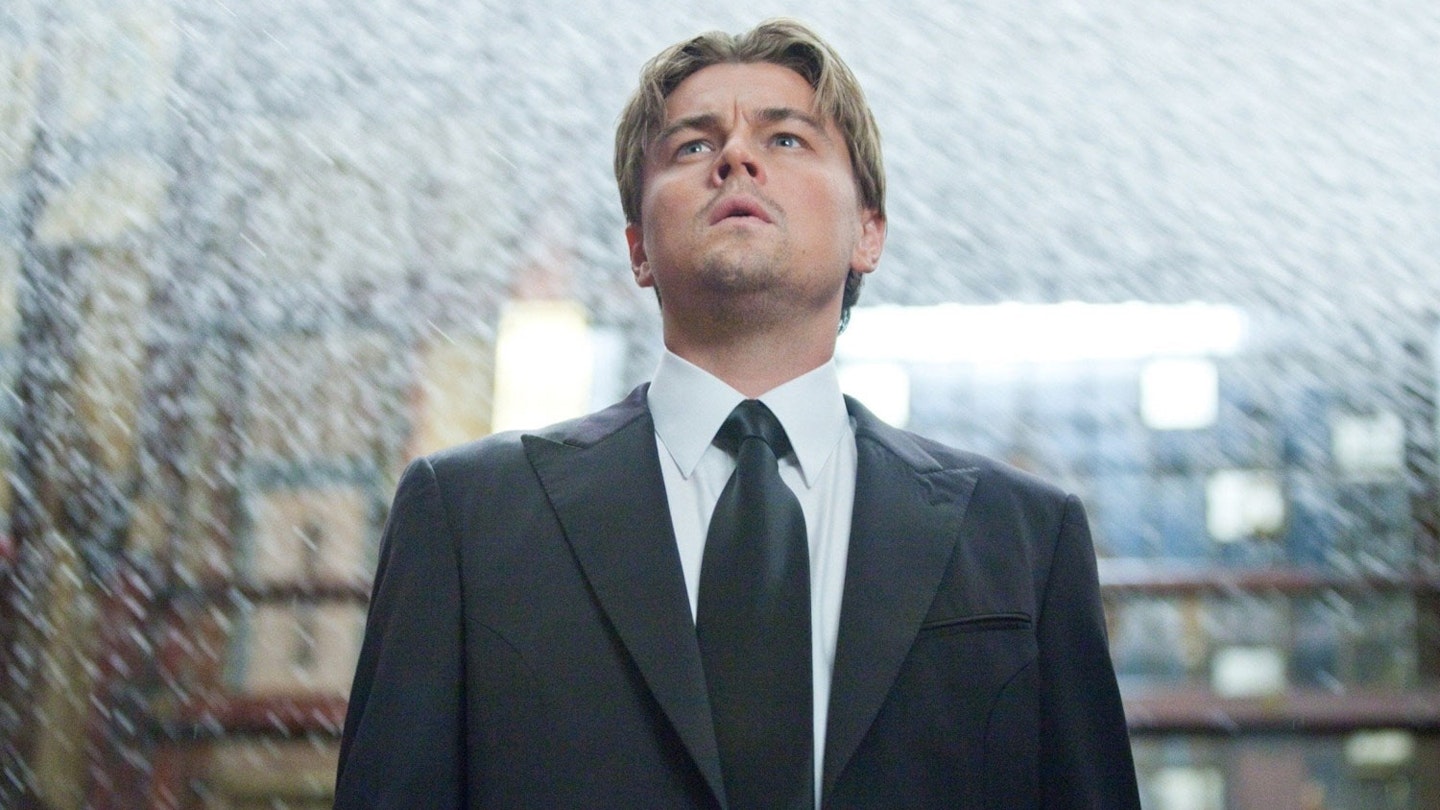 39 of 50
39 of 5012) Inception (2010)
Director: Christopher Nolan Starring: Leonardo DiCaprio, Elliot Page, Joseph Gordon-Levitt. A filmmaker ever-fascinated by the architecture of the human mind, Christopher Nolan externalised the human subconscious into physical environments for a Bond-inspired heist-movie blockbuster. Taking place across multiple levels of malleable reality, Inception imagines the possibility of dream-tech that allows Leonardo DiCaprio's Dom Cobb and his team to infiltrate sleeping marks and extract information from their unconscious minds – until he's given the altogether harder job of implanting an idea into his next target. Through dizzying setpieces and narrative convolutions, Nolan embraces dream-logic, subverts physics, and orchestrates collapsing realities, creating a psychological sci-fi spectacular that's sure to boggle minds for decades to come. Read the Empire review
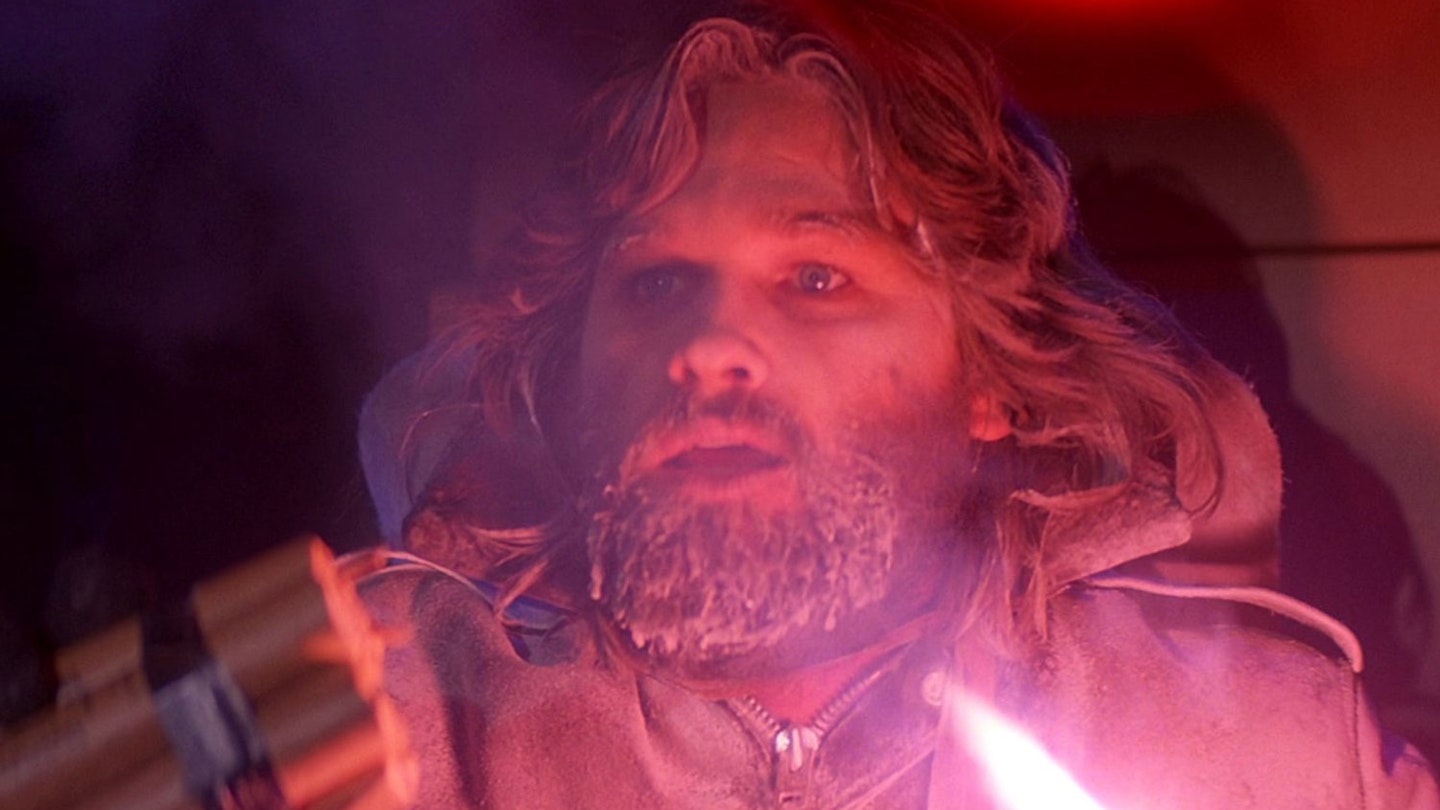 40 of 50
40 of 5011) The Thing (1982)
Director: John Carpenter Starring: Kurt Russell, Keith David. Chilling and chilly in equal measure, the classic shape-shifting alien tale was finally met with special effects that could convey the true horror of its intergalactic entity in John Carpenter's remake. Based on John W. Campbell Jr.'s novella Who Goes There, adapted into 1951 B-movie The Thing From Another World, Carpenter's take wrings all the paranoid potential from a set-up which means nobody can be trusted – with the titular 'Thing' picking off the researchers at an Antarctic research base and imitating them to cause maximum confusion. Even worse, the Thing also transforms into all kinds of horrifying mutant creatures – most infamously, a severed head crawling along on spider legs. Rob Bottin's creatures effects are legendary, Kurt Russell grounds it all as level-headed leader RJ MacReady, and its final stand-off is one of the great movie endings. Funny to think it arrived in the same summer as a much more amiable extra-terrestrial...Read the Empire review
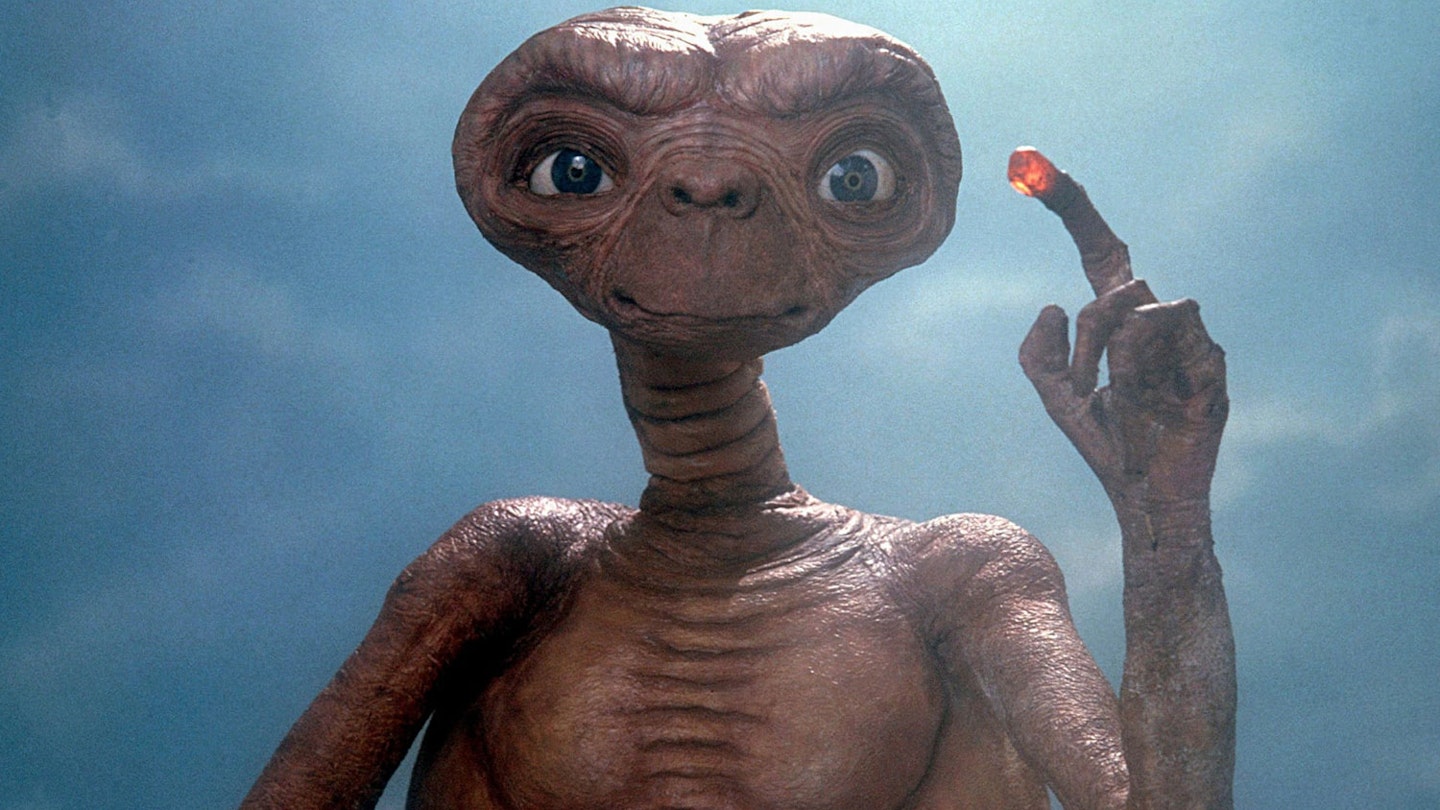 41 of 50
41 of 5010) E.T. The Extra Terrestrial (1982)
Director: Steven Spielberg Starring: Henry Thomas, Drew Barrymore, Dee Wallace. The polar opposite of The Thing in every sense, Spielberg's coming-of-age tale about a young boy and his alien friend is pure cinema magic. Suburban American youngster Elliott becomes best pal to an intergalactic being accidentally left behind on Earth by his family in a parable about lonely children and outsiders that tackles the emotional fall-out of divorce. While there's the looming threat of nefarious government authorities and the eventual need for E.T. to go home (after phoning first), it's foregrounded by childhood joy as Elliot and his siblings get up to mischief with their botanical buddy. Its soaring imagery of Elliot and E.T. flying in front of the moon on his bike is one of the most unmistakable cinematic sci-fi moments, while the stellar John Williams score remains incredibly emotional.Read the Empire review
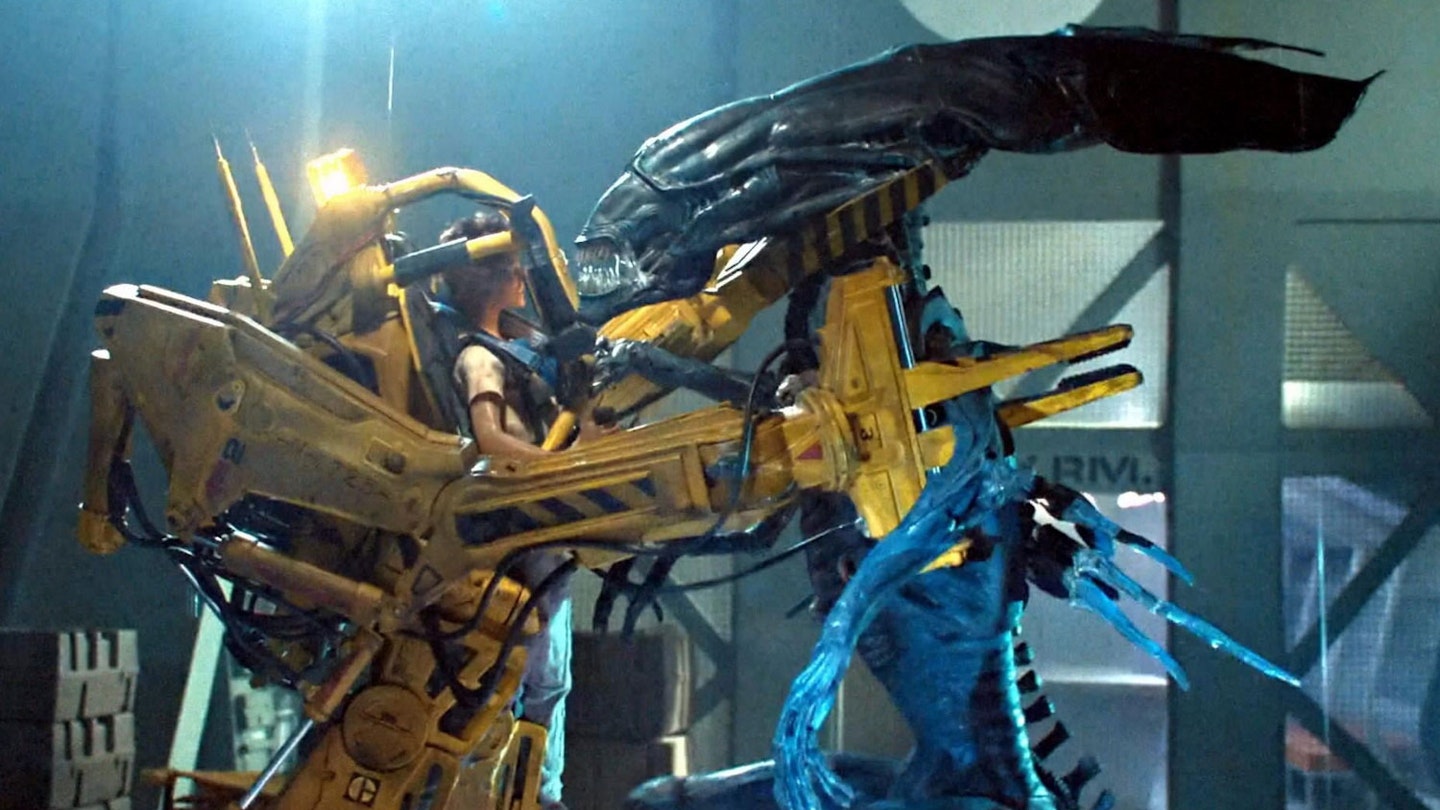 42 of 50
42 of 509) Aliens (1986)
Director: James Cameron Starring: Sigourney Weaver, Michael Biehn, Carrie Henn. It can't be easy to take over a film series that has been kicked off by so seminal a film as Alien, and yet James Cameron makes it look simple. Aliens expands and deepens the universe of the human vs. Xenomorph conflict and finds brand new ways to make the creatures terrifying. Body horror and war combine with ease – this is yet another intergalactic Vietnam allegory – and the idea of the beasts as a hive is a metaphor ripe with possibility, one that Cameron channels easily. Building on the promise of Sigourney Weaver's Ellen Ripley, it upends her experience by marooning her with a group of marines on a colony world riddled with the slavering beasts. The tension is razor-wire sharp, and Cameron never forgets to make a variety of the troopers into something more than forgettable alien-fodder. Read the Empire review
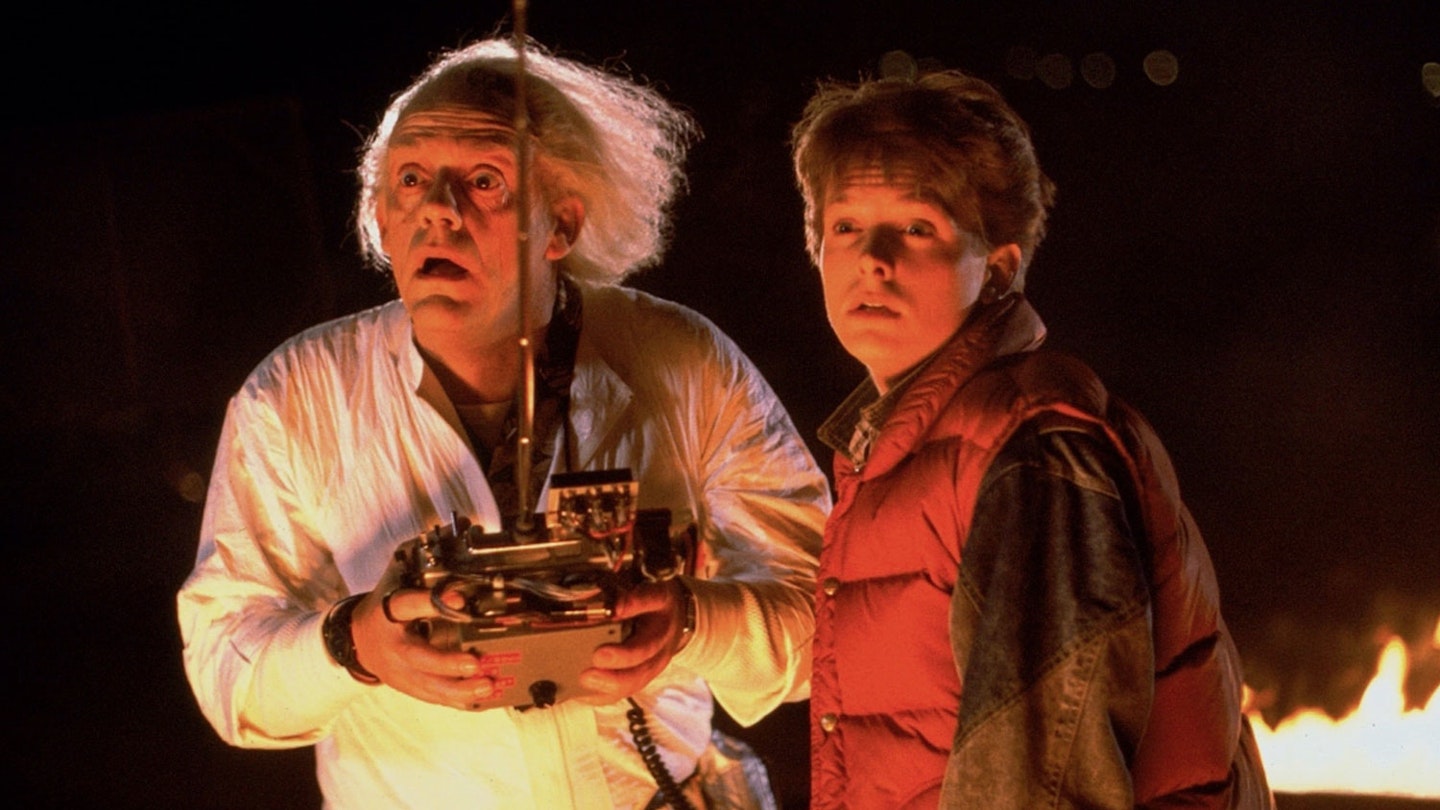 43 of 50
43 of 508) Back to The Future (1985)
Director: Robert Zemeckis Starring: Michael J. Fox, Christopher Lloyd, Lea Thompson. Time travel and the ripples that spread out from someone changing the past are concepts that are incredibly hard to pull off. Yet few films are as perfectly constructed as the first Back To The Future. Certainly some try to pick plot nits, but there are few to find. Robert Zemeckis and co-writer Bob Gale conjured up a tale that's so satisfying to watch, even if chunks of it had to be re-shot when original star Eric Stoltz didn't work out. Replacement Michael J. Fox rode the role to movie star status, bolstered by a great ensemble, and gave the movie the core it required to work like a well-wound watch. Crucially, it cemented the most widely-understood model of fictional time-travel, even if later time-twisting films have sought to debunk it. Read the Empire review
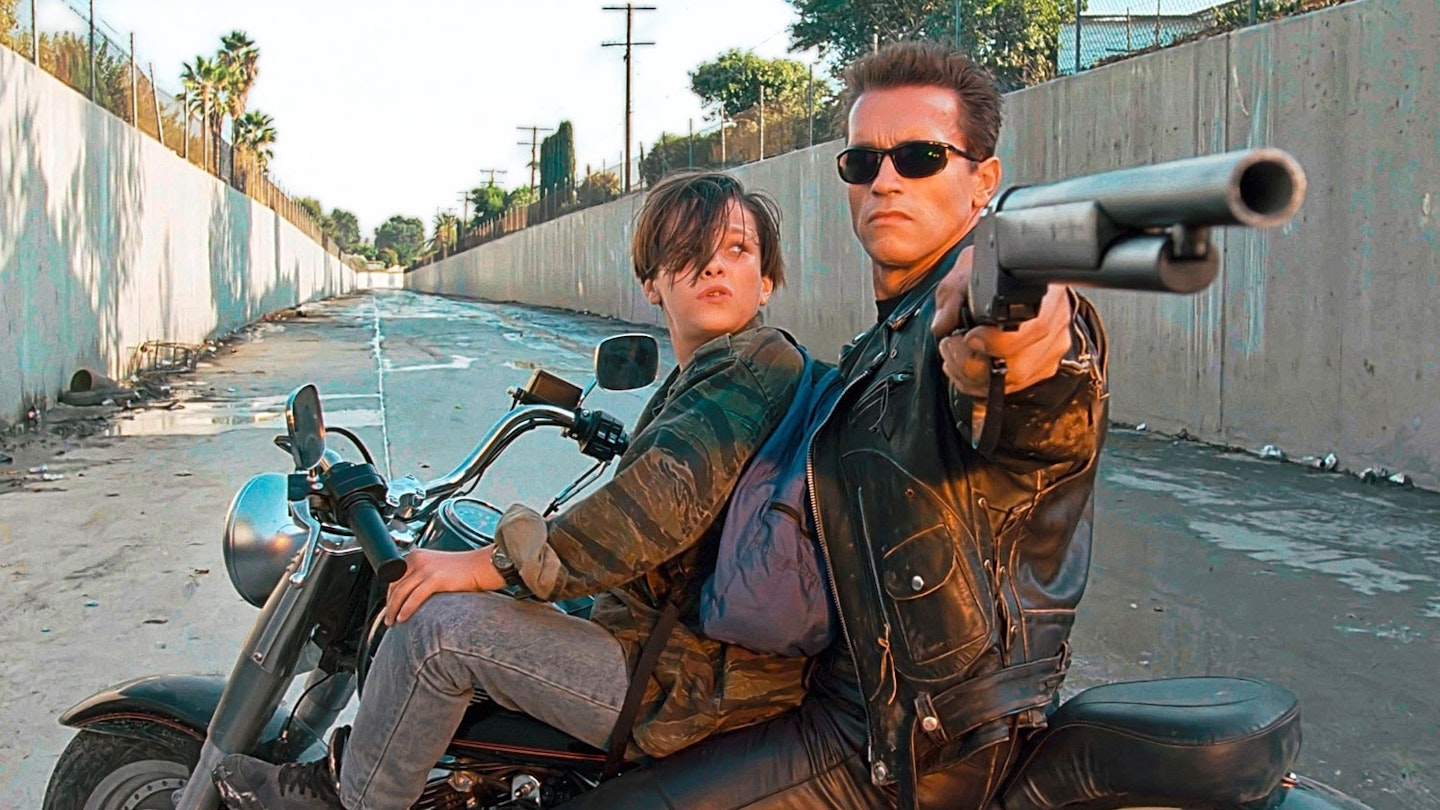 44 of 50
44 of 507) Terminator 2: Judgment Day (1991)
Director: James Cameron Starring: Arnold Schwarzenegger, Linda Hamilton, Edward Furlong. After establishing a smart time-loop scenario in the original Terminator, James Cameron cranked everything up for this sequel – introducing a new liquid-metal android foe, reprogramming Arnie as the good guy, and plotting a new plan to disrupt the future and halt the impending nuclear 'judgment day'. The result is one of the all-time great sequels, delivering incredible action, a thrilling transformation from Sarah Connor as a hardened hero, and a formidable villain in Robert Patrick's shape-shifting T-1000. Beyond the spectacle there are more ideas at play – notably around machine learning, as Schwarzenegger's nice-guy T-800 forms a bond with Edward Furlong's young John Connor and begins to evolve through their interactions. Thumbs up. Read the Empire review
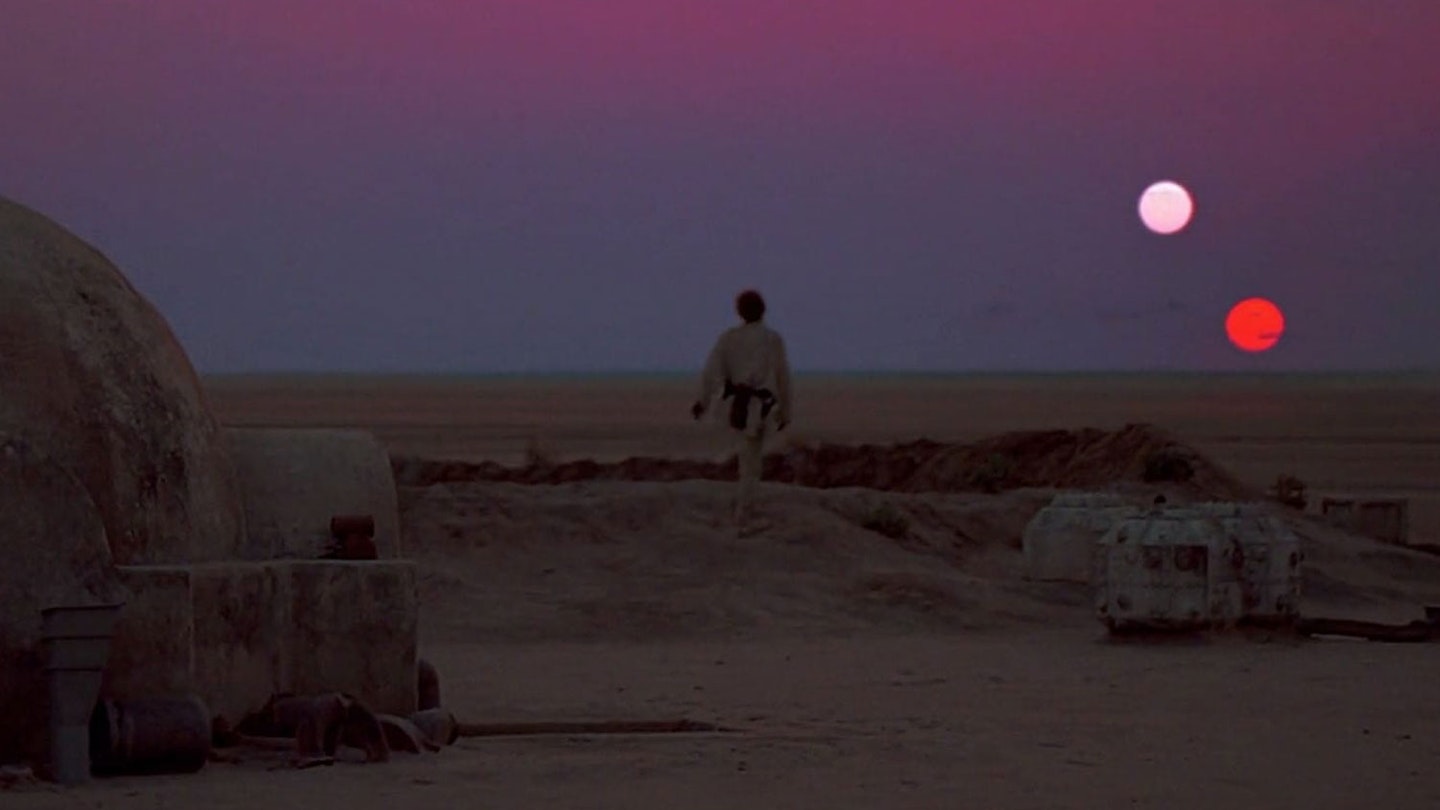 45 of 50
45 of 506) Star Wars (1977)
Director: George Lucas Starring: Mark Hamill, Harrison Ford, Carrie Fisher. Yes, it's more space opera than hard sci-fi. But where would the genre be without the impact and influence of Star Wars, of that opening moment in which the Star Destroyer looms over the camera for a seeming infinity? Bursting with iconic aliens, hyper-space travel, and galactic overlords, George Lucas transplanted the classic hero's journey narrative (Mark Hamill's Luke Skywalker is the simple farm-boy who discovers he's got a much bigger destiny out in the world) into a boundlessly imaginative galaxy far, far away, with laser-swords and mystical religions, space-princesses and loveable rogues. From its incredible model work, to its cosmic dogfights, to the look of the opening crawl as it drifts off into the stars, the original Star Wars changed everything – and science-fiction at large has felt the Force ever since. Read the Empire review
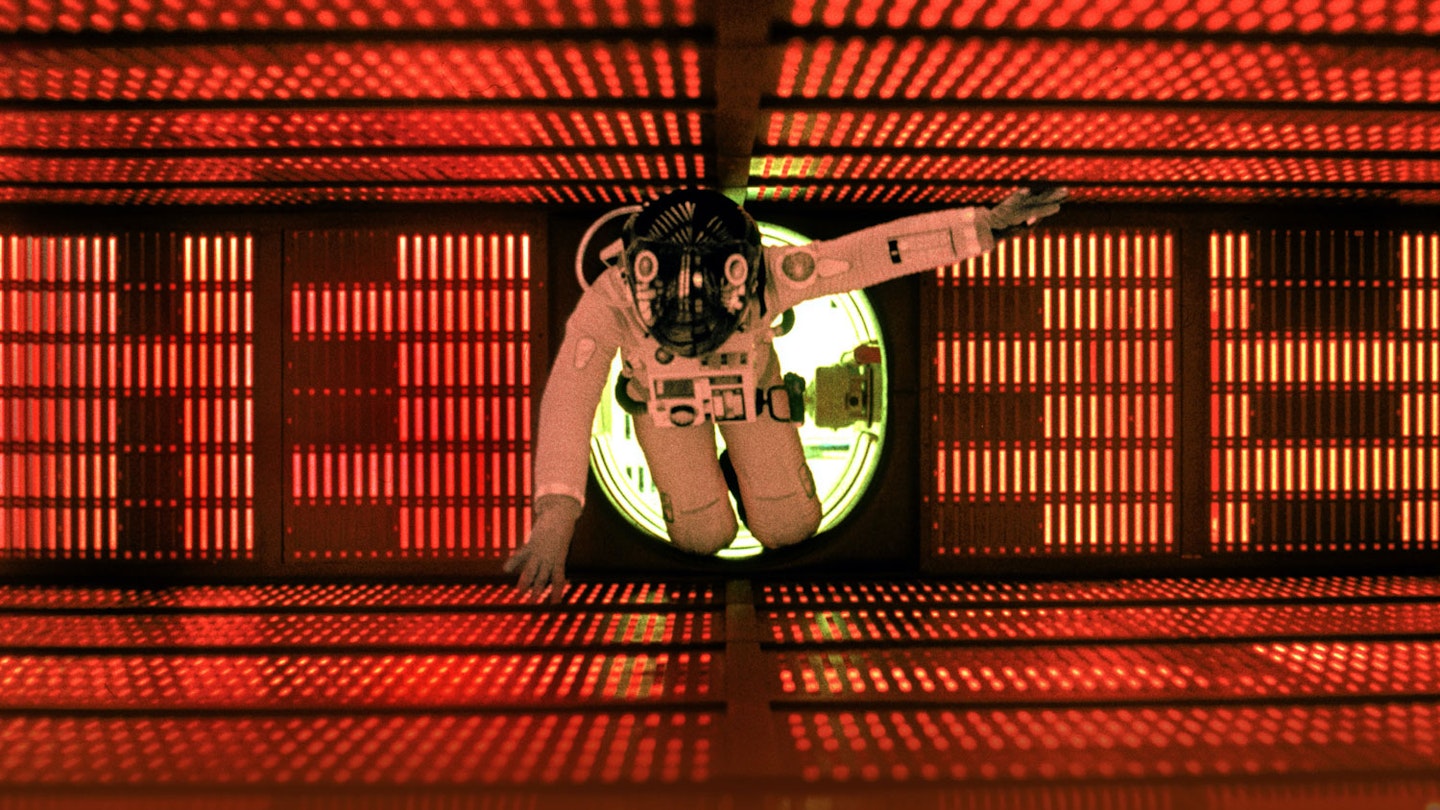 46 of 50
46 of 505) 2001: A Space Odyssey (1968)
Director: Stanley Kubrick Starring: Keir Dullea, Douglas Rain. Talk about scope. Stanley Kubrick's monolithic work of sci-fi might not have much in the way of a tangible linear plot, and yet it covers so much – the dawn of man, the space race, the arrival of artificial intelligence, greater space exploration, and a journey into the cosmic unknown. It's dizzying stuff, realised with technical bravado by Kubrick, open to endless interpretation and with just enough narrative to remain compulsively watchable. From its gigantic rotating sets, to its use of Strauss's The Blue Danube, to its extraordinary climactic light show, 2001 is an audio-visual marvel – while its explorations of human evolution and where it might go next have already proved prescient. An extraordinary piece of work, deeply influential on decades of cinema since, and one that entrusts the viewer to follow along on an instinctual, sensory level. Read the Empire review
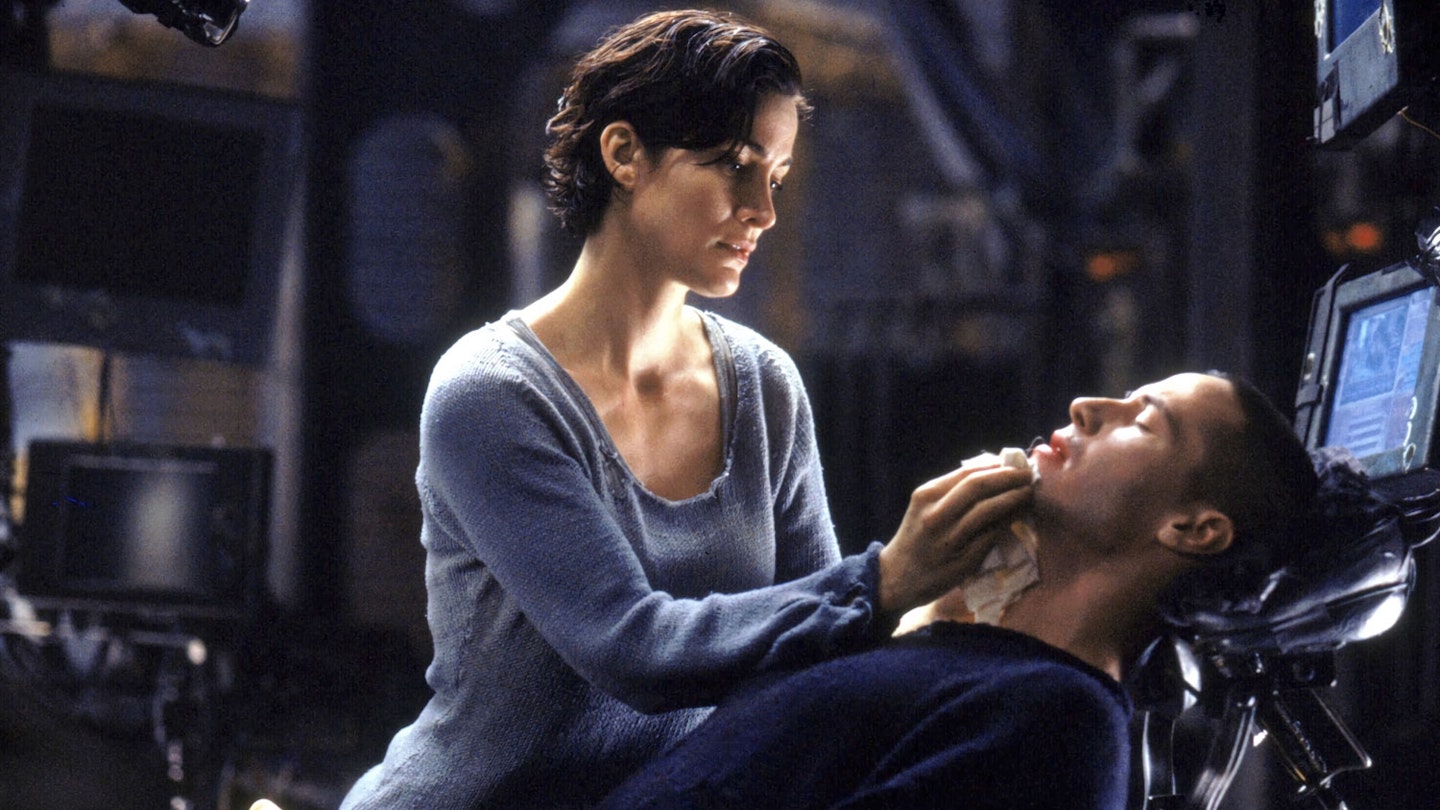 47 of 50
47 of 504) The Matrix (1999)
Director: Lana Wachowski, Lilly Wachowski Starring: Keanu Reeves, Carrie-Anne Moss, Laurence Fishburne. At the dawn of the Internet age, the Wachowskis gave Hollywood science fiction a major upgrade. Drawing from cyberpunk anime, philosophy, and religion, the sisters cooked up an era-defining tale that spoke to generational malaise, the rise of technology, and a pre-millennial society ready to break out of its long-held programming. Keanu Reeves is hacker Neo, who comes to learn that the world isn't real – he and the rest of humanity are living in a computer simulation called the Matrix, while being harvested as fuel for sentient machines. But in learning about this unreality, he also comes to know how to break it – bending the laws of physics, seeing through the code, and uploading kung-fu moves directly into his brain. It's one of the coolest films ever made, deeply stylish and incredibly visionary (particularly the invention of bullet-time and the static camera rig that made it possible). Plus, it has a whole new layer of meaning in its reassessment as a piece of blockbuster queer cinema, a story exploring the idea that internal and external realities may be different, coming from a pair of Trans creators. In a word: woah. Read the Empire review
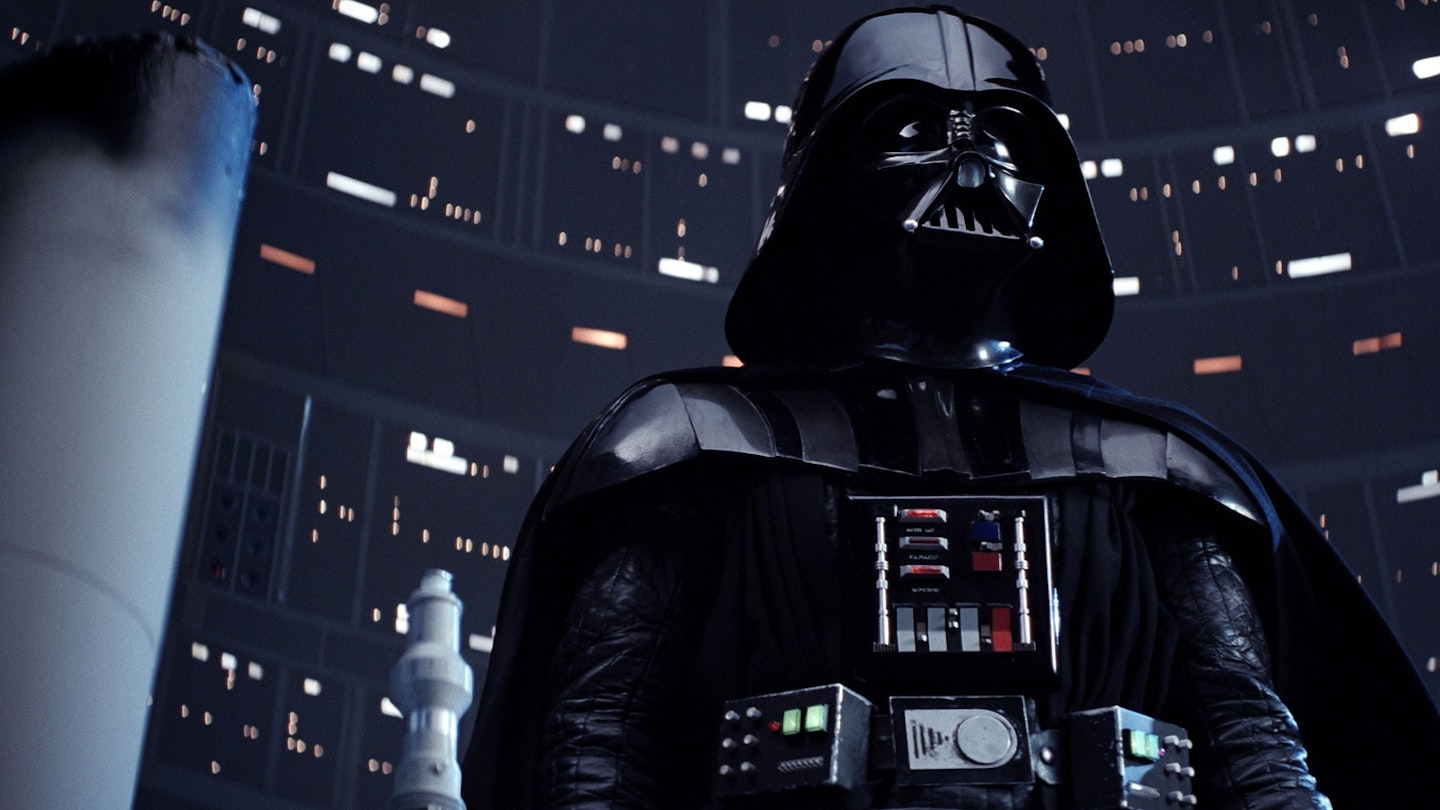 48 of 50
48 of 503) Star Wars: The Empire Strikes Back (1980)
Director: Irvin Kershner Starring: Mark Hamill, Harrison Ford, Carrie Fisher. If Star Wars gave us a whole new cinematic galaxy, Empire made that galaxy feel so much larger, deeper, and richer. Bolstered by the original's success, George Lucas shot for the moon a second time around, teaming up with director Irvin Kershner to tell the story of Luke training under Master Yoda, Han and Leia heading to Cloud City, and Darth Vader dropping the daddy of all twists. Episode V ramped up the scope with more astonishing model work, dizzying dogfights, the snowy Hoth battle, and a ferocious lightsaber duel between Luke and Vader. It is, simply, bigger and better than the original Star Wars, influential in its own right with its downer-ending and game-changing familial revelations. As far as sci-fi goes, it's not the cinema of ideas – but its blockbuster spectacle is near-unmatched. Read the Empire review
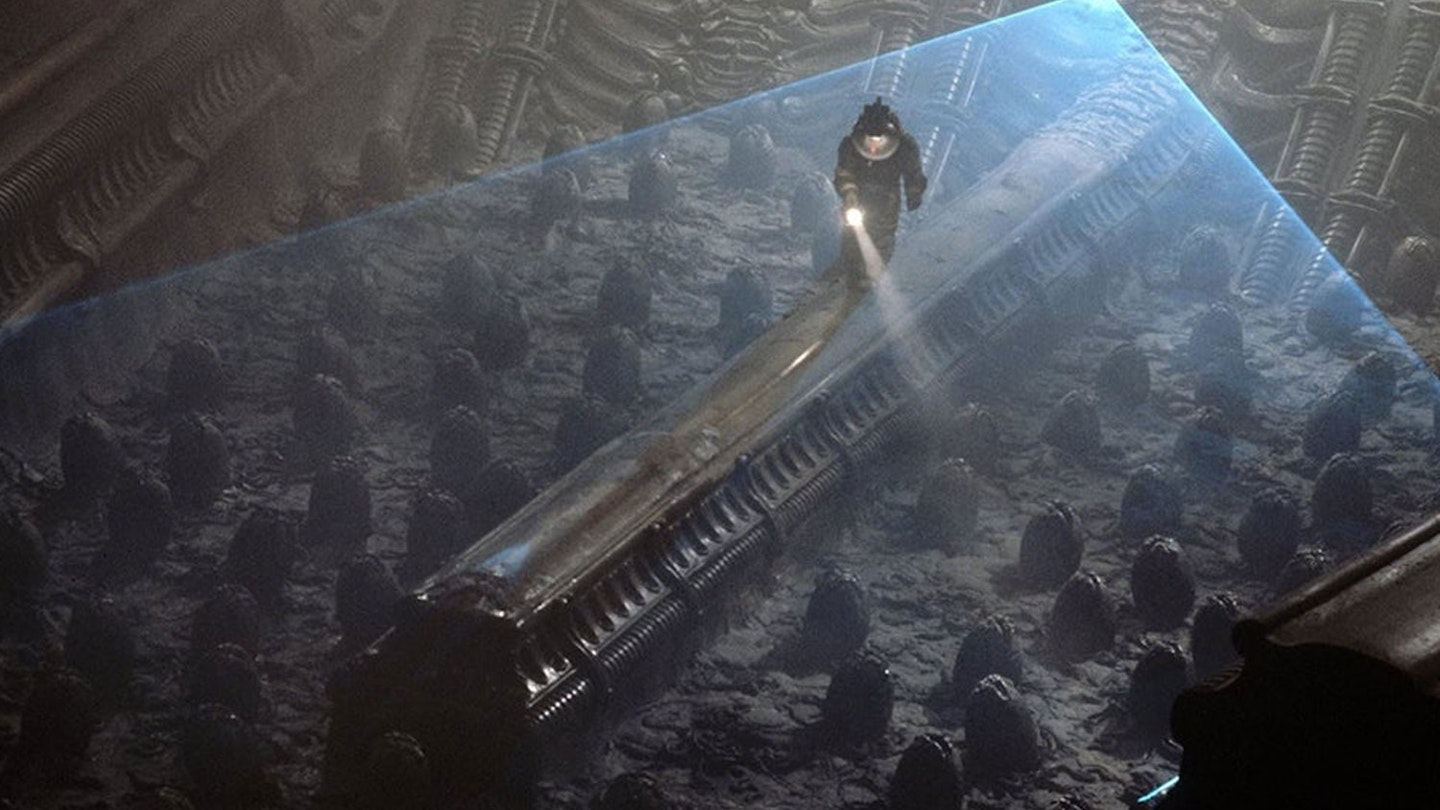 49 of 50
49 of 502) Alien (1979)
Director: Ridley Scott Starring: Sigourney Weaver, Ian Holm, John Hurt. It's fitting that, of all things, Ridley Scott's Alien feels in many ways unknowable, filled with elements that feel genuinely, well, alien. As the Nostromo touches down on the ravaged surface of LV-426 and discovers a mysterious hall filled with extra-terrestrial eggs, it's clear the human crew is well out of their depth – and once their quarantine measures are broken, all hell breaks loose. There's a warning in there somewhere. From the dark, dank corridors of its space-freighter ship, to the unmistakable nightmare imagery of H.R. Giger, to the arrival of Sigourney Weaver's heroic Ripley, the original Alien remains a landmark piece of science-fiction, let alone its innovations in horror. If it's essentially a slasher in space, it's full of reproductive ideas and phallic imagery, all penetration and impregnation and blood-spewing birth. Some science fiction makes us dream of the stars. Alien warns us of the sheer violent chaos awaiting us in the vast reaches of outer space. Read the Empire review
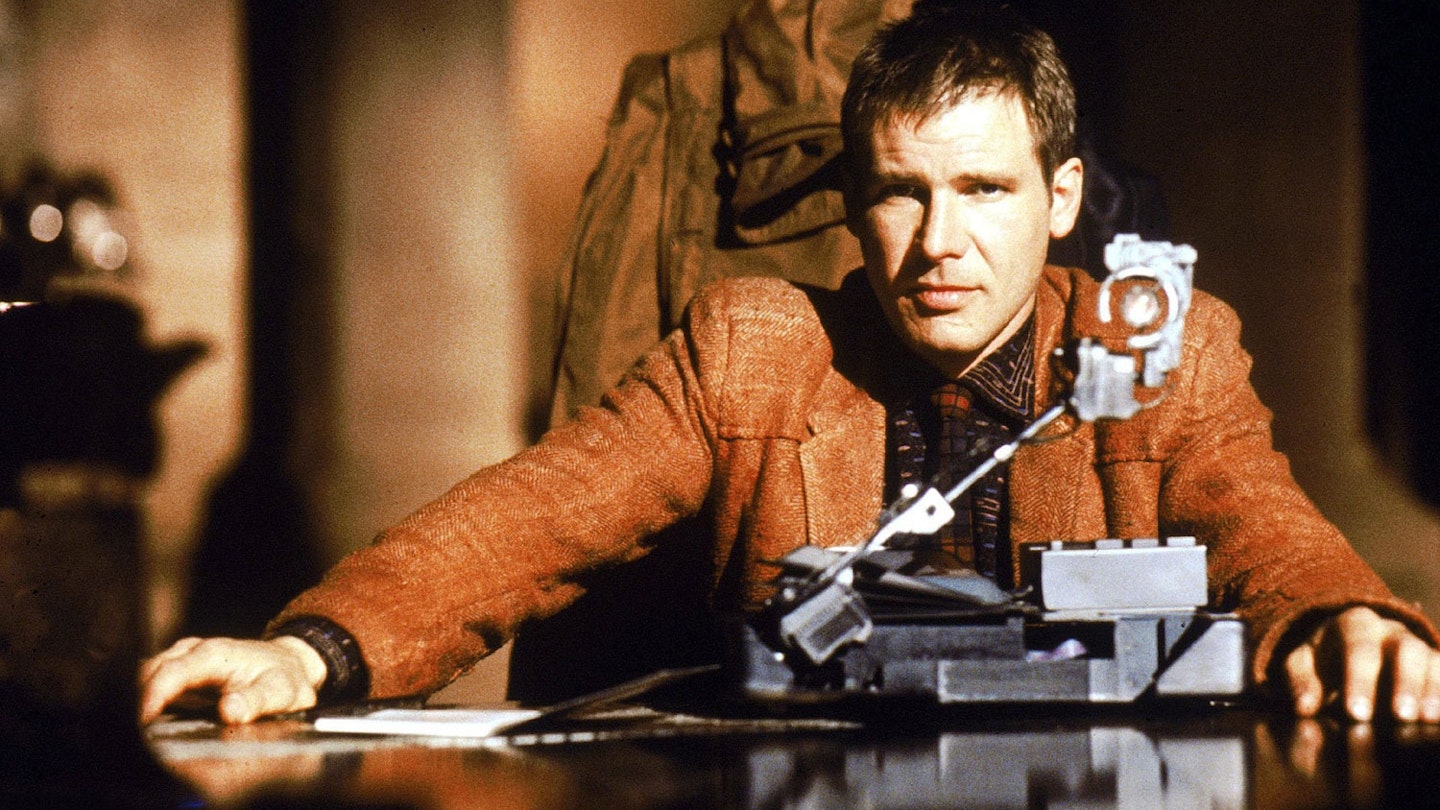 50 of 50
50 of 501) Blade Runner (1982)
Director: Ridley Scott Starring: Harrison Ford, Rutger Hauer, Sean Young. What sci-fi film can best Ridley Scott's genre classic Alien? His other genre classic, the unbeatable Blade Runner – an initially misunderstood masterpiece that, over multiple decades and several recuts, stands as the pinnacle of cinematic science fiction. Based on Philip K. Dick's Do Androids Dream Of Electric Sheep?, Blade Runner conjures a bleak vision of a then-future 2019 Los Angeles – an imperious flame-belching hellscape in which Harrison Ford's 'blade runner' cop Rick Deckard is tasked with tracking down a group of human-engineered Replicants who have escaped back to Earth from a working colony. As he 'retires' them one by one, he comes to question his own humanity, both literal and metaphorical. With its ruminations on what it means to be human, Blade Runner is ideas-driven sci-fi all the way. But it's a visual feast too, its interpretation of a futuristic urban landscape – with giant video screens, glowing neon lights and bustling city streets – still jaw-dropping to behold. Coupled with a haunting Vangelis synth score, and Rutger Hauer's arresting turn as Replicant leader Roy Batty (whose "time to die" speech is a total spine-tingler), it's nigh-on untouchable. Read the Empire review
READ MORE: The 100 Greatest Movies
READ MORE: The Best Sci-Fi T-Shirts
READ MORE: The 60 Greatest Romantic Movies
